

2023–2024



2023–2024
This annual report reflects the combined operations of all Oceana organizations, including Oceana, Inc. and our affiliates, as well as information concerning Oceana Canada, an independent charity. Oceana campaigns in North, South, and Central America; Asia; and Europe. Oceana is the largest international advocacy organization dedicated solely to ocean conservation. We are rebuilding abundant and biodiverse oceans by winning sciencebased policies in countries that control over one-quarter of the world’s wild fish catch. With more than 300 victories that stop overfishing, habitat destruction, oil and plastic pollution, and the killing of threatened species like turtles, whales, and sharks, Oceana’s campaigns are delivering results to restore our oceans, support coastal communities, and protect the climate. Nearly nine million members, e-activists, and social media followers support Oceana internationally. Together, we can save the oceans and help feed the world. To learn more, please visit Oceana.org.
This report features campaign updates from July 2023 to June 2024 and financial information for the calendar year 2023. * Swallowtail seaperch seen during an Oceana expedition off the coast of Malta.
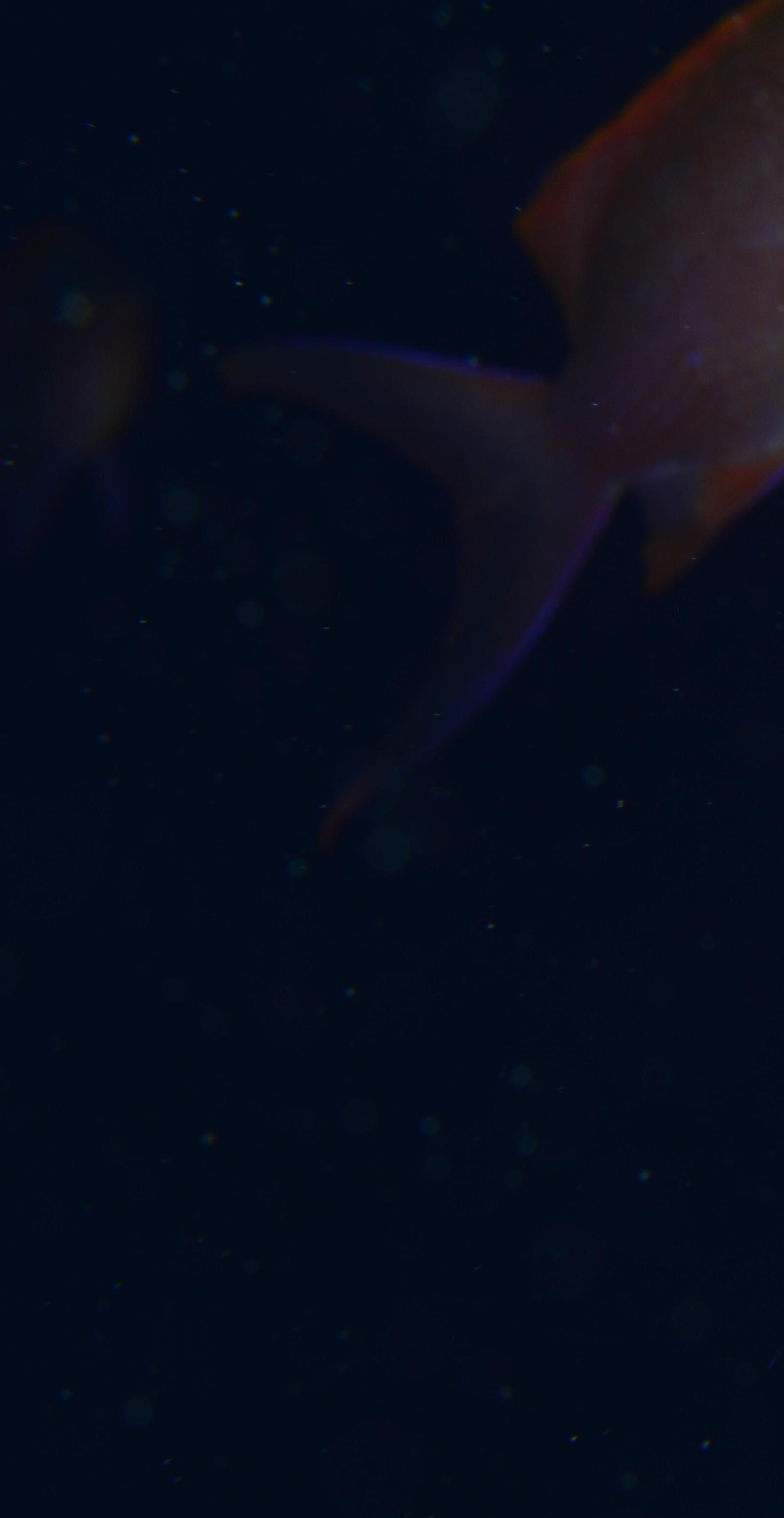
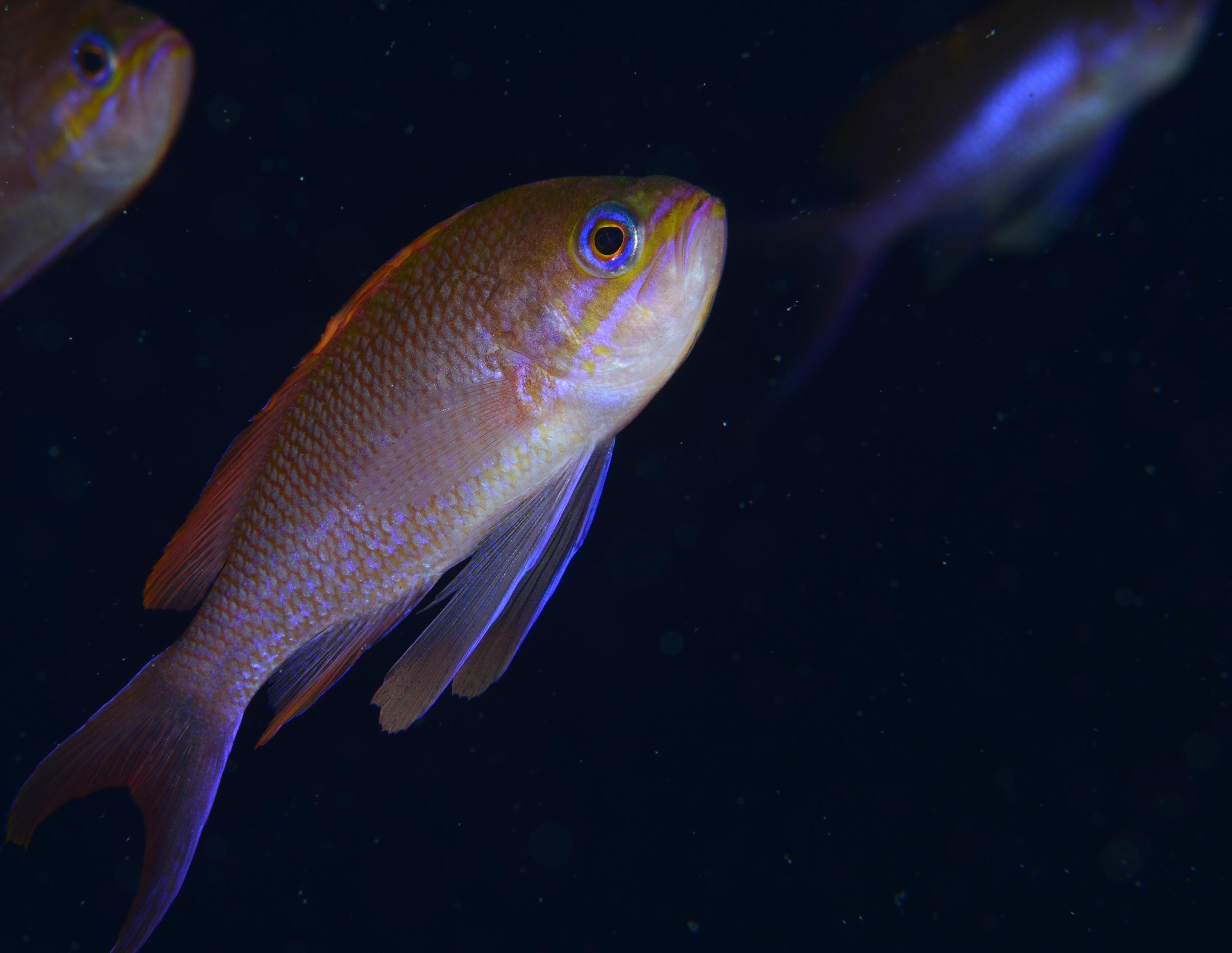

As you may know, Oceana’s longtime CEO Andrew Sharpless retired at the end of June — just as our annual reporting period was also drawing to a close. Oceana owes a great deal to Andy’s deft leadership when it comes to the many campaign successes you will read about in these pages.
For 21 years, I have been fortunate to work for and alongside Andy as Oceana’s President. Why fortunate? For one thing, I have had the chance to learn from a truly skillful CEO. For another, I have worked with talented people and with dedicated supporters — like you — on campaigns resulting in real change for the oceans and the people who depend on them. This report outlines what we have been able to accomplish with your support in the past year. It also summarizes how our campaign wins are delivering global impact.
Before joining Oceana, I had the chance to work on many conservation issues from the perspectives of nonprofits, local government, and the United States federal government. One advantage of working on ocean conservation in particular is that when we campaign to conserve abundant oceans, we’re also protecting a critical global food source. Ocean-caught seafood is wild — indeed, the last significant wild food source. Compared to land-based agriculture, wild marine fish produces less greenhouse gases and requires virtually no fresh water or arable land to produce.
As Oceana campaigns to protect and restore ocean ecosystems, we’re increasing the ocean’s ability to feed the world’s growing population. In doing so, Oceana often partners with small-scale fishers as natural allies to achieve policy change. When fish are more abundant, fishers’ livelihoods are more sustainable and secure — and coastal communities flourish.
We’ve had many such victories in just the past 12 months. We successfully campaigned alongside artisanal fishers in Chile to protect the famously biodiverse Humboldt Archipelago from destructive mining. Together with local fishers, we achieved the largest marine protected area in the Gulf of Mexico, Bajos del Norte National Park, which will protect important coral reefs and
help recover fish populations. And with the support of First Nations, we won the newest and largest marine protected area in Canada, which protects underwater mountains from industrial activities.
We’ve also made important progress safeguarding species like whales and turtles from deadly entanglements in fishing gear and won victories to help rebuild fish populations in countries like Brazil, the Philippines, and the United States. And we’ve achieved greater transparency in the European Union, where tracking systems are now required for every EU fishing vessel thanks to our campaigning.
Meanwhile, Oceana has continued to stop polluters and to take action to protect our climate. We’re campaigning against new offshore oil and gas drilling: the most important oceanbased action we can take to tackle the climate crisis. In Belize, Oceana successfully campaigned to ensure people have the power to determine whether their oceans will be opened to offshore drilling. We also won a historic victory when the world’s largest online retailer, Amazon, announced it is fully removing plastic air pillows from its delivery packaging in North America by the end of 2024.
These victories add up. Oceana, alongside our allies, has won more than 300 policy victories worldwide. This translates to:
• Over 10 million square kilometers (nearly 4 million square miles) of ocean protected.
• Around 80,000 commercial fishing vessels — about 20% of the world’s industrial fishing fleet — now visible on the Global Fishing Watch map.
• Policies that would eliminate the use of more than 1.95 million metric tons (2.15 million tons) of unnecessary single-use plastic each year by 2033, the equivalent of an estimated 195 billion plastic bottles.
We thank you for your support, which has made these achievements possible. We know that, with your continued backing, we will win many more victories like these to restore the oceans.
At Oceana, we are tenacious, strategic, and datadriven. And we’re deeply optimistic. Because when we support the health of our oceans, the oceans will continue to support us all.
With deep appreciation,

James F. Simon CEO, Oceana
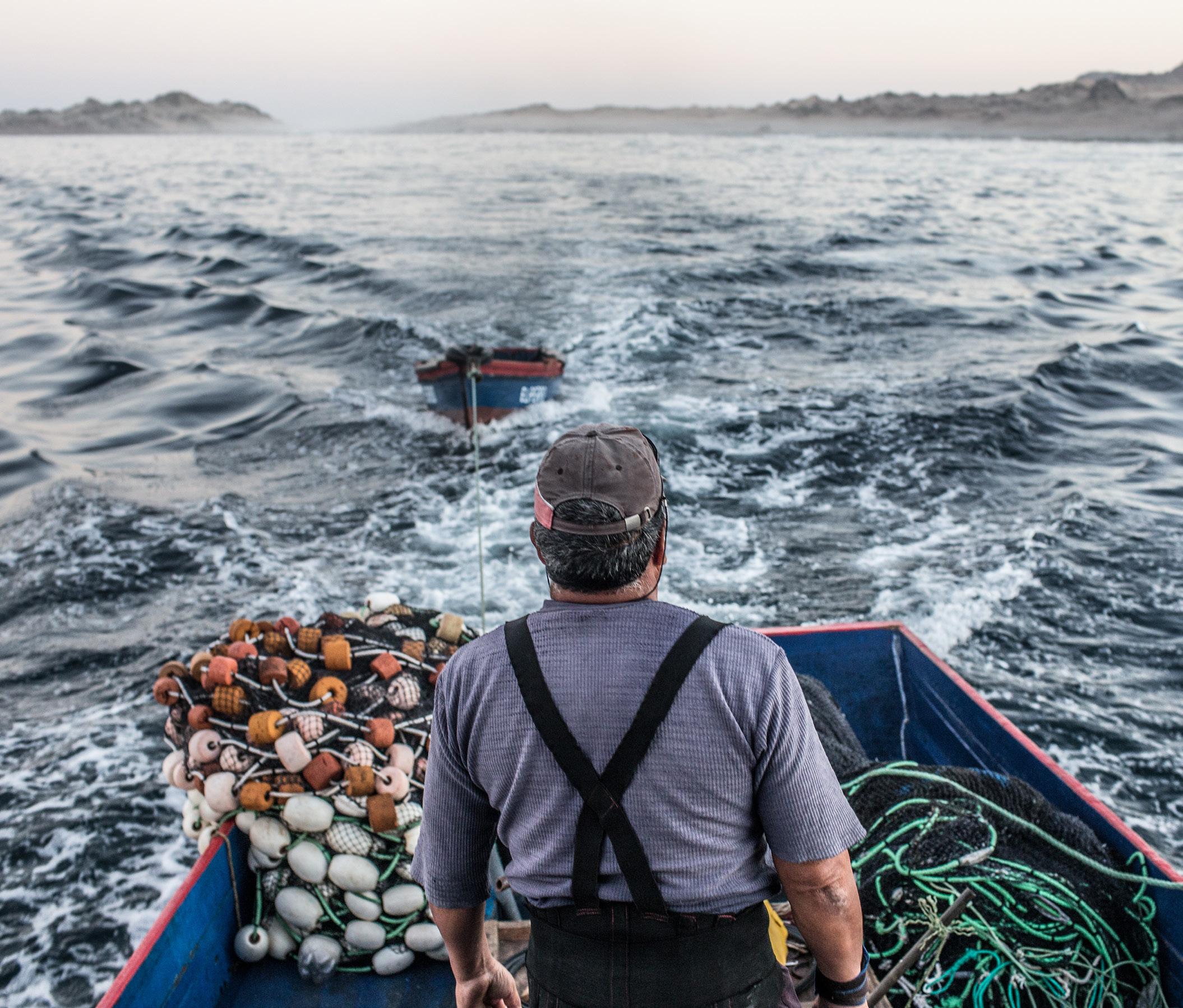

Oceana campaigns to win policy victories that restore abundance and biodiversity in the world’s oceans, which cover two-thirds of our planet and play a key role in mitigating climate change. Healthy marine ecosystems full of wildlife support fisheries that can feed more than a billion people a healthy seafood meal every day, forever. We can preserve the oceans for future generations while protecting a critical food source — wild seafood — that requires no fresh water or arable land to produce, yields minimal greenhouse gas emissions, and provides sustainable livelihoods and an affordable, healthy protein to people who depend on it around the world. Just 29 countries and the European Union are responsible for nearly 90% of the global fish catch. We can — on a country-by-country basis — win policy victories that will help to protect and restore oceans worldwide. Evidence from fisheries around the world shows that, when the right measures are put in place, depleted fish populations bounce back. Oceana campaigns alongside coastal communities for policies that are based in science and rely on six proven strategies that help restore healthy oceans.
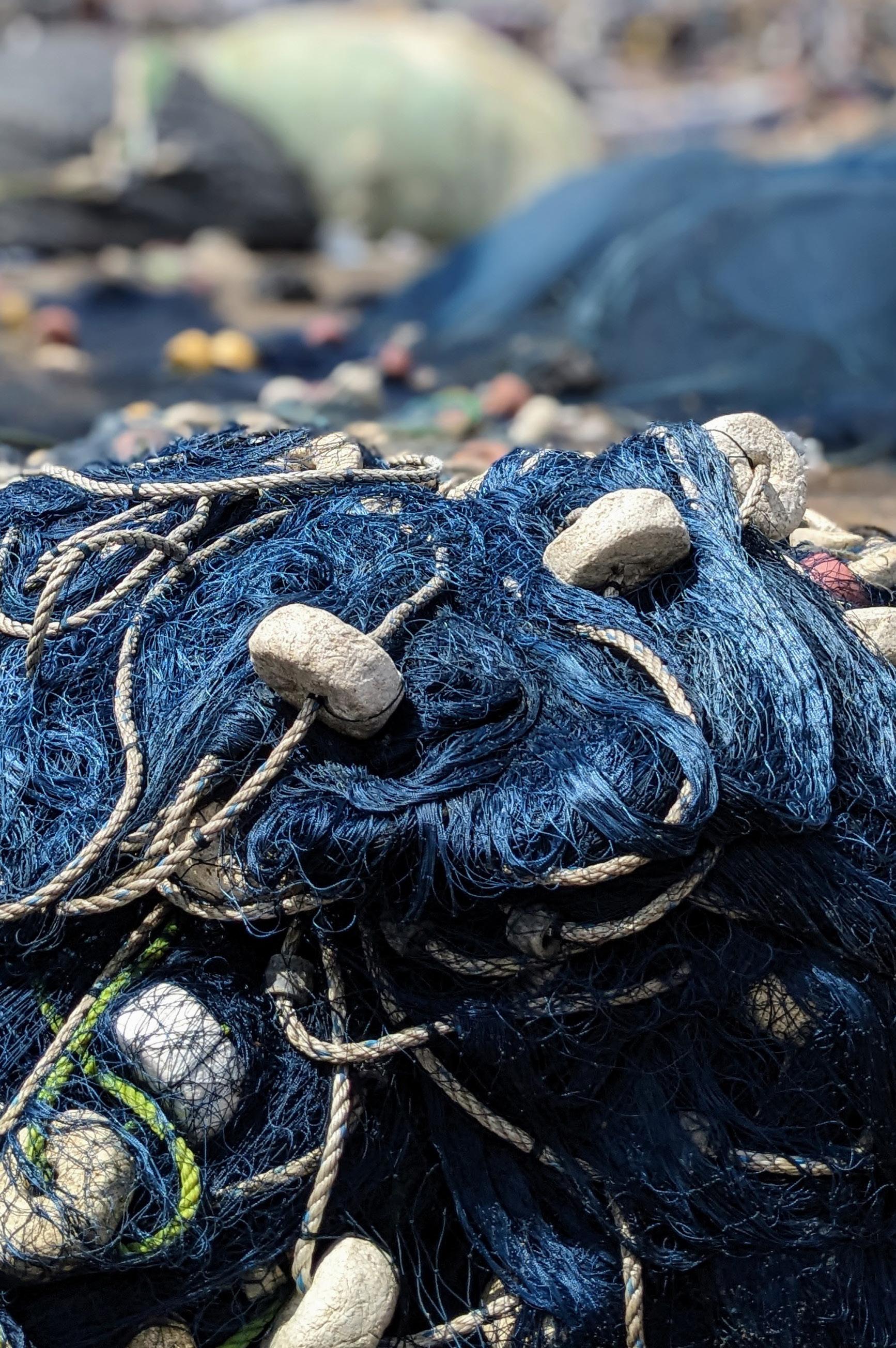
Half of global fisheries are overfished, and another 40% are fully exploited. When fisheries are properly managed, the fish come back.
OUR IMPACT: Oceana campaigns around the world to implement fisheries management plans and catch limits to stop overfishing and rebuild ocean abundance. In the United States, the European Union, and Chile, the number of fisheries with management plans has increased by 65% since 2000, and the number of fisheries with catch limits has increased by 47%.
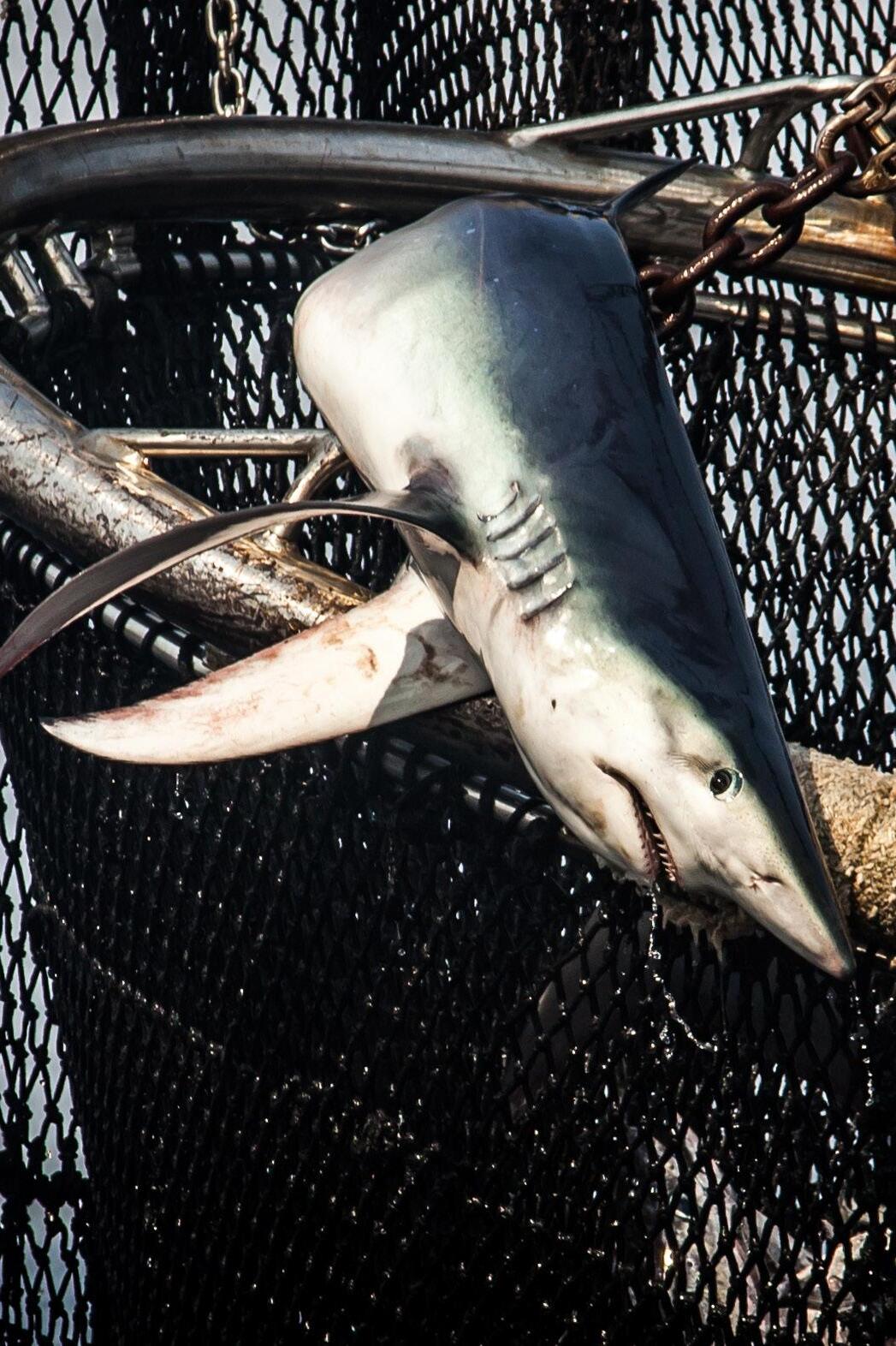
Each year, fishing gear kills or injures millions of non-targeted animals, including sharks, whales, dolphins, fish, and sea turtles, many of which are in danger of extinction.
OUR IMPACT: Oceana campaigns to protect important species by improving monitoring and reporting, setting bycatch limits for fisheries, and encouraging fishers to use more selective, safer gear. Oceana and our allies have won more than 35 victories that protect species from dangerous fishing gear, including drift gillnets.
Stopping destructive fishing methods like bottom trawling and protecting vulnerable ecosystems will preserve places that are crucial to both marine animals and coastal communities.
OUR IMPACT: Oceana mounts expeditions and collects scientific data to help win protections for key ocean habitats. In 2000, less than 1% of the waters off the countries where Oceana currently operates were protected. Today, about 19% of these waters are now protected.
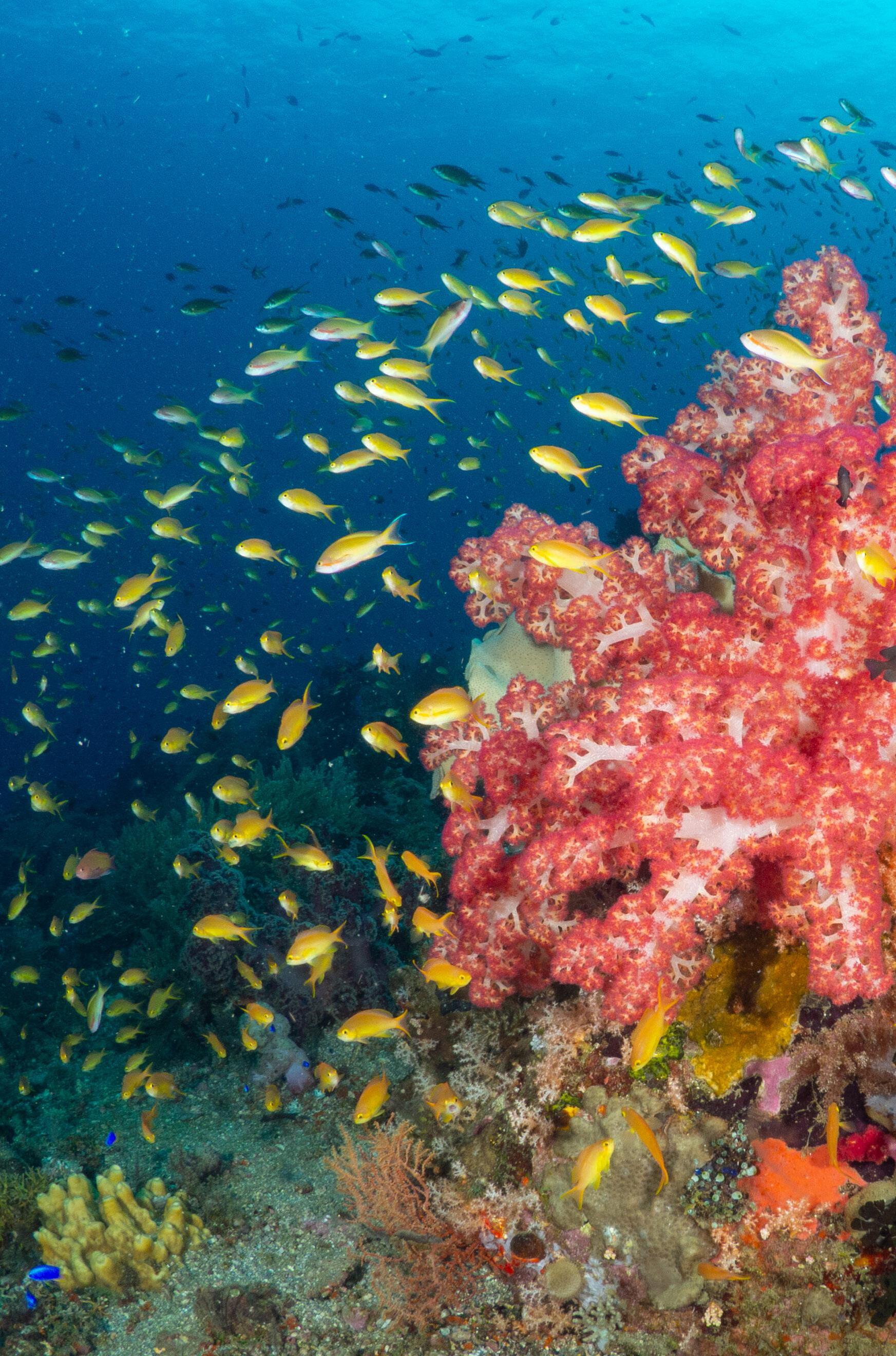
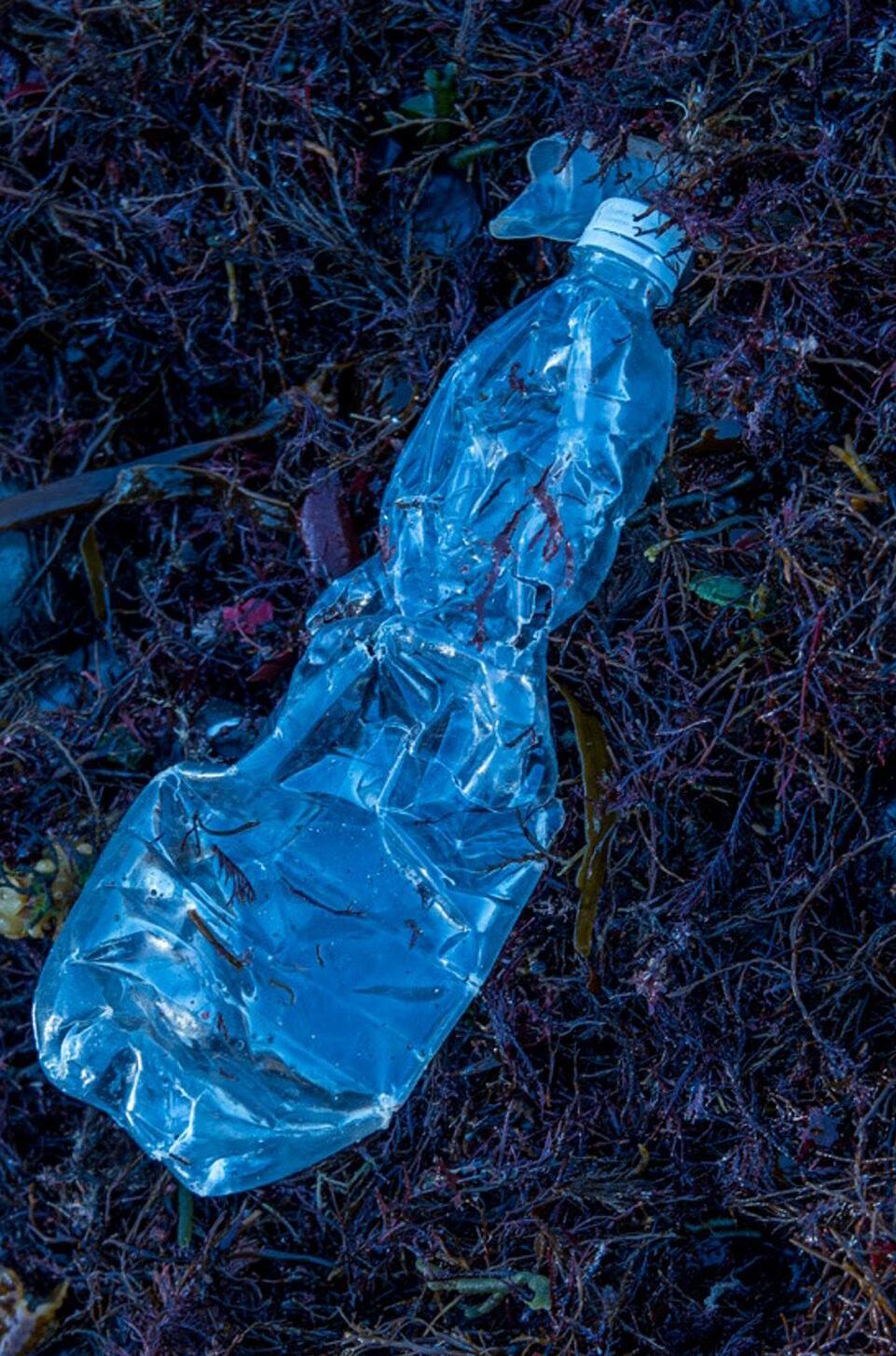
Pollution undermines the health of ocean ecosystems, threatens marine life, and accelerates climate change.
OUR IMPACT: Oceana fights offshore drilling to help prevent oil spills and reduce greenhouse gas emissions.
Over 120,000 kilometers (75,000 miles) of coastline in the United States and Belize are now protected from the threat of offshore drilling, covering more than 6.47 million square kilometers (2.5 million square miles) of ocean.
Oceana and our allies have also passed policies that would eliminate the use of more than 1.95 million metric tons of unnecessary single-use plastic each year by 2033.
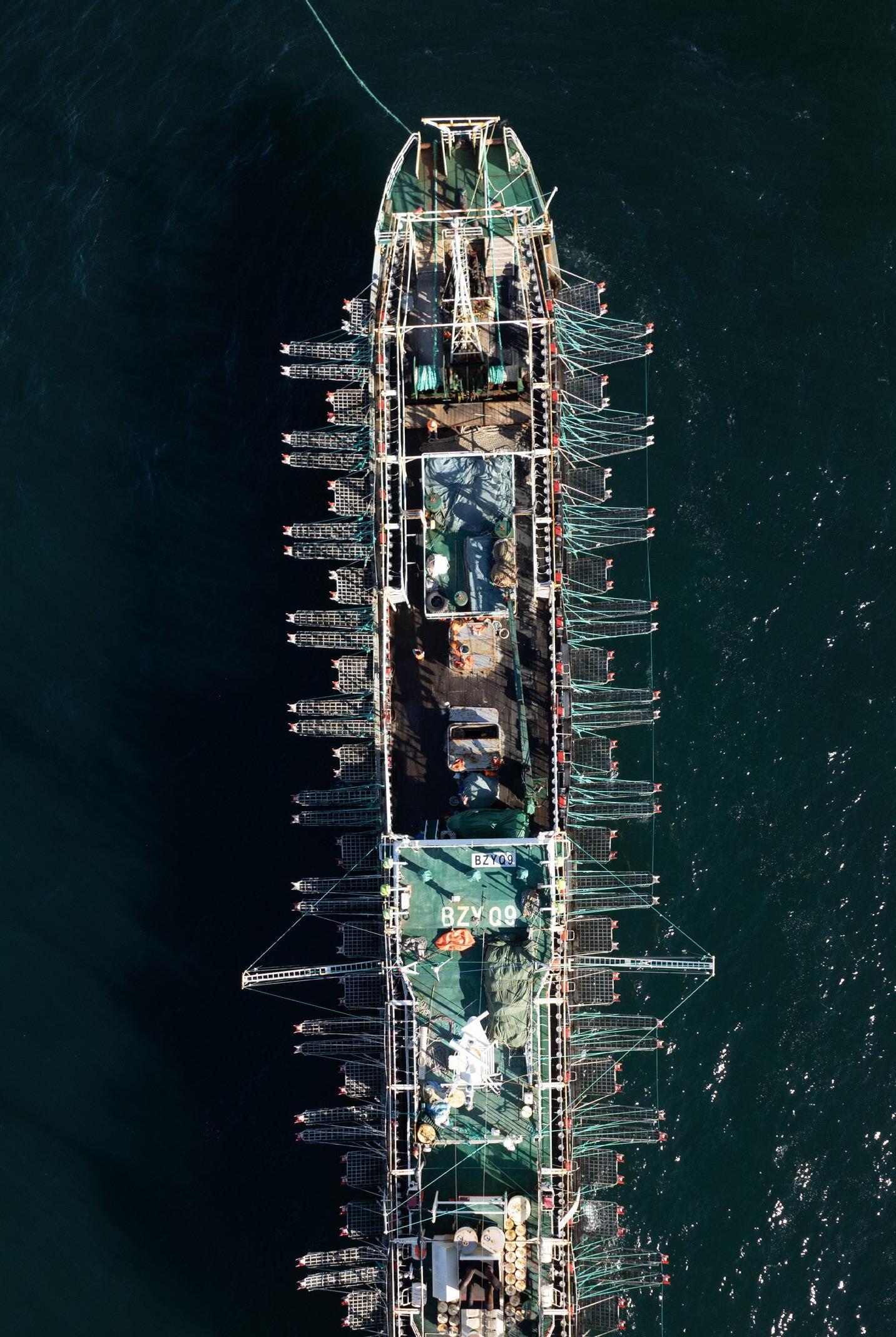
Timely and accurate data is needed to improve fishing policies and to deter illegal conduct at sea.
OUR IMPACT: Oceana campaigns for measures that promote transparency, such as requiring large commercial fishing vessels to be publicly trackable by satellite and expanding boat-to-plate traceability of seafood. Around 80,000 commercial fishing vessels — about 20% of the world’s industrial fishing fleet — can now be tracked on the Global Fishing Watch map, created by Oceana in partnership with SkyTruth and Google, in near-real time, for free.
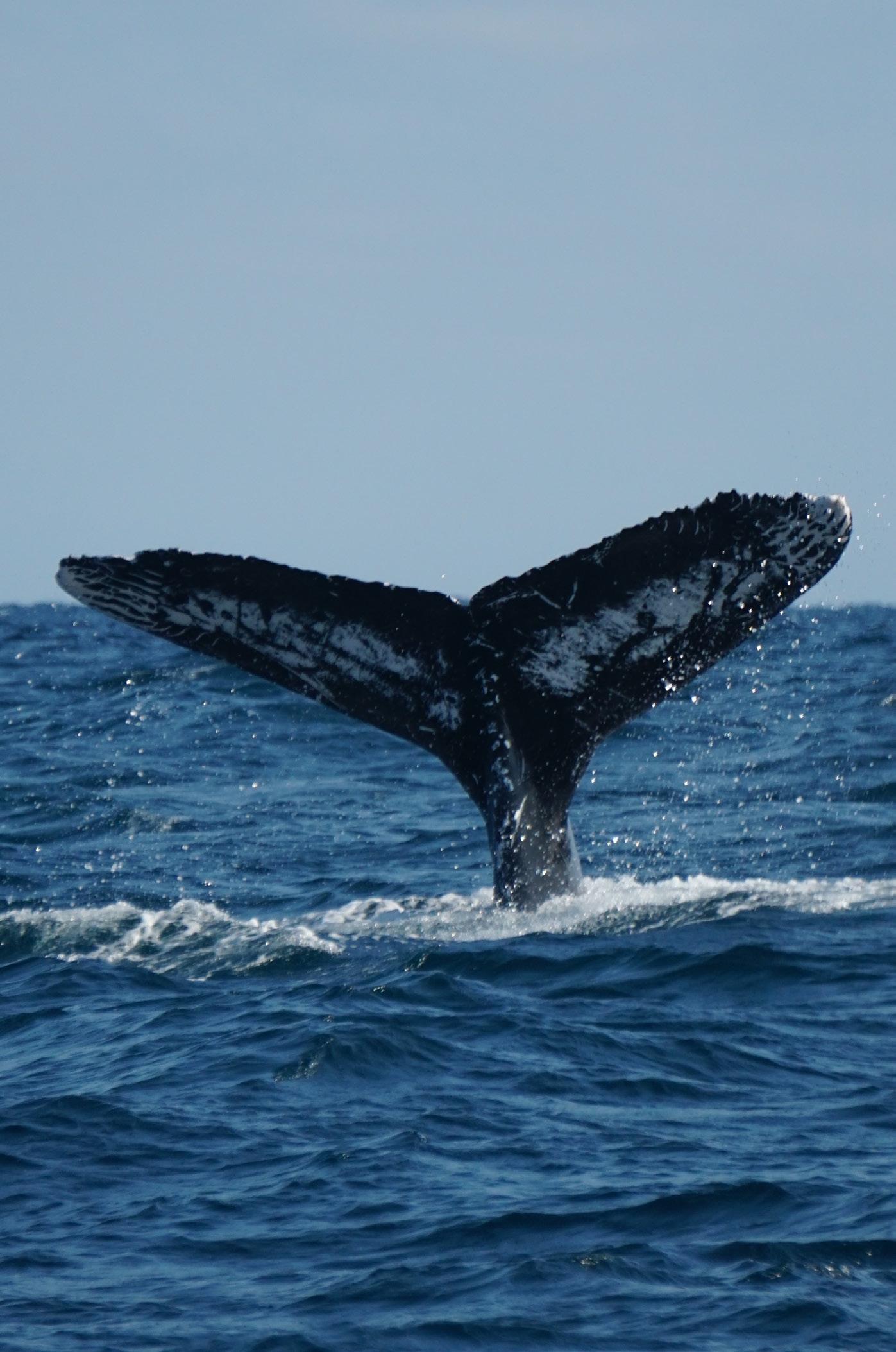
Marine animals are at risk, whether from speeding vessels that strike critically endangered North Atlantic right whales, or the brutal shark fin trade, which has contributed to a decline of oceanic shark and ray populations globally by more than 70% over the last 50 years.
OUR IMPACT: Oceana campaigns to protect species threatened with extinction, like sharks, from their top threats. Oceana and our allies have won more than 40 policy victories to safeguard these species from destructive commercial activities.
The good news is that we can restore the oceans to their former abundance. For more than 20 years, Oceana and our allies have won more than 300 policy victories, and we have the tools to continue winning on behalf of our oceans and the millions who rely on them. We are:
Campaign-Driven
We strategically create policy campaigns that make measurable progress toward our mission of protecting and restoring the oceans to former levels of abundance. Our campaigns are specific, targeted, and designed to be won in a three- to five-year timeframe.
Fact-Based
Our advocacy relies on science to help us understand the ocean’s problems and identify practical, effective solutions. We conduct research on a variety of issues that affect marine environments, from illegal and destructive fishing to plastic pollution and offshore drilling.
Expedition-Powered
We recognize that getting on the water — alongside scientists, divers, photographers, campaigners, and coastal communities — helps us bring these important marine places to life and make a stronger case for their protection. Oceana’s expeditions have powered our campaigns and resulted in victories across the globe.
Multi-Disciplinary
Oceana’s scientists work closely with our lawyers, advocates, communicators, and grassroots organizers to achieve tangible results for the oceans.
Supported by Citizens and Allies
Oceana has a base of nearly nine million supporters, including 1.5 million Wavemakers. We often work alongside artisanal fisher allies, who are powerful campaign partners in coastal communities around the world. Our Ocean Council comprises a select group of leaders in business, policy, and philanthropy who represent and support Oceana’s efforts on the global stage.
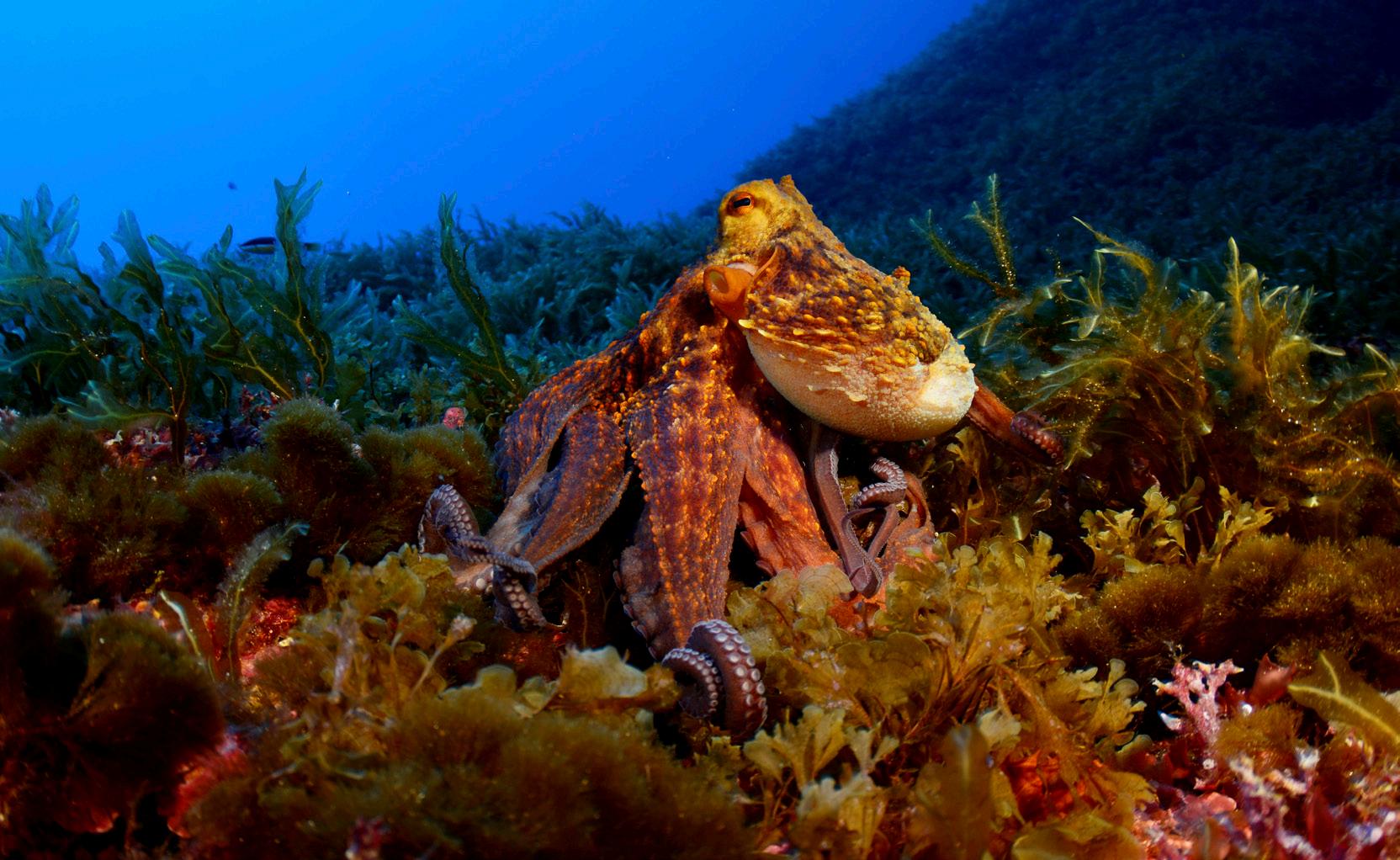
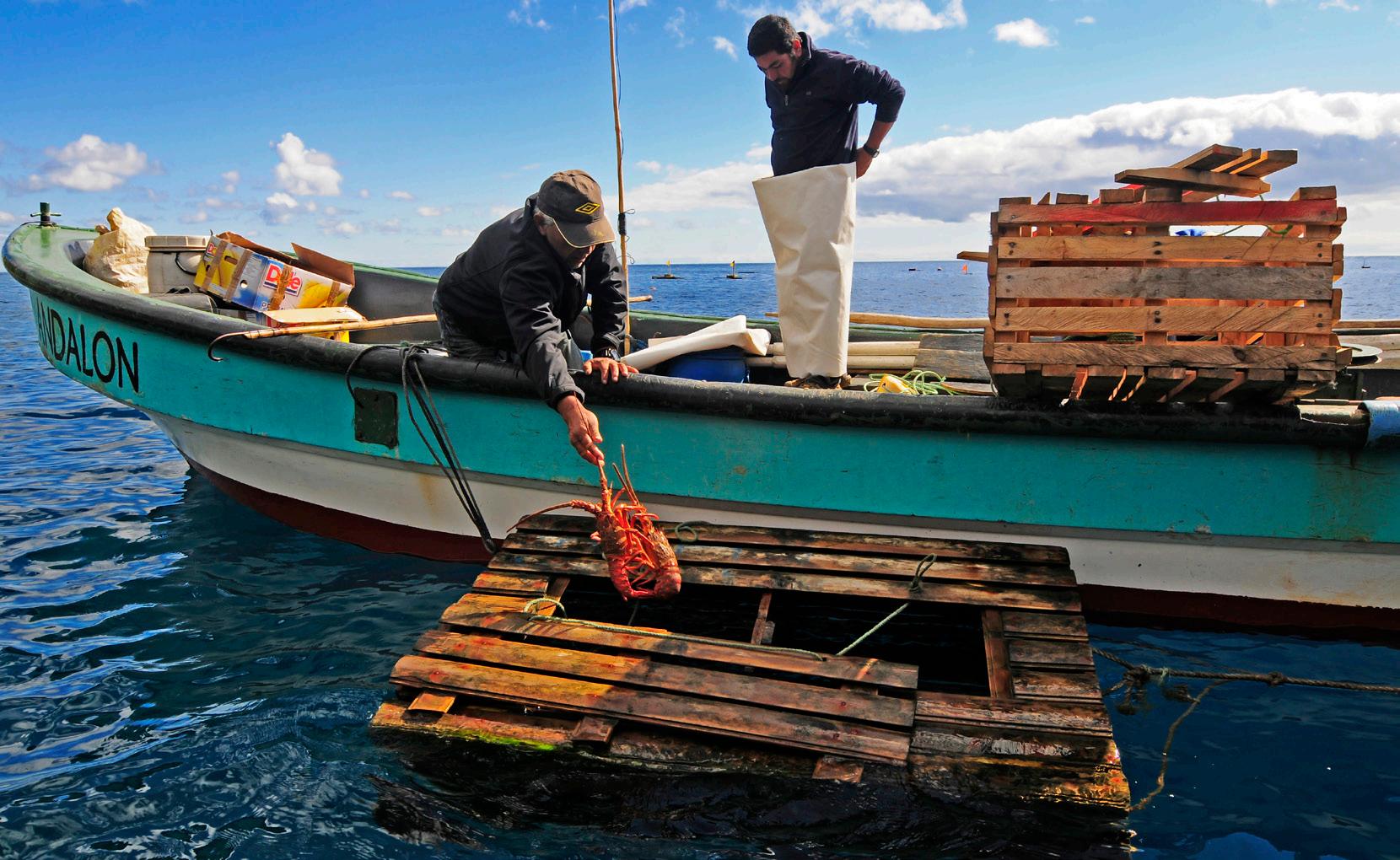
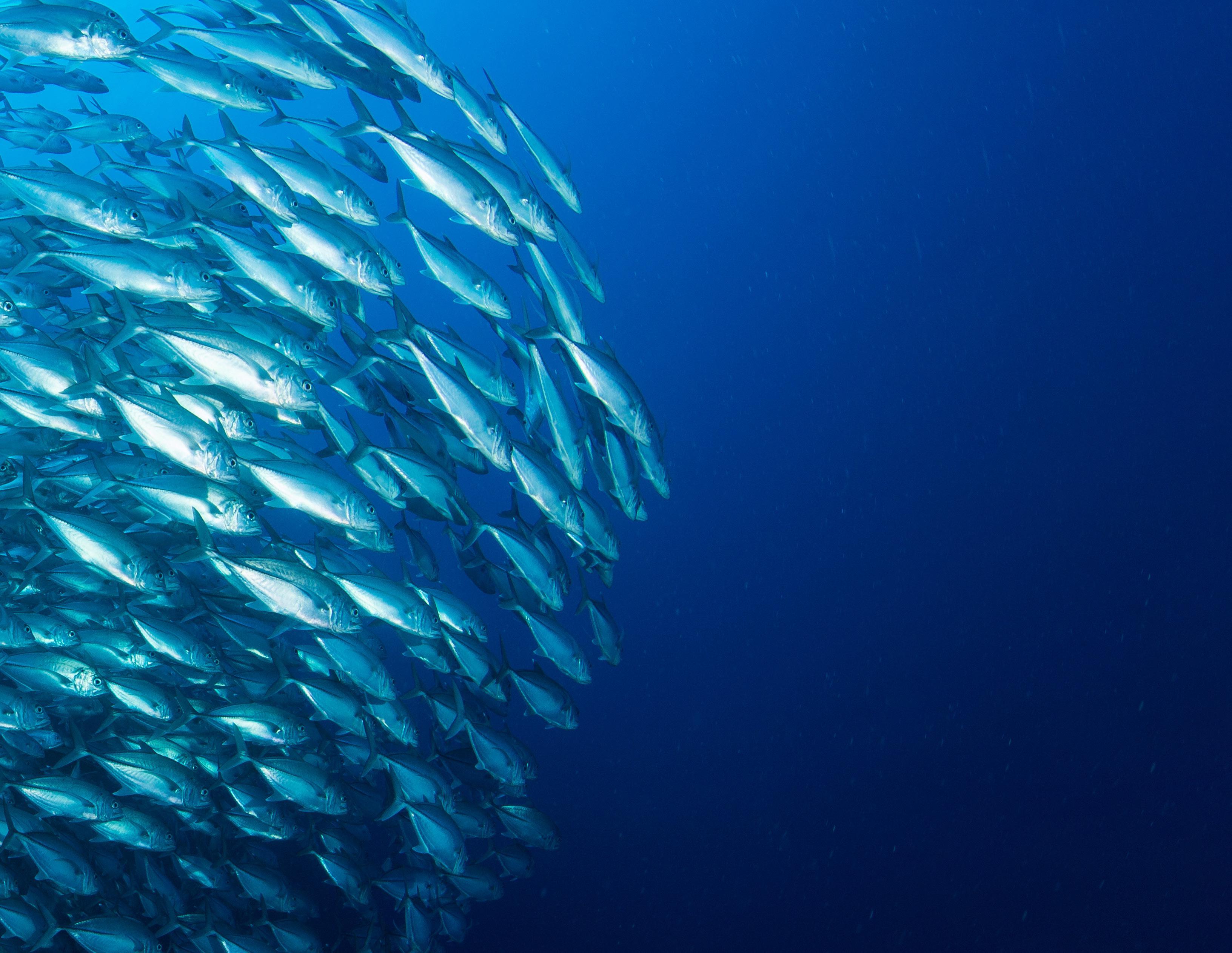
Oceana leverages law, science, grassroots activism, advocacy, and strategic communications to win policy change around the world. With the help of our allies, Oceana has won more than 300 victories that restore ocean abundance. Here is what we accomplished from July 2023 to June 2024.

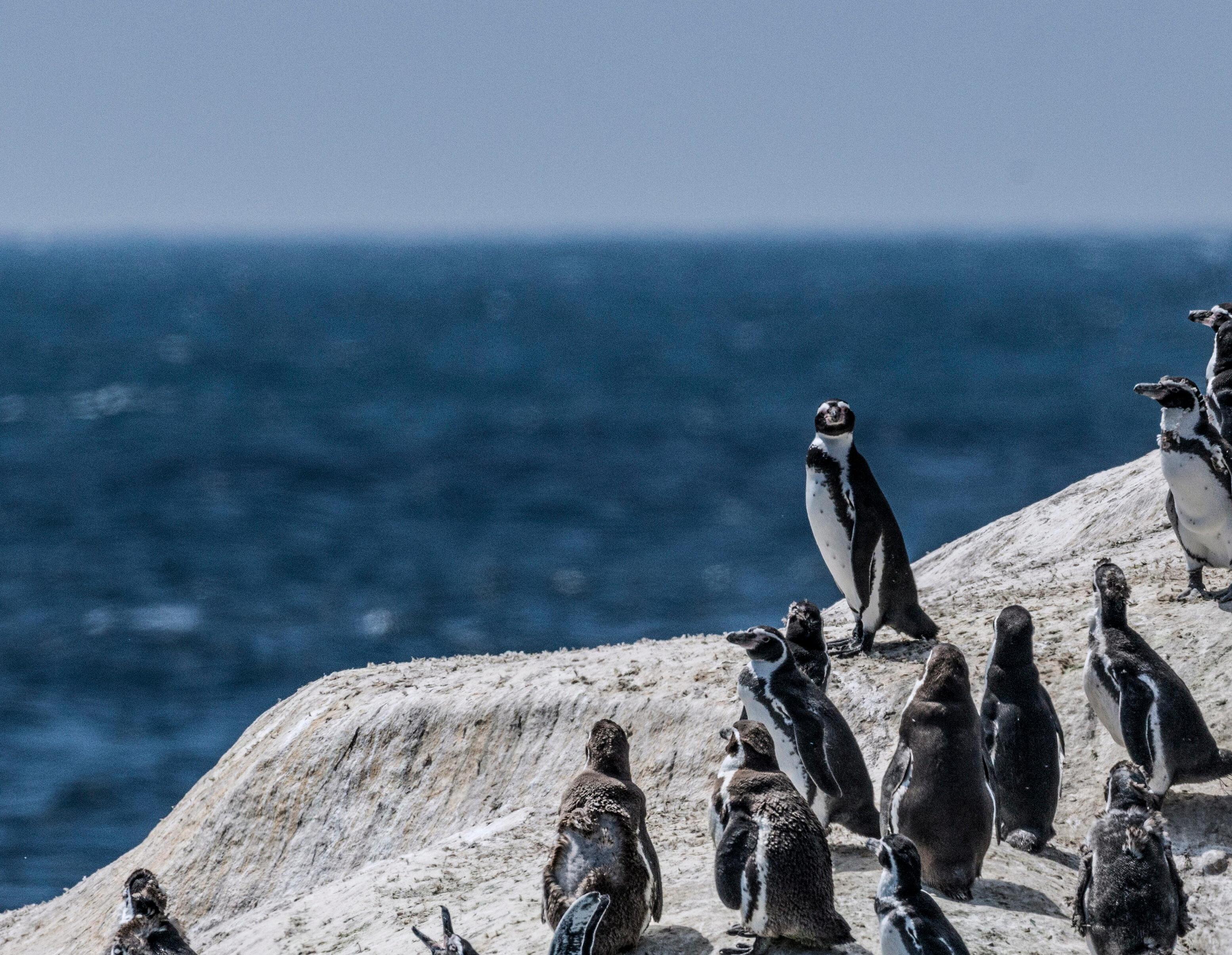
AUGUST 2023 - Chile approved the creation of the Humboldt Archipelago multi-use marine coastal protected area, marking one of the country’s most important environmental achievements. The new protected area, which measures more than 5,700 square kilometers (2,200 square miles), will safeguard one of the most biodiverse ecosystems in Chile, while also promoting sustainable development for local communities. This national designation will raise the environmental assessment standards for potential industrial development projects in the Humboldt Archipelago area. These projects threaten to encroach on this important feeding area for many marine species including the Humboldt penguin population. The new protected area also preserves artisanal fishing and ecotourism, both of which are critical to the local economy.

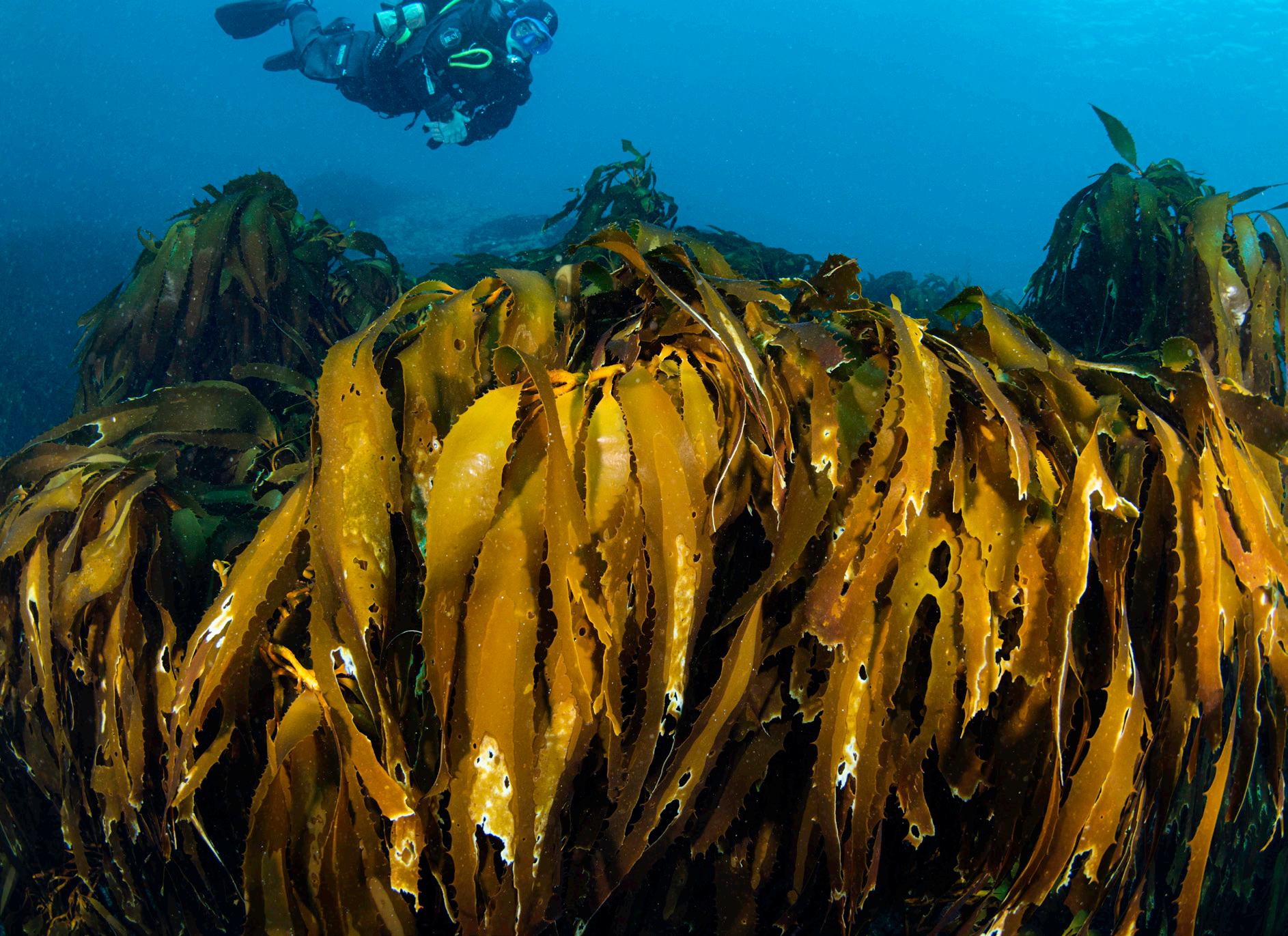
Chile’s kelp forests are a key ecosystem that supports marine life and artisanal fishers.
JANUARY 2024 - Chile’s Congress passed the Benthic Law, which will improve the management of kelp forests — an important and intricate ecosystem that supports numerous marine species and over 16,000 artisanal fishers. This new law comes in response to increasing illegal harvesting of kelp, which is sold as a popular thickener used in food, textiles, and pharmaceuticals. The new law regulates how kelp can be harvested and establishes rules to determine which species and areas should be protected and where recovery plans must be put in place. It also covers more than 50 commercial species that live on the seafloor like sea urchins, crabs, and clams.
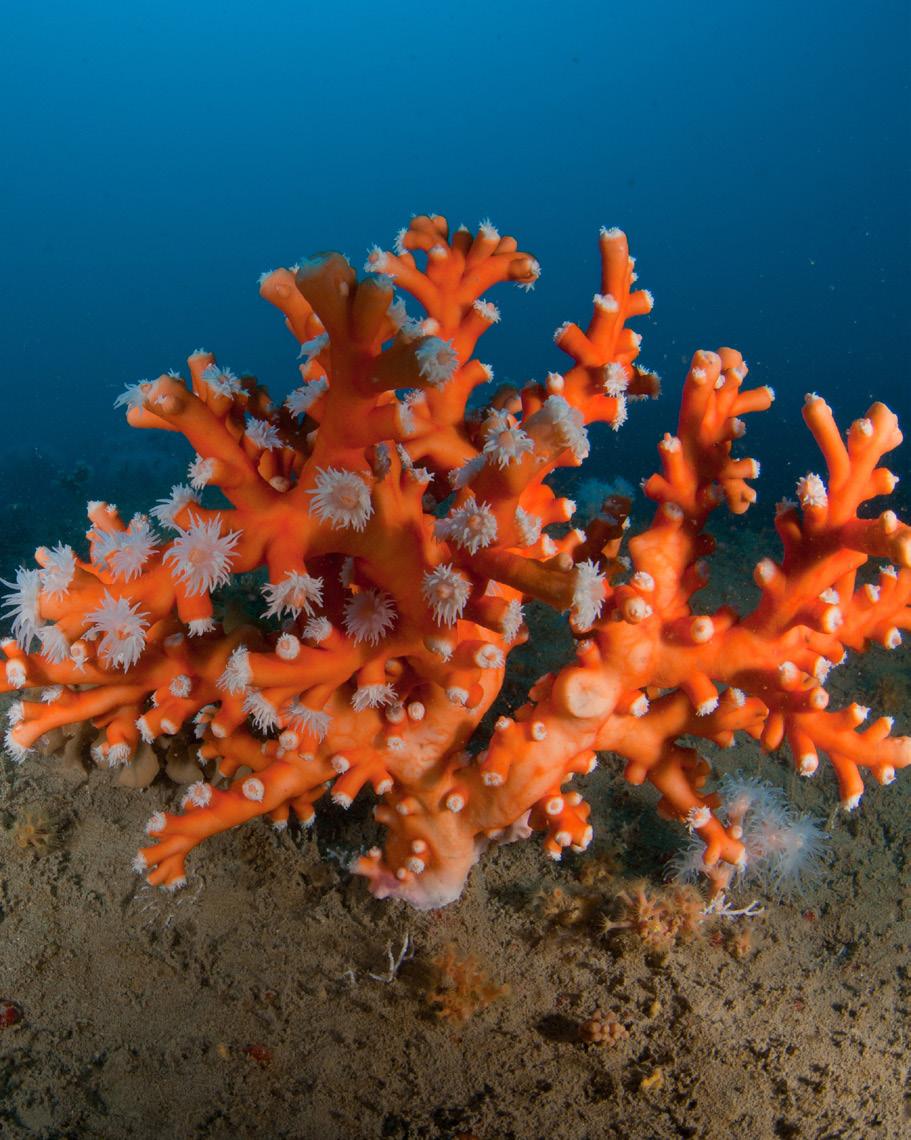
Coral in a newly-protected marine habitat in Spain. Strengthened marine reserves in Oregon.
DECEMBER 2023 - The Spanish government designated seven new marine protected areas in the Atlantic and the Mediterranean, bringing the total marine area protected in Spain from 12% to 21% and safeguarding key ecosystems.
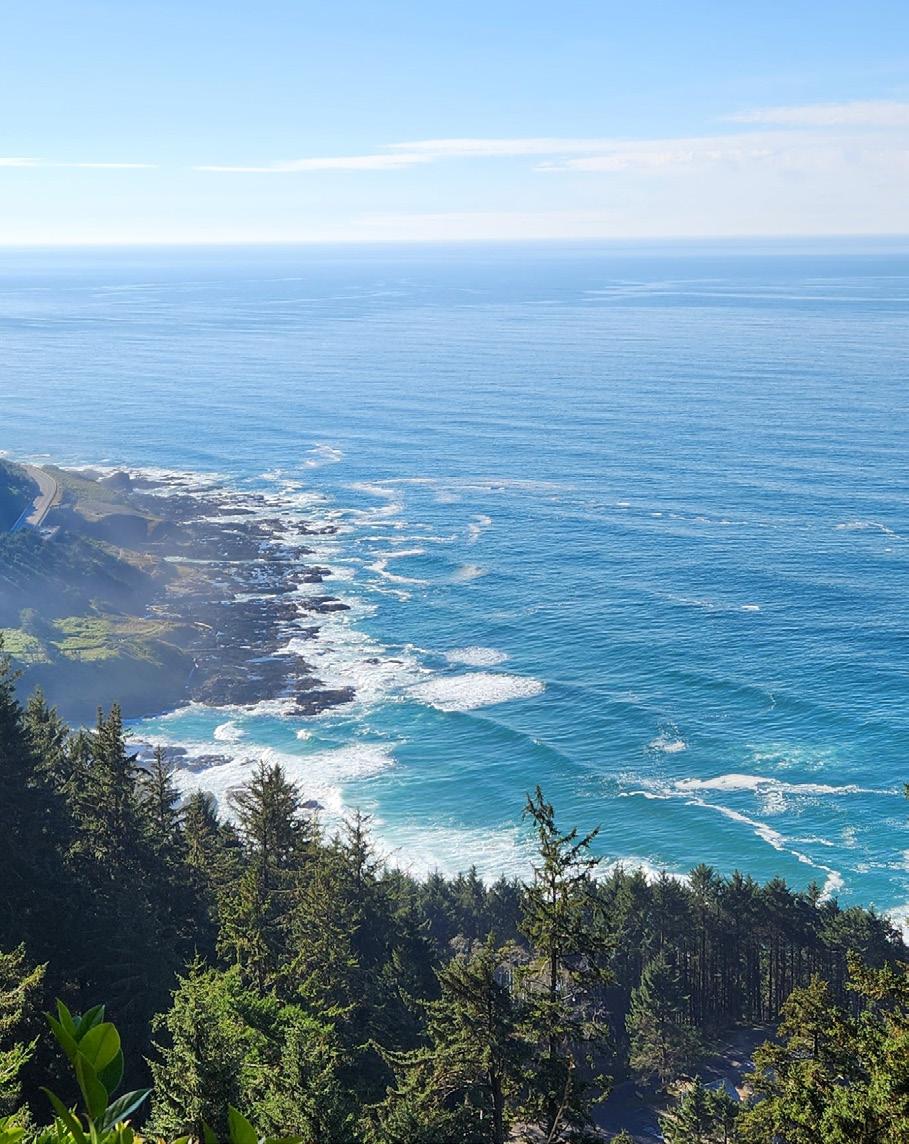
MARCH 2024 - Oregon state lawmakers passed a bill to strengthen and increase funding for its system of five marine reserves and adjacent protected areas. The bill will also require the development of an adaptive management plan including better engagement with coastal communities and Native American tribes.

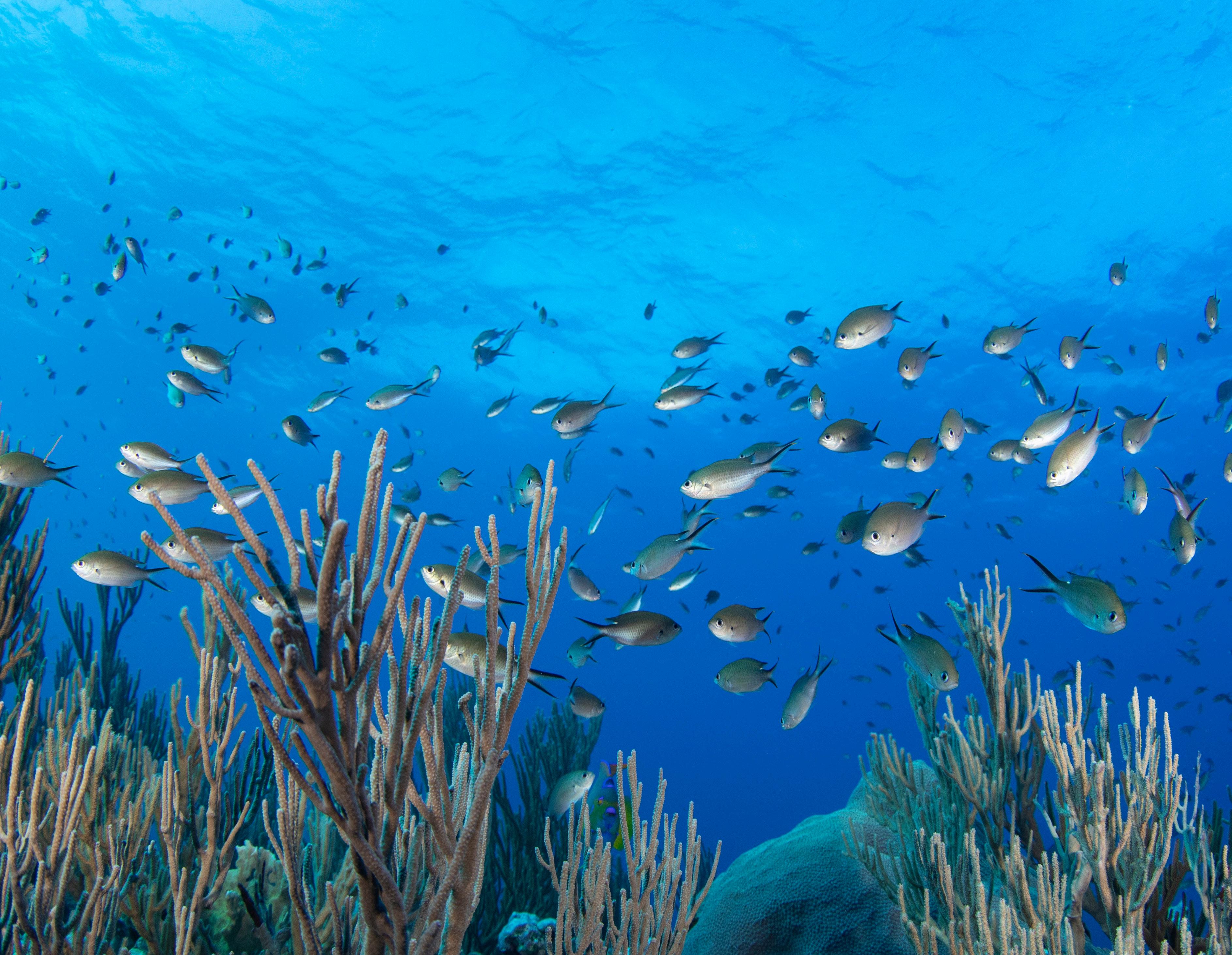

JANUARY 2024 - The Mexican government created Bajos del Norte National Park, a marine protected area (MPA) in the Gulf of Mexico that covers more than 13,000 square kilometers (over 5,000 square miles) off the coast of Yucatán. The largest MPA in the Gulf of Mexico, it will conserve coral reefs, help species including groupers, octopus, and spiny lobster recover, and protect migrating species like sharks and sea turtles. In 2021 and 2022, Oceana and our partner Blancpain conducted two expeditions to the area. Our findings, and the subsequent joint efforts of national scientists, civil society organizations, fishers, and the Mexican government, made this new MPA possible.
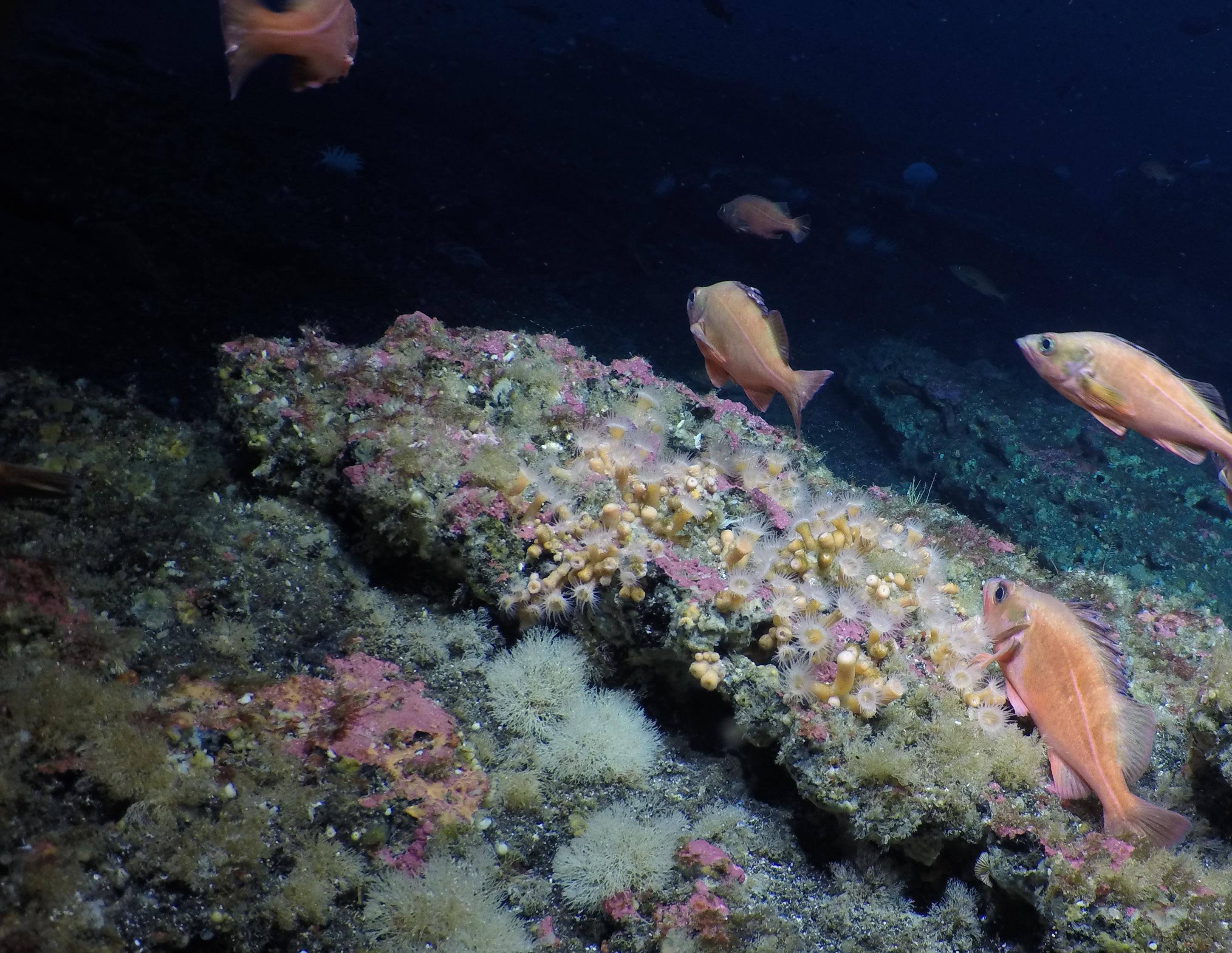

JUNE 2024 - Canada has designated 133,017 square kilometers (more than 51,000 square miles) of underwater mountains — known as seamounts — off the West Coast of Vancouver Island in British Columbia as its newest and largest marine protected area. Co-managed by Haida, Nuu-chah-nulth, Pacheedaht, and Quatsino First Nations, this protected area will safeguard marine life and ocean ecosystems from damaging fishing practices and other industrial activity and help rebuild abundant wild fisheries.
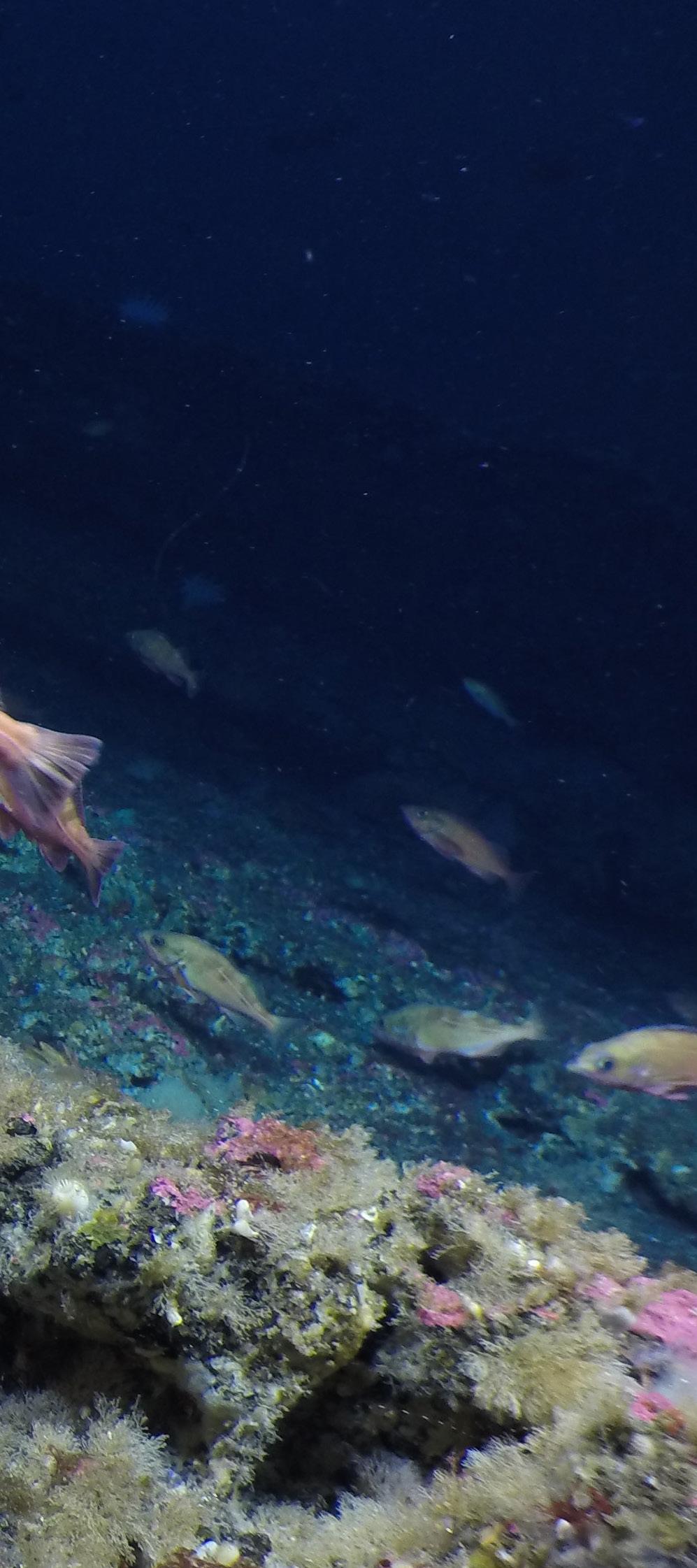
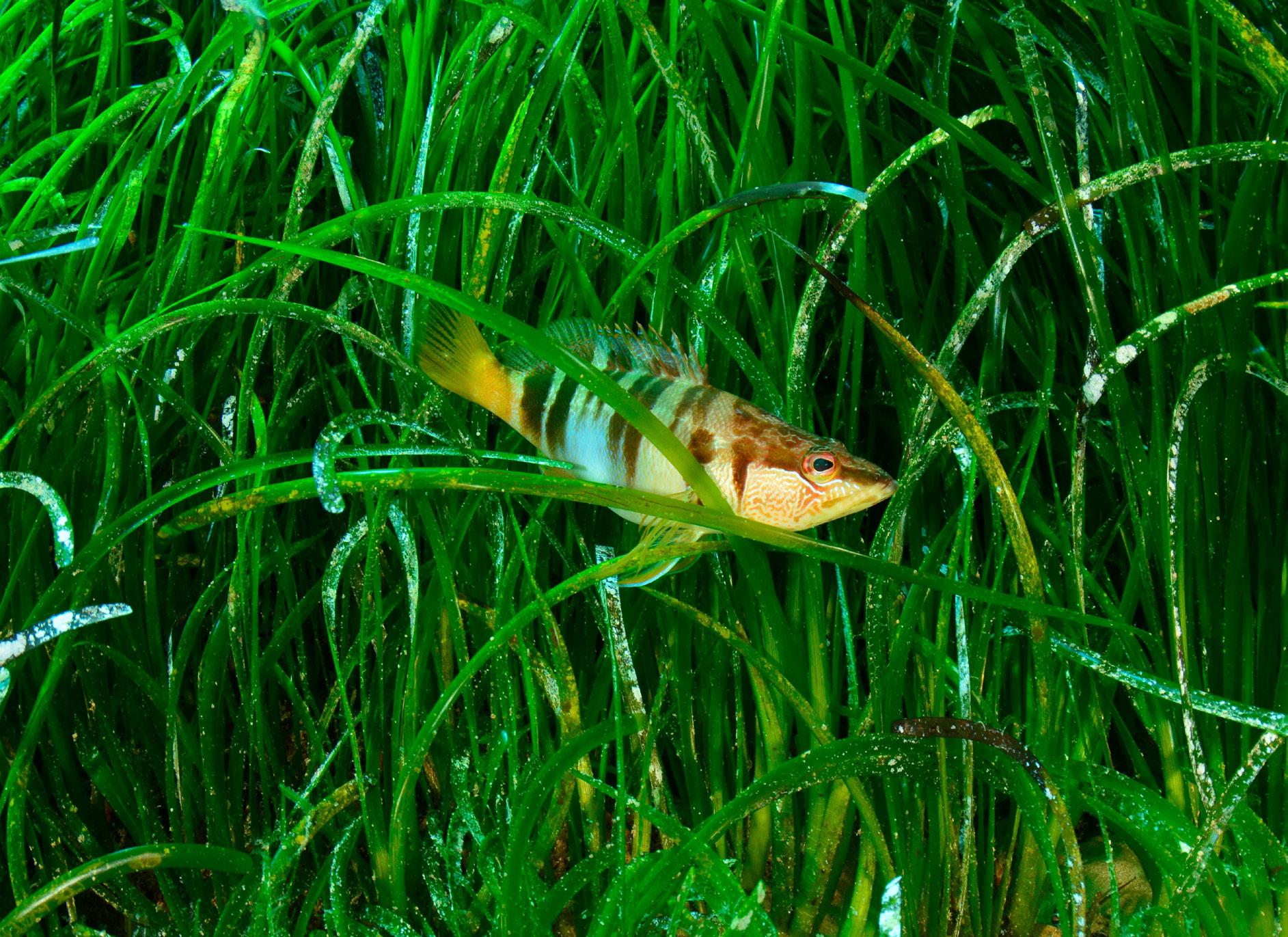
JUNE 2024 - A new biodiversity law in the European Union requires EU Member States to implement national restoration measures for at least 20% of EU seas by 2030, and for all ecosystems in need of restoration by 2050. The law also requires countries in the EU to find joint solutions when there is a conflict between marine restoration goals and destructive activities like bottom trawling in areas fished by neighboring countries.

JANUARY 2024 - The U.S. state of California put measures in place to protect humpback whales from becoming entangled in commercial crab fishing gear, following excessive whale entanglements and many humpback whale sightings. A critically endangered Pacific leatherback sea turtle was also found entangled and drowned in this fishing gear. Oceana is a member of the California Dungeness Crab Fishing Gear Working Group and successfully advocated for stronger measures to protect whales and other marine animals from entanglement, which included delaying the opening of the 2023-2024 commercial Dungeness crab fishery and reducing the number of crab traps that can be deployed off the central and southern California coasts by 50%.
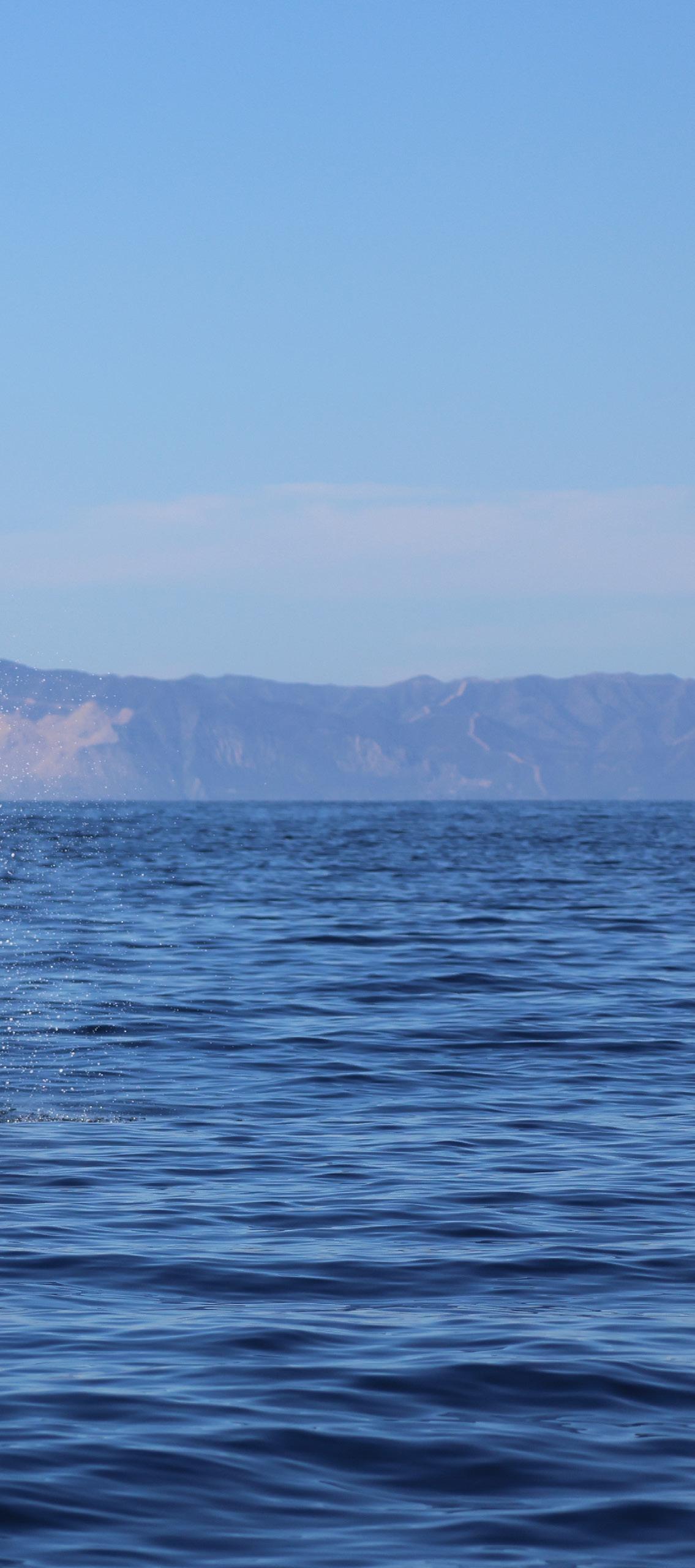
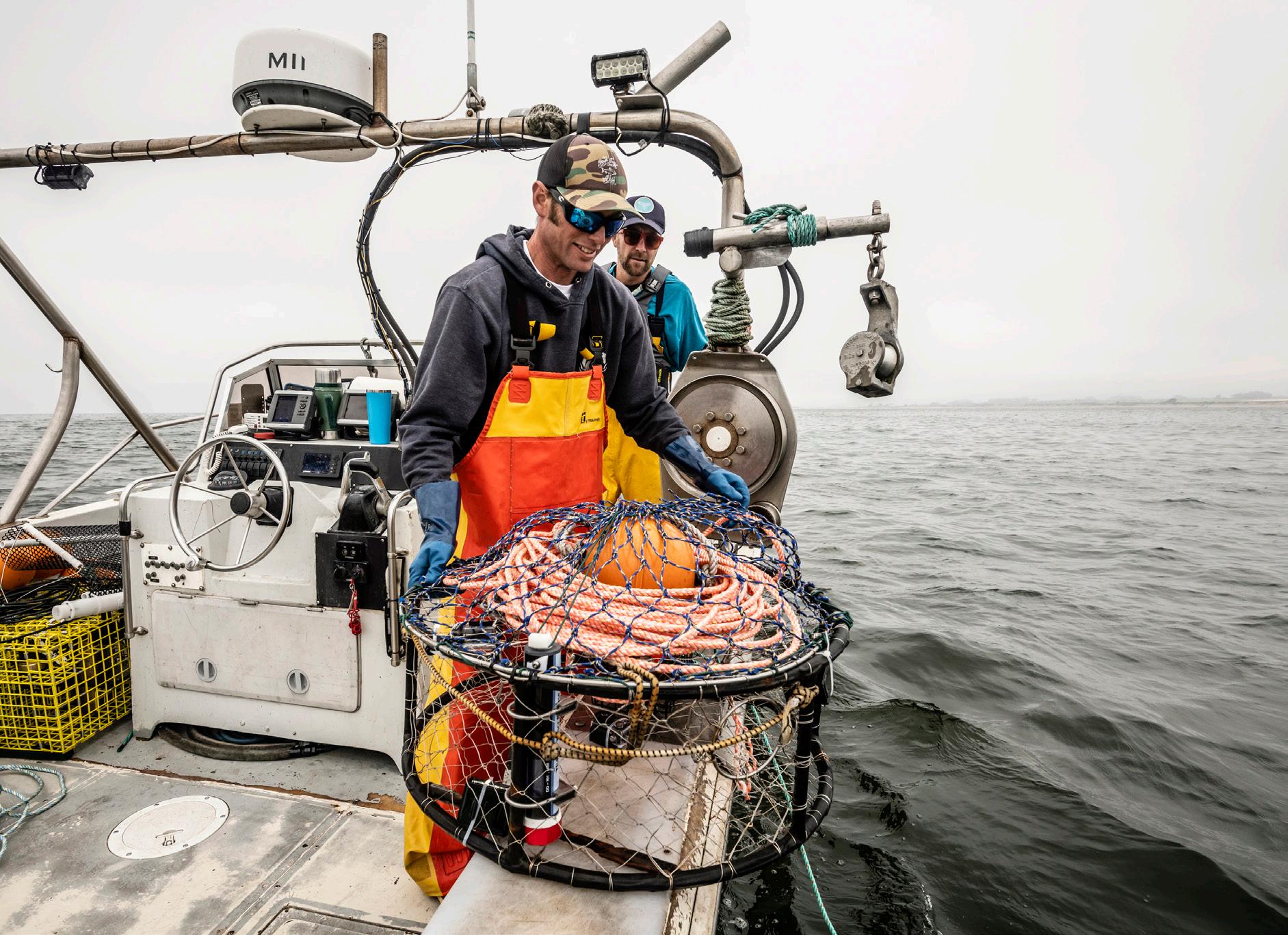
FEBRUARY 2024 - The California Ocean Protection Council authorized new funding to help keep whales and sea turtles from becoming entangled in commercial crab fishing gear, including funds to test innovative “ropeless” fishing gear. If the gear is successful, it could be authorized as soon as 2025.

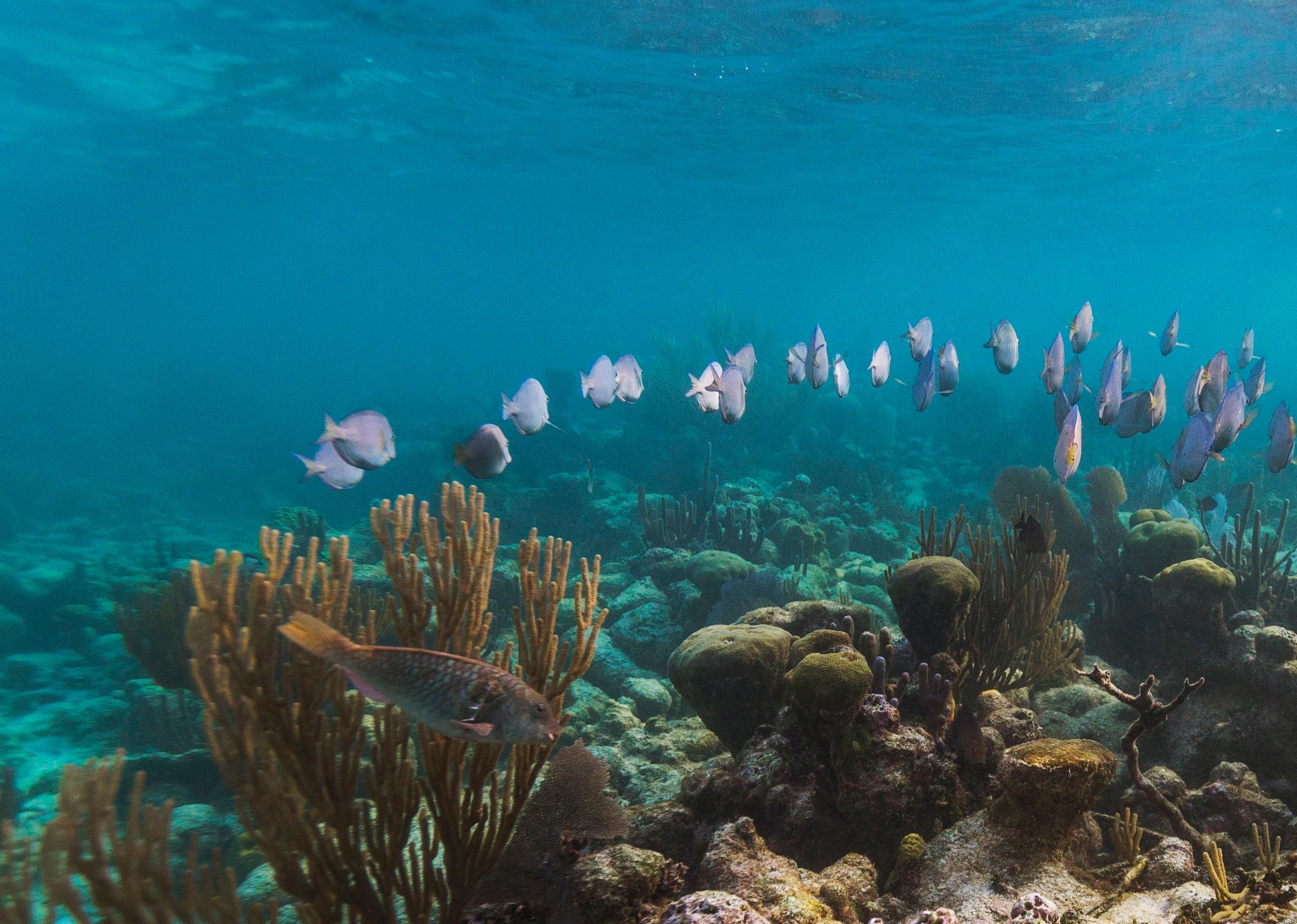
NOVEMBER 2023 - The Government of Belize passed a new law that requires any decision to open its ocean to oil and gas drilling to first be voted on by the Belizean people through a national referendum. Belize is home to 40% of the second largest barrier reef system in the world. Belizeans’ lives are inextricably tied to the sea and a third of the country’s economy is driven by tourism and fisheries. This victory would not have been possible without campaigning by Oceana and our allies, who secured 22,090 signed petitions from Belizean voters to ensure that “people power” is at the center of decisions about the long-term future of the country’s reef, ocean, and the livelihoods its resources sustain. In 2017, the government of Belize made history by unanimously passing an indefinite moratorium on offshore oil in Belize, a milestone that wouldn’t have been possible without the years-long campaigning by Oceana and the people of Belize.
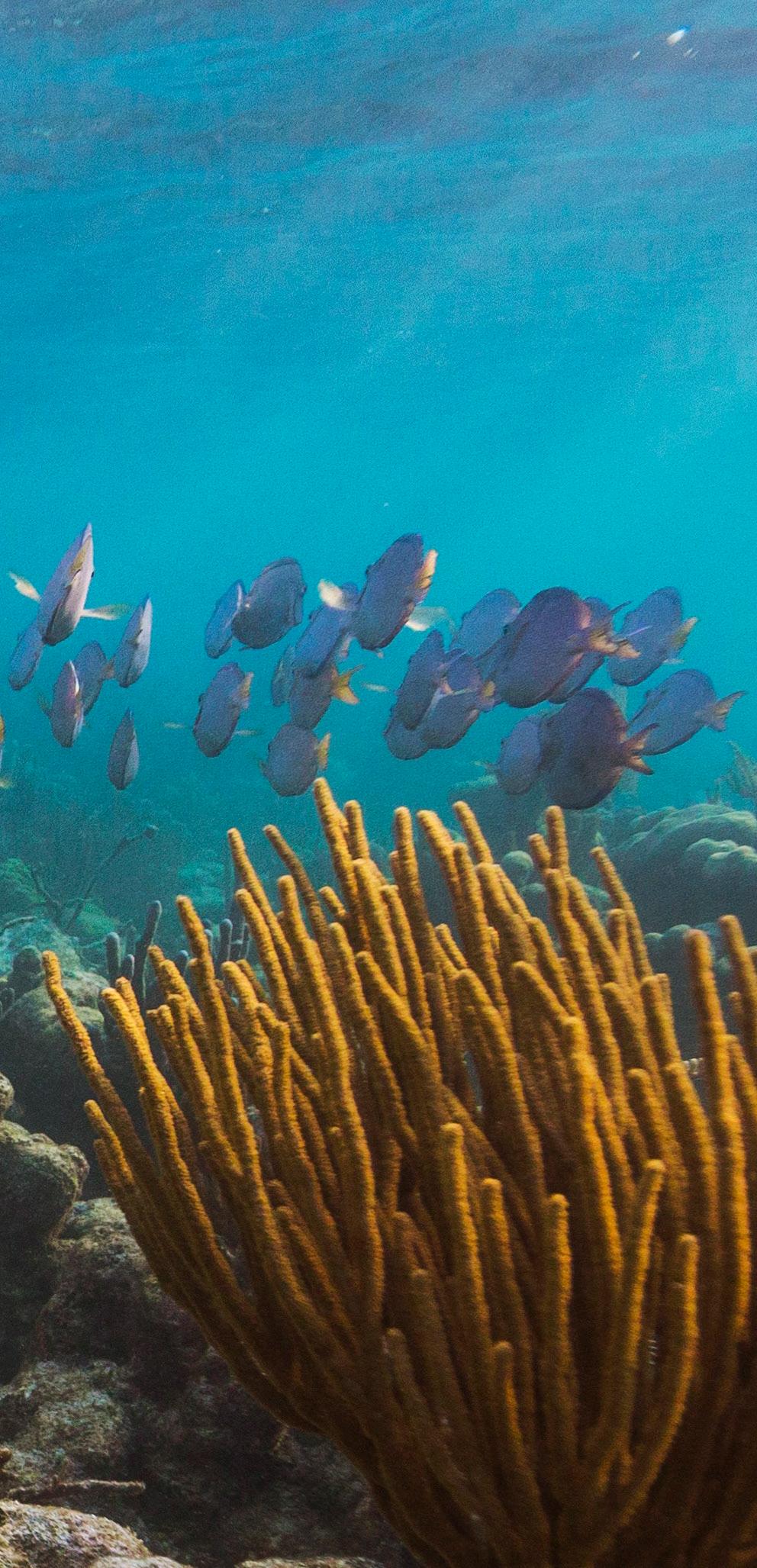
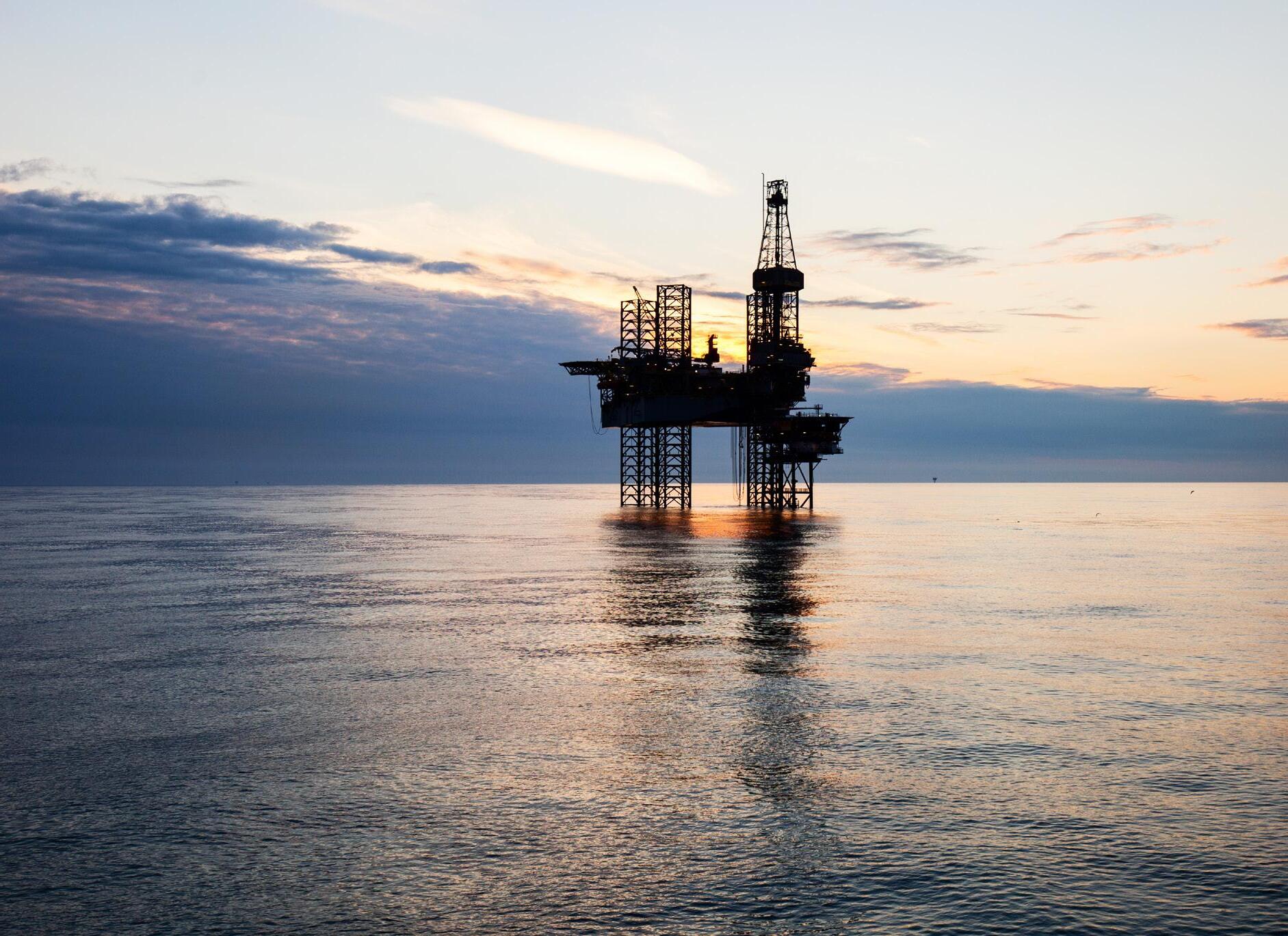
DECEMBER 2023 - In the United States, President Biden’s administration finalized its Five-Year Plan for offshore oil and gas leasing, which includes the fewest number of proposed lease sales to date — three leases, instead of opening up nearly all U.S. waters as proposed in 2018.
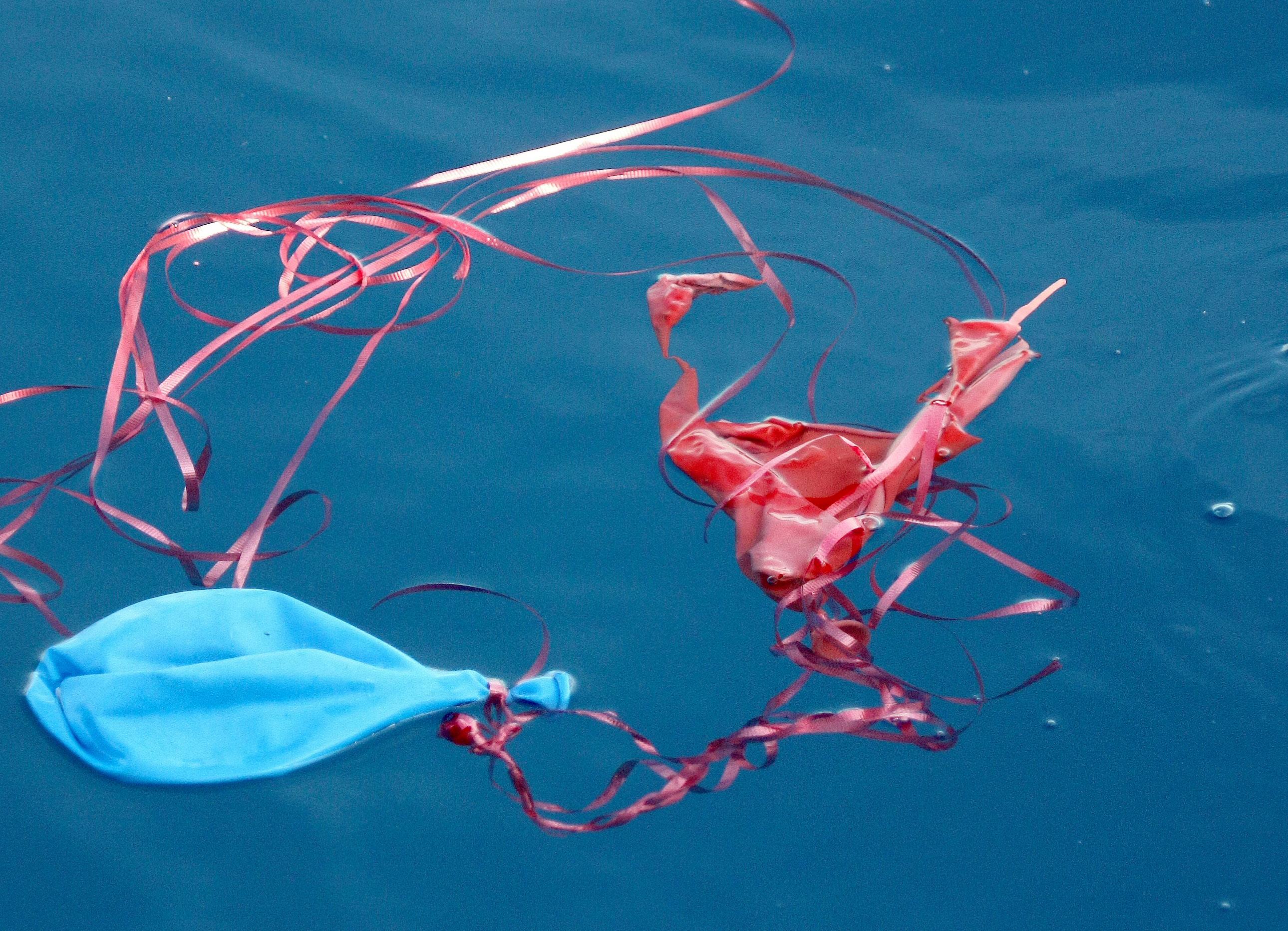
AUGUST 2023 - The U.S. state of Delaware’s new law phases out single-use plastics, prohibiting restaurants from providing plastic foam food containers, plastic beverage stirrers, and other plastic items. With this new legislation, Delaware joins a growing list of U.S. states and cities that have taken legislative action to tackle the plastic pollution crisis.
JUNE 2024 - Following campaigning by Oceana and our allies, the U.S. state of Florida banned the intentional release of balloons. Studies show balloons are one of the deadliest types of plastic for marine wildlife.
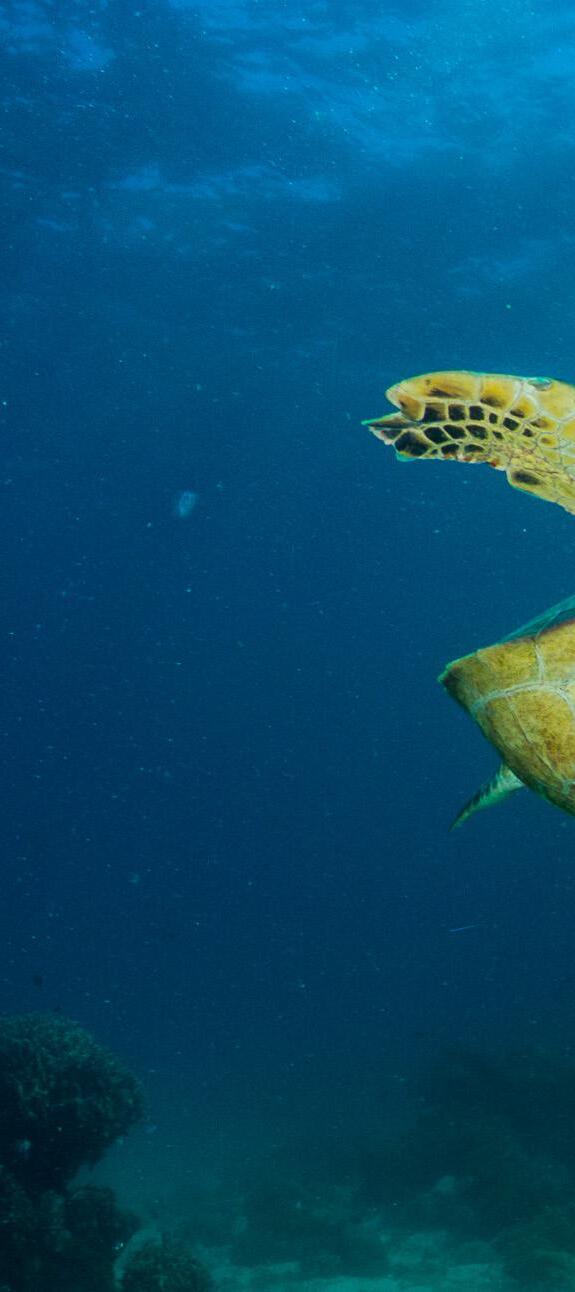
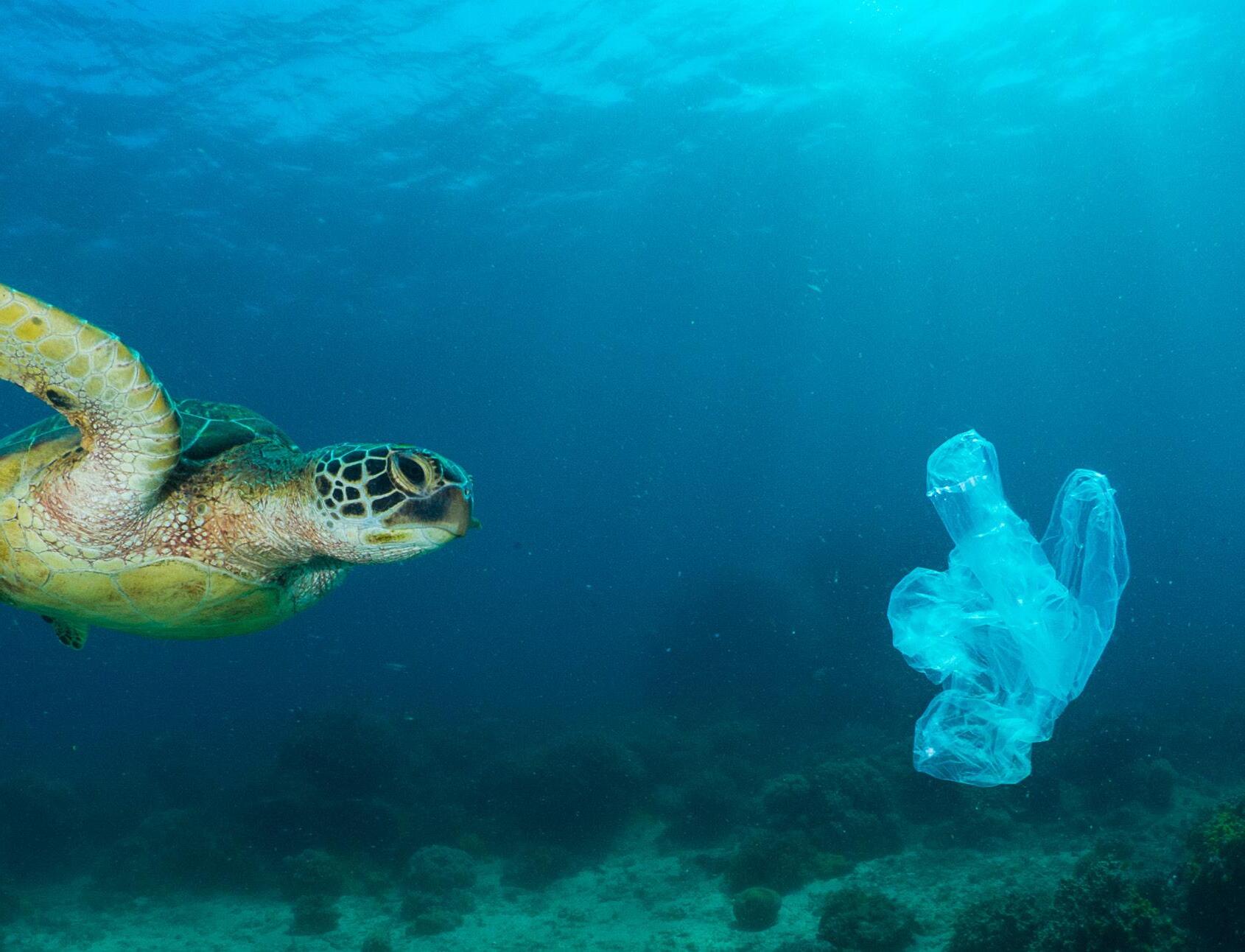

JUNE 2024 - Amazon has publically committed to fully remove plastic air pillows from its delivery packaging in North America by the end of 2024 and replace them with 100% recycled paper filler. The move is expected to avoid nearly 15 billion plastic air pillows every year, according to the company. The reduction follows years of campaigning by Oceana and our allies for the company to address its plastic problem. Since 2020, Oceana has released reports estimating Amazon’s plastic packaging waste footprint, campaigned outside the company’s headquarters, met with company representatives, and advocated for related shareholder resolutions.
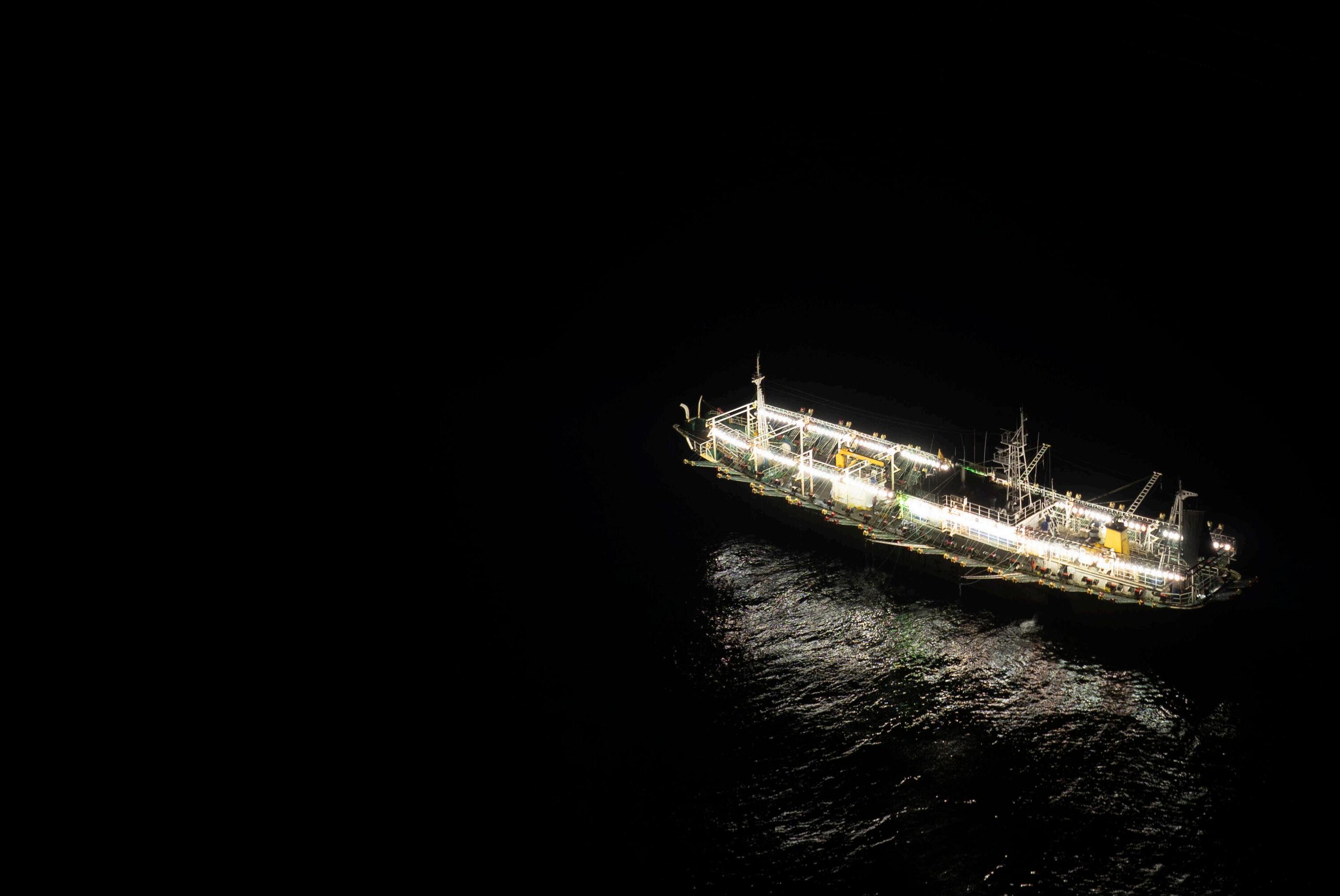
JULY 2023 - A new law requires all European Union fishing vessels, including more than 41,000 small-scale vessels, to install and use tracking systems by 2030 at the latest. Tracking systems have numerous benefits for the ocean, including promoting sustainable fisheries by increasing transparency about fishing activities. Simultaneously, they empower fishers by involving them in fisheries management and enable rapid emergency response in the case of safety issues at sea. The law also requires more transparency from EU countries, which must now disclose the enforcement actions they are taking. The countries must also set up a digital traceability system to provide key information to authorities for all seafood products on the EU market. This law, which follows campaigning by Oceana and our allies, will enhance transparency and help combat illegal fishing.

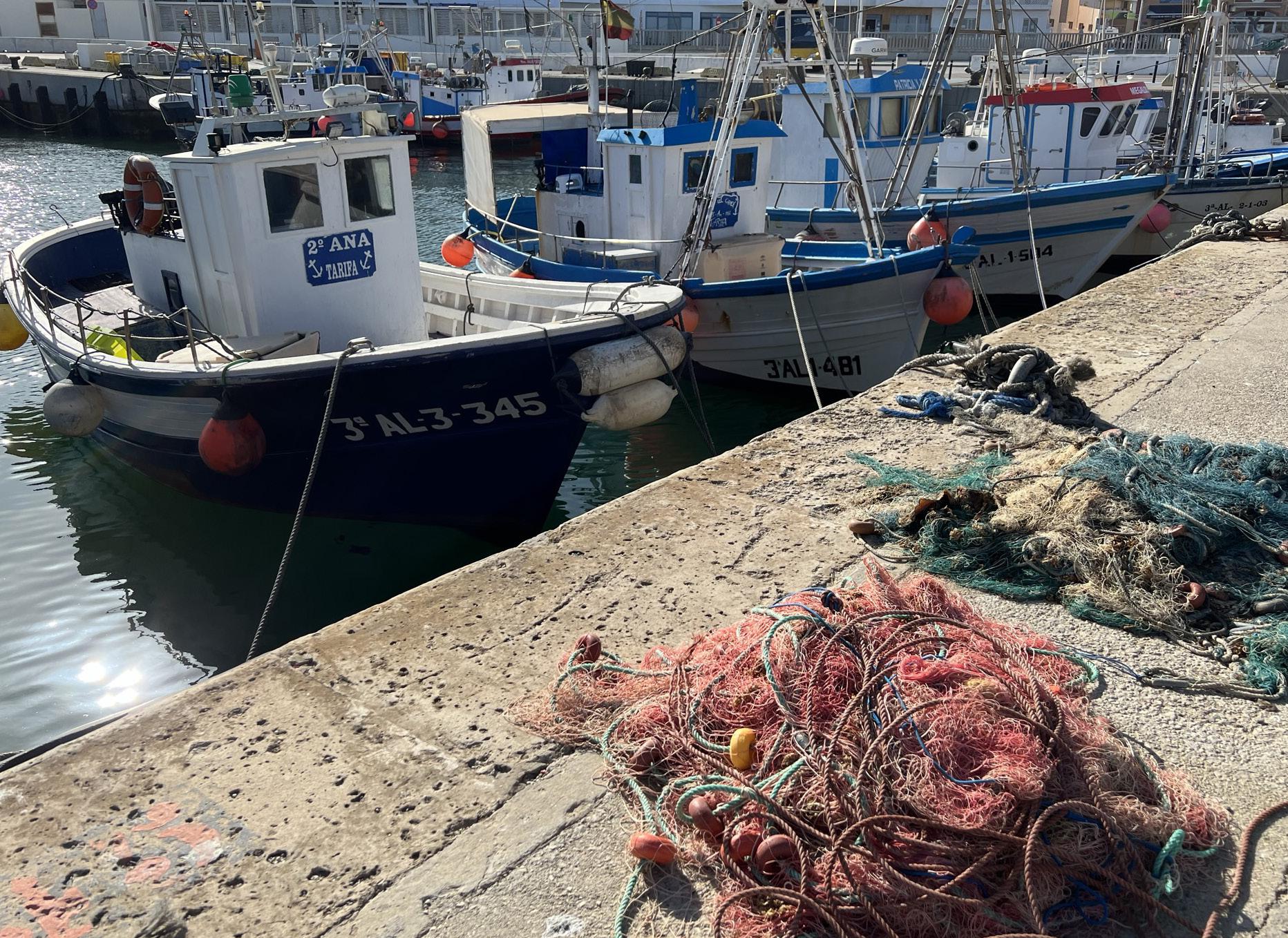
DECEMBER 2023 - Responding to information provided by Oceana, the government of Spain sanctioned 25 Spanish-flagged fishing vessels for repeatedly disabling their automatic identification system (AIS). These vessels, spotted near Argentinian waters, spent nearly twice as much time with their AIS devices off as they did visibly fishing.

In recent years, new fishing vessels in Peru have been constructed at an unsustainable pace.
JANUARY 2024 - Following unsustainable growth in Peru’s fishing fleet, the government criminalized the illegal construction of fishing vessels. Oceana campaigned with artisanal fishers and other allies to enact this law, which will support the livelihoods of law-abiding artisanal fishers and give prosecutors better tools to tackle illegal fishing and overfishing in Peru’s waters.
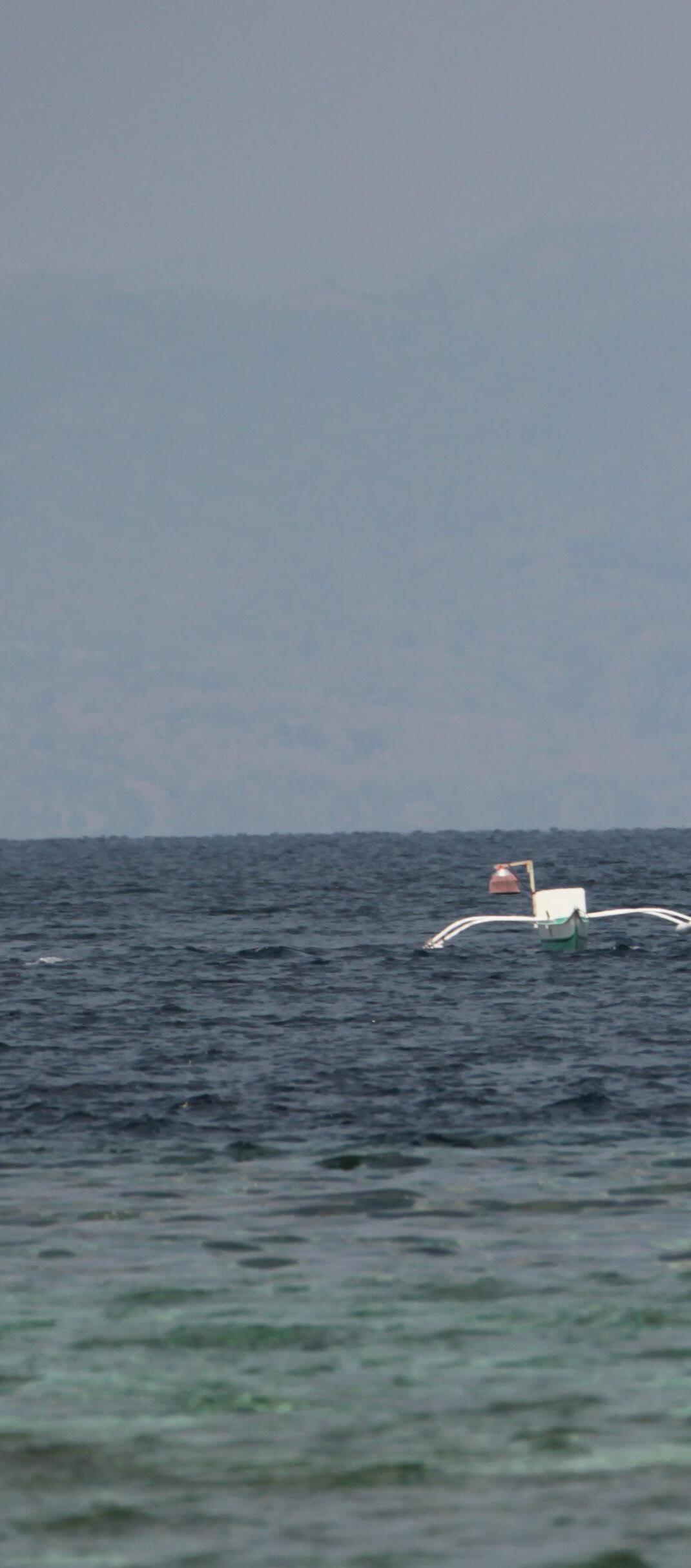
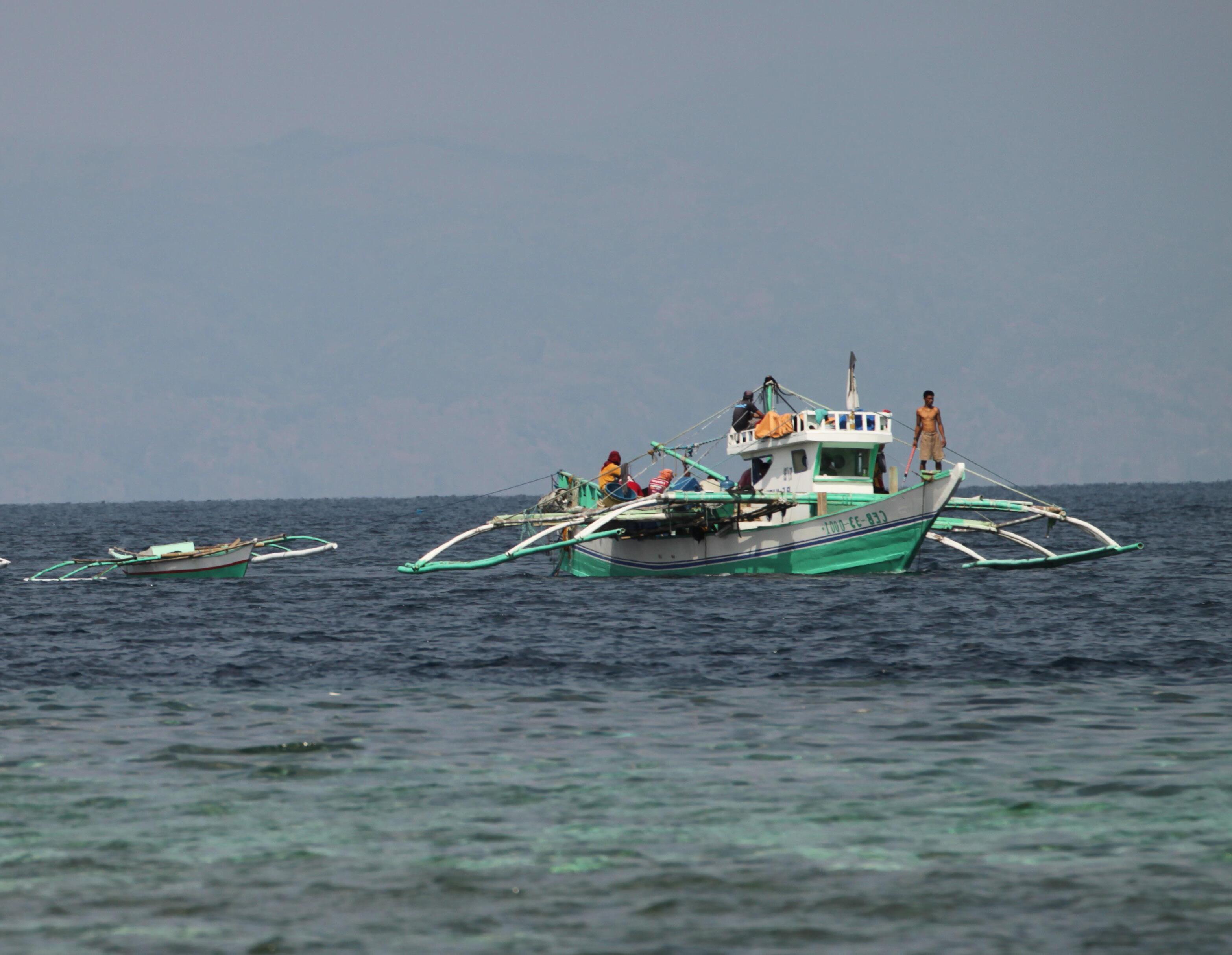
JULY 2023 - A presidential order will require the Philippines’ vessel monitoring rules to be fully implemented, helping to prevent illegal, unreported, and unregulated fishing while deterring commercial fishing vessels from encroaching into waters reserved for artisanal fishers.
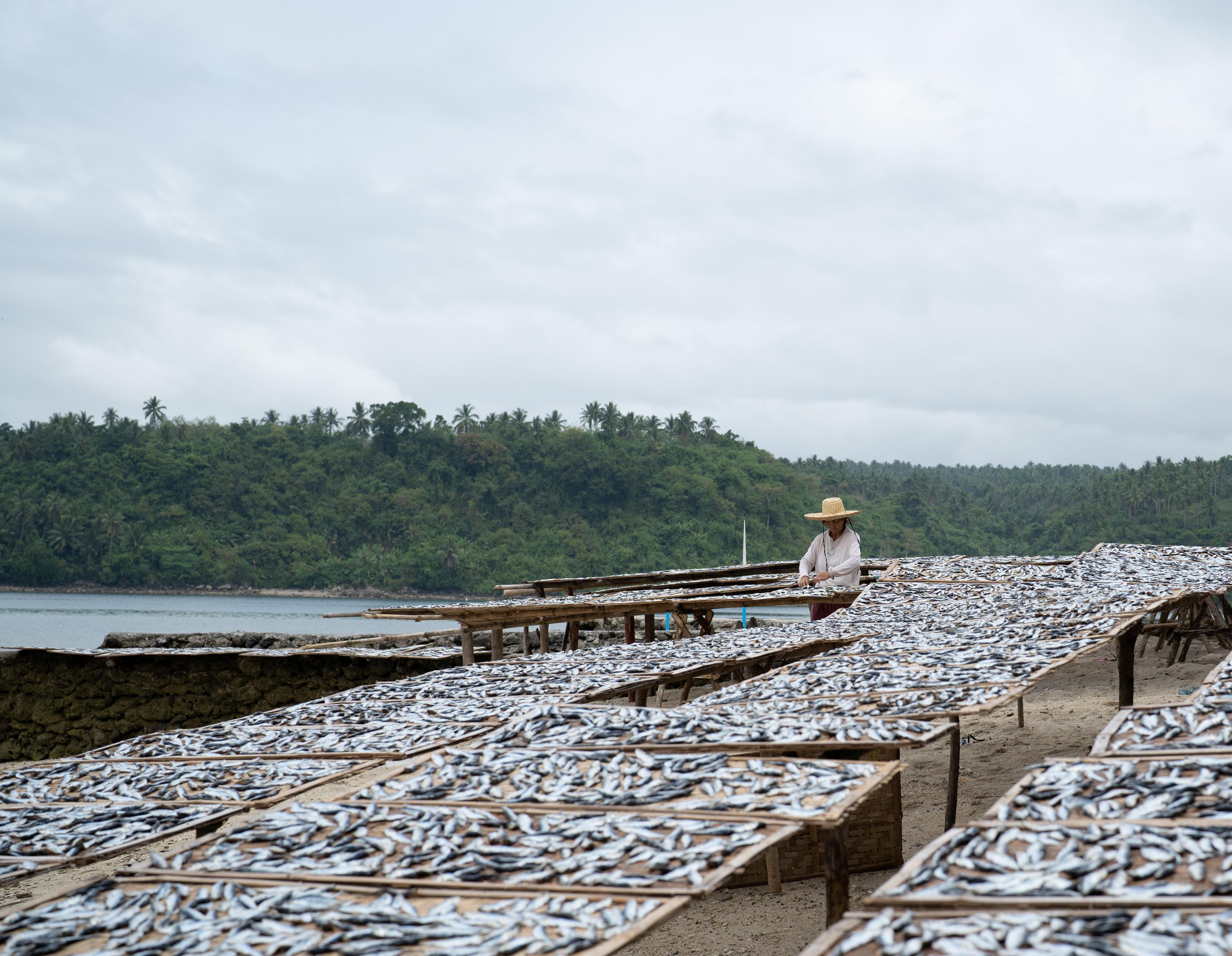
AUGUST 2023 - The Philippines government will require all the country’s fisheries management areas to implement a national plan to rebuild sardine populations. Sardines are an affordable and nutrient-rich protein source for many Filipino households. Oceana advocated for this national science-based management plan to help restore the health and long-term abundance of the species after rampant overfishing and population decline. The comprehensive plan includes rules for catching sardines, limits on juvenile catch, and closed seasons. It also includes opportunities for fishers to generate alternative income during closed seasons. Oceana will continue to work with artisanal fishers, coastal communities, and governmental officials to ensure the plan is properly implemented across the fisheries management areas in Samar and Northern Samar.
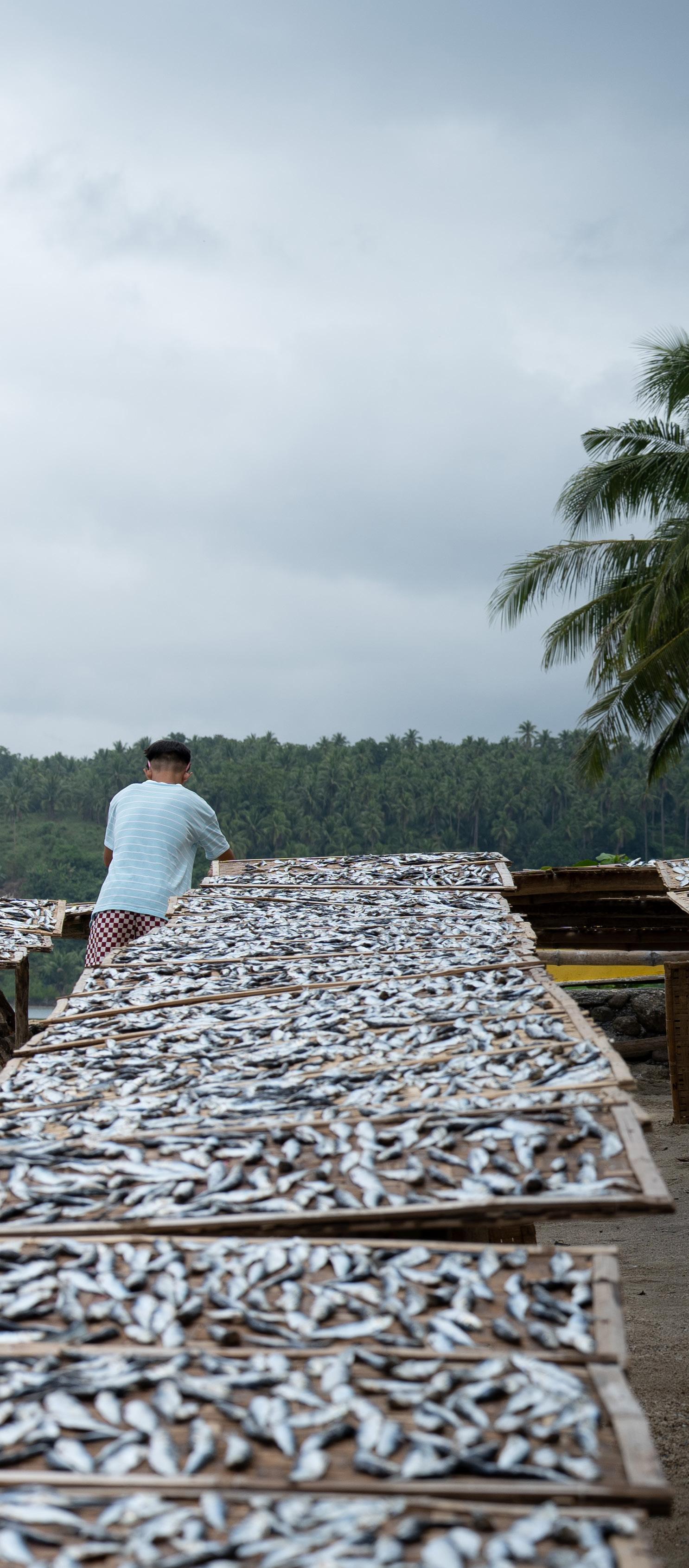
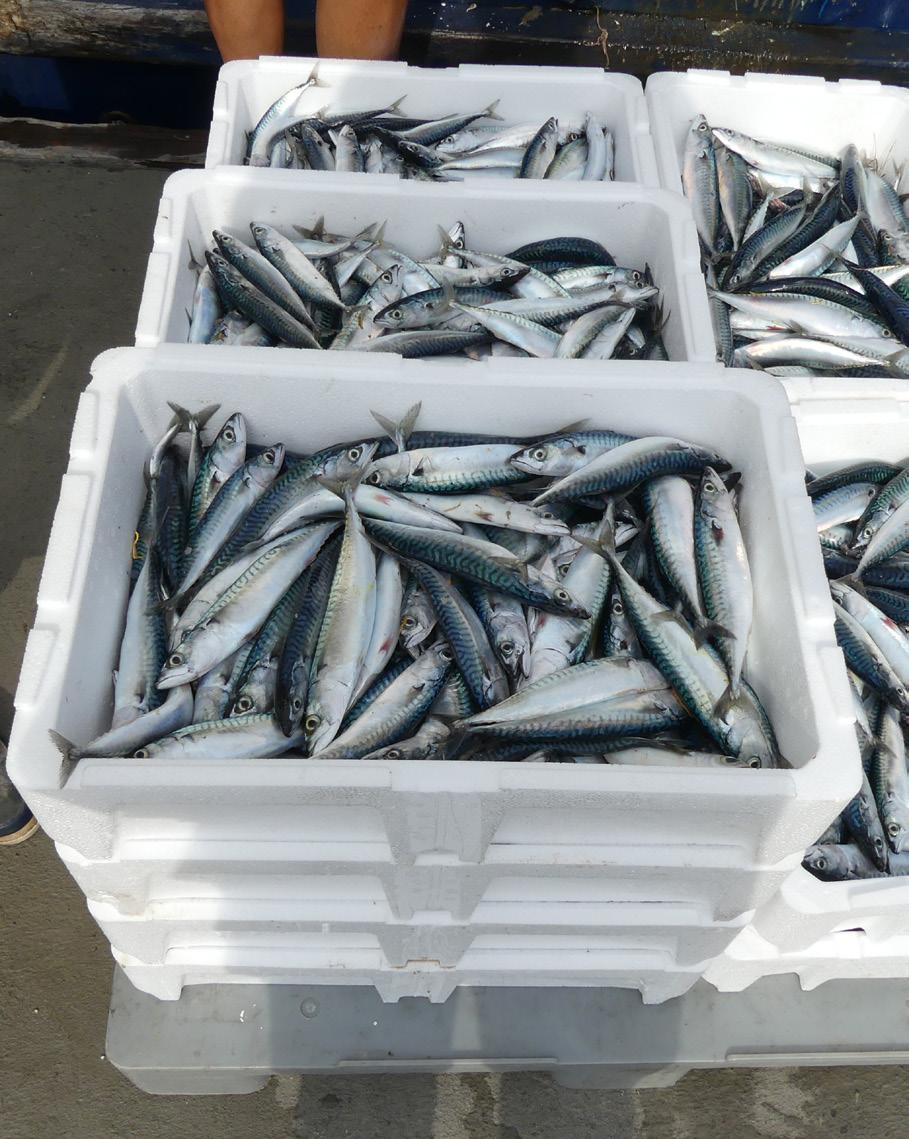
New
The Mediterranean Sea is the most overfished sea in the world.
DECEMBER 2023 - The European Union set more sustainable catch limits for the fisheries it manages in the Northeast Atlantic Ocean and the Mediterranean Sea. These limits, set for 2024, aim to rebuild fish populations following destructive overfishing in EU waters.
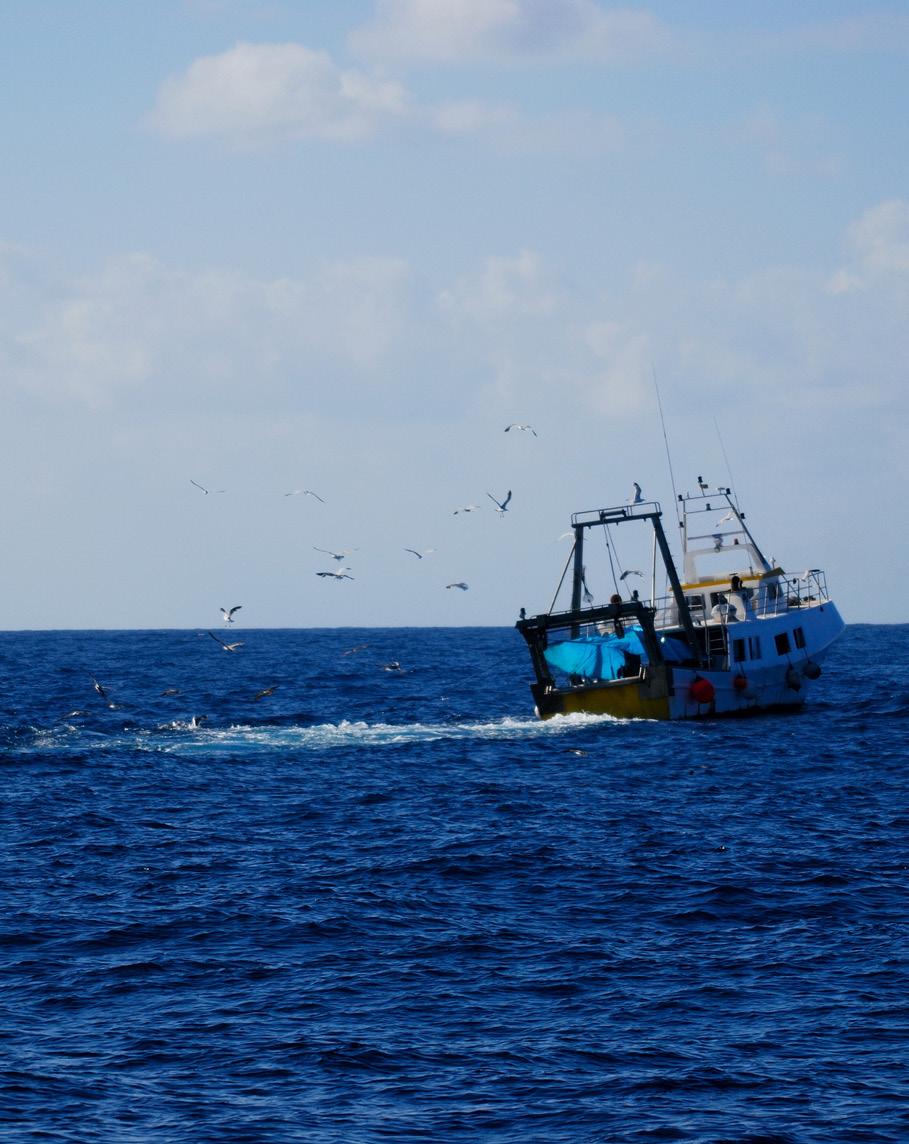
NOVEMBER 2023 - A new sanction system, created by the General Fisheries Commission for the Mediterranean, will allow the commission to penalize states that fail to tackle overfishing or illegal fishing by their fleets. This new system is essential to restoring fish populations in the Mediterranean Sea, the most overfished sea on Earth.
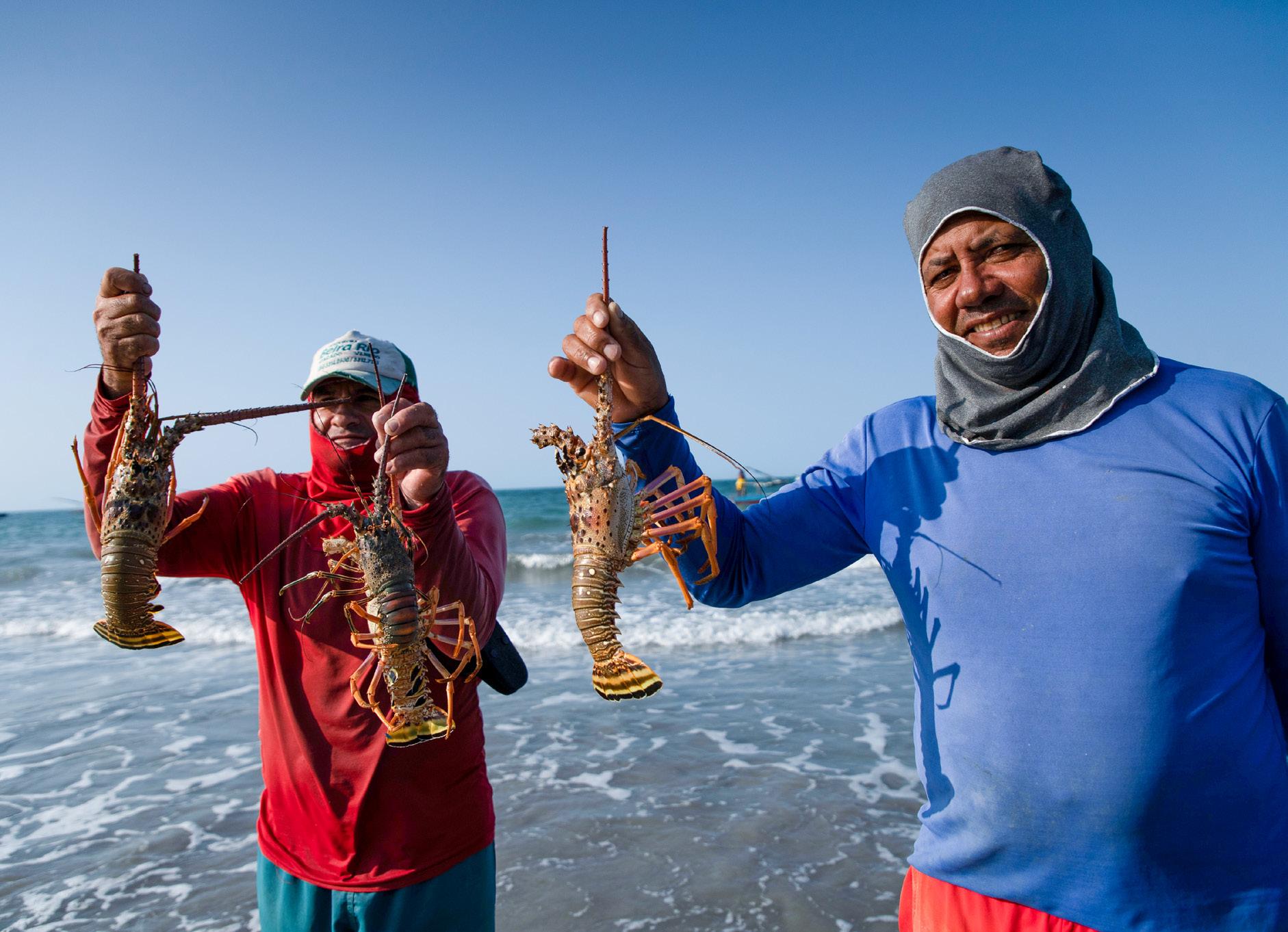
MAY 2024 - Brazil’s government approved new science-based catch limits for the red spiny lobster and the green lobster to help the populations recover during the 2024 fishing season. The campaign was supported by artisanal fishers, who rely on lobster fishing as a primary source of income.
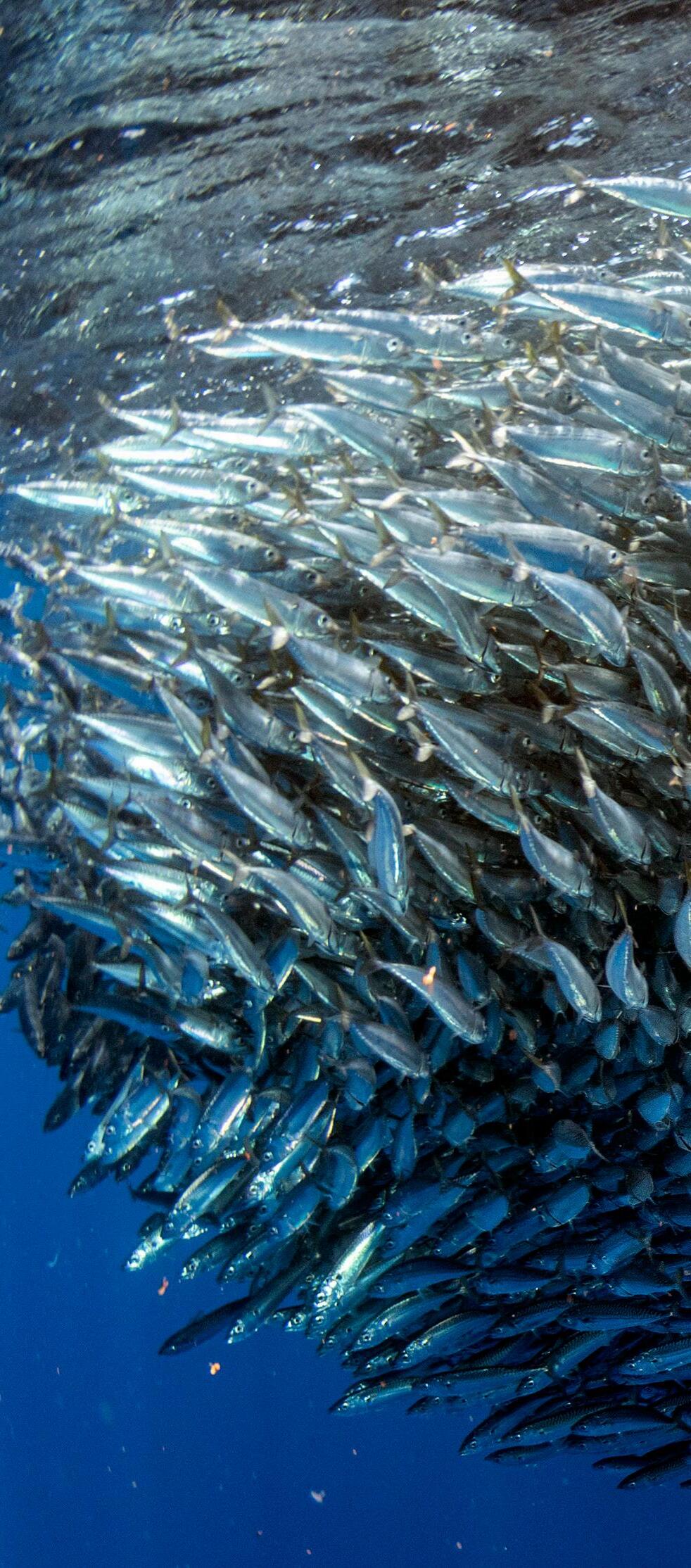
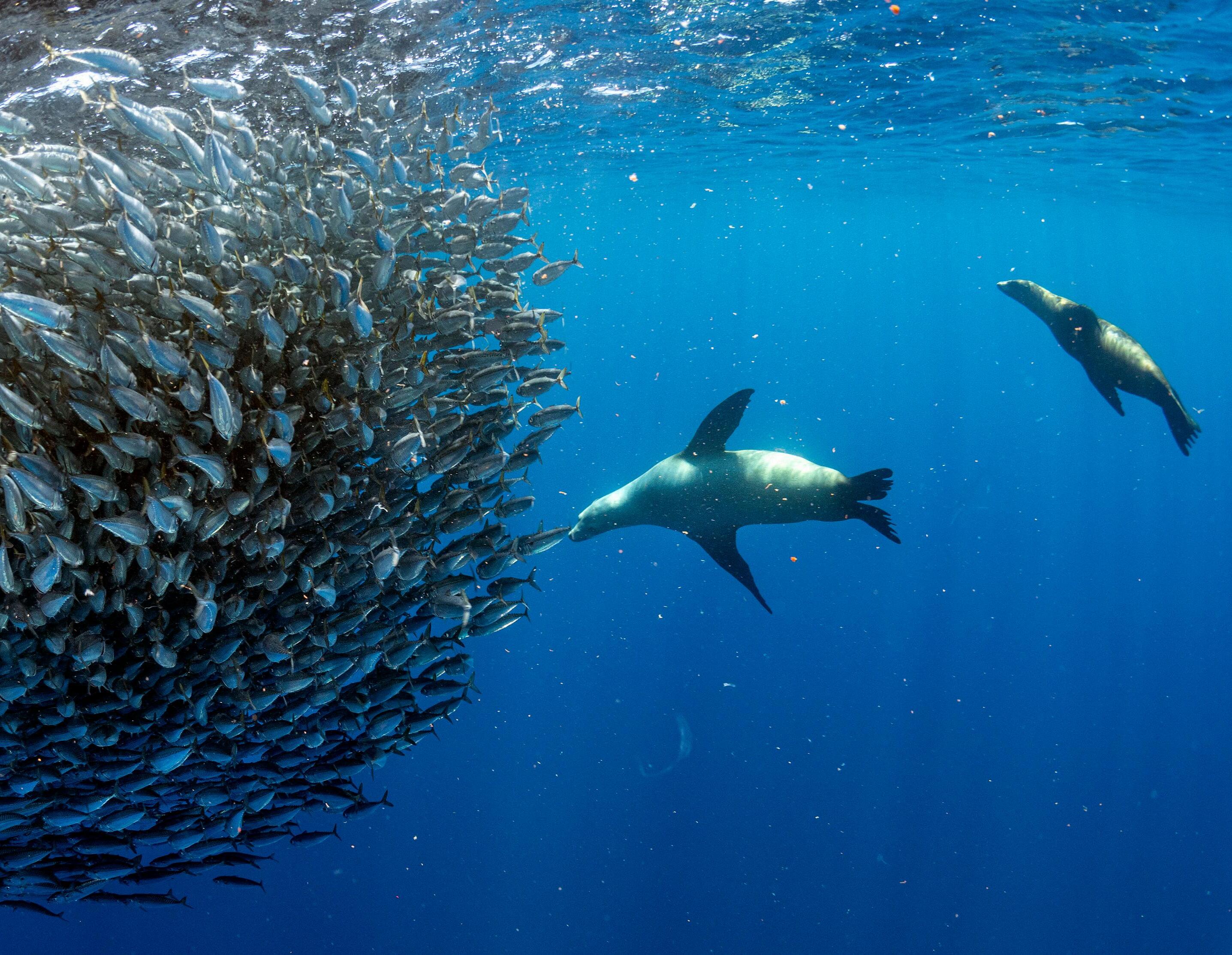
APRIL 2024 - Oceana, represented by Earthjustice, won our lawsuit arguing that the National Marine Fisheries Service (NOAA) failed to meet its legal obligation to rebuild the U.S. West Coast Pacific sardine population after it collapsed. The United States federal district court ruled that NOAA must develop a new science-based plan to rebuild the sardine population, which has been mismanaged for more than a decade.
Around the world, Oceana’s expeditions bring to life the essential underwater areas that we seek to protect. We document unique habitats and — using the photos, video, and scientific data gathered on our expeditions — collaborate with local communities and other allies to persuade policymakers to protect these exceptional places. Since Oceana’s inaugural voyage across the Atlantic Ocean and Mediterranean Sea in 2005, we have led more than 60 scientific expeditions and conducted thousands of ocean surveys. These expeditions have been instrumental in Oceana protecting over 10 million square kilometers (nearly 4 million square miles) of ocean habitat. From July 2023 to June 2024, Oceana embarked on expeditions in five ecologically important areas:
• Paracas National Reserve and the Guano Islands, Islets, and Capes National Reserve System, Peru
• Tropical Pacific Sea, off the Coasts of Piura and Tumbes, Peru
• Alboran Sea, Europe
• California Channel Islands, United States
• The Keys of Campeche Bank, Gulf of Mexico
Oceana Offices
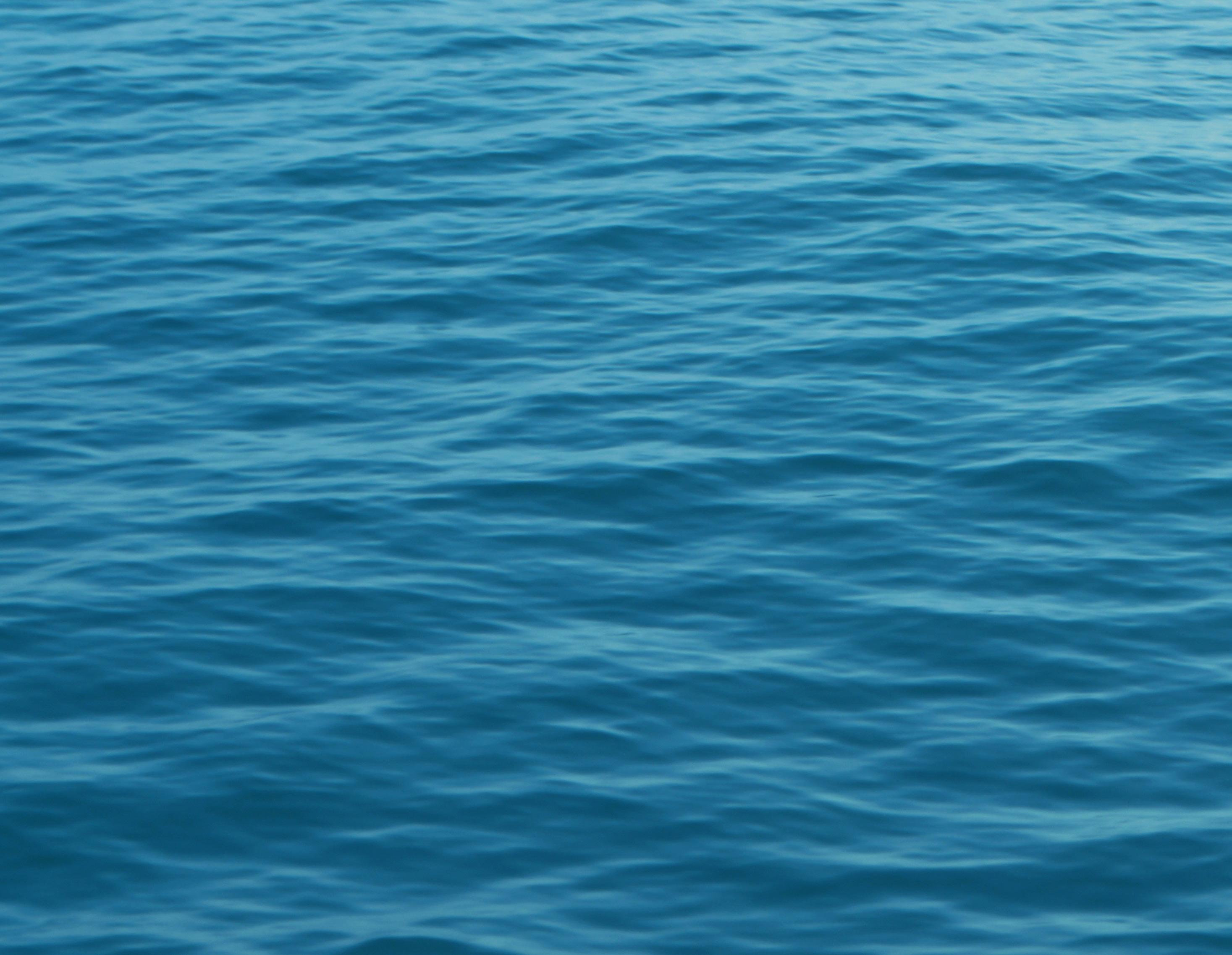
July 2023 – June 2024 Expeditions
Earlier Expeditions
Circle size corresponds to approximate expedition distance.

In July 2023, Oceana’s team in Peru set off to record the abundance and biodiversity of the Paracas National Reserve and the Guano Islands, Islets, and Capes National Reserve System. Led by Oceana’s scientists and supported by communications staff, the expedition also included experienced divers from Peru’s neighboring country of Chile and journalists from Latina Television, one of Peru’s largest national channels, who created a documentary based on the journey’s findings. The expedition enhanced Oceana’s knowledge of marine life in this important area, including several obscure species of cold-water corals, and the ecological processes vital to sustaining a thriving seafood industry.
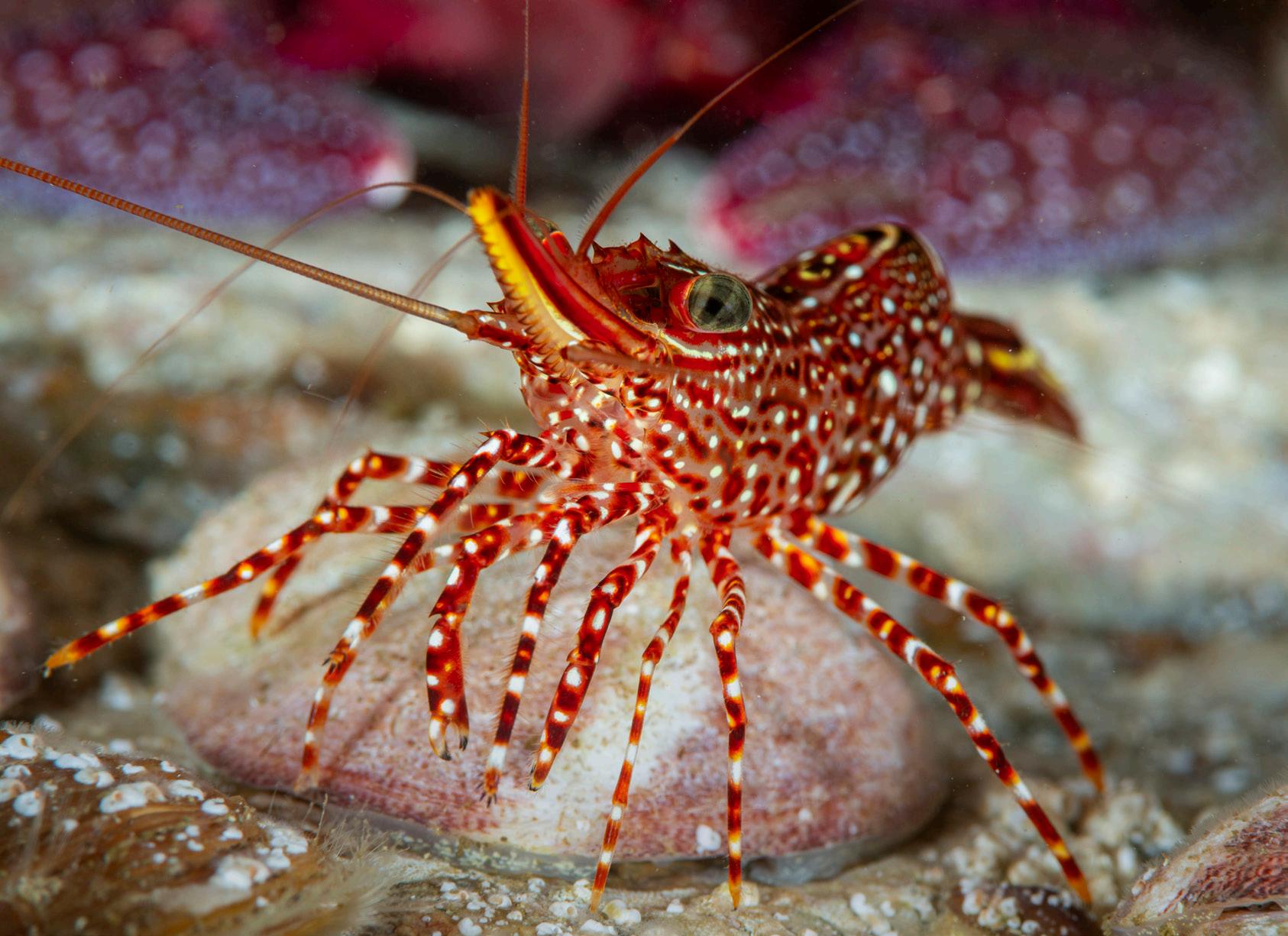
A colorful species known as the “painted shrimp.”

Paracas National Reserve is home to a variety of marine habitats.
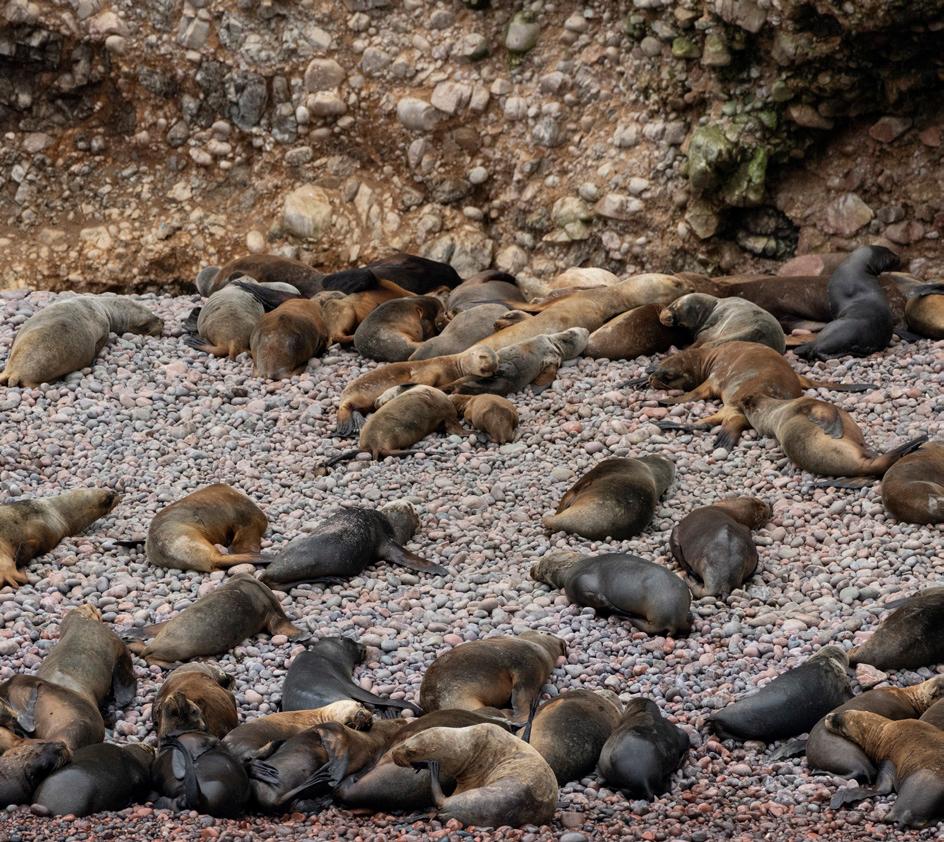
Colonies of sea lions were smaller than usual. Due to El Niño, some had left in search of cooler waters.
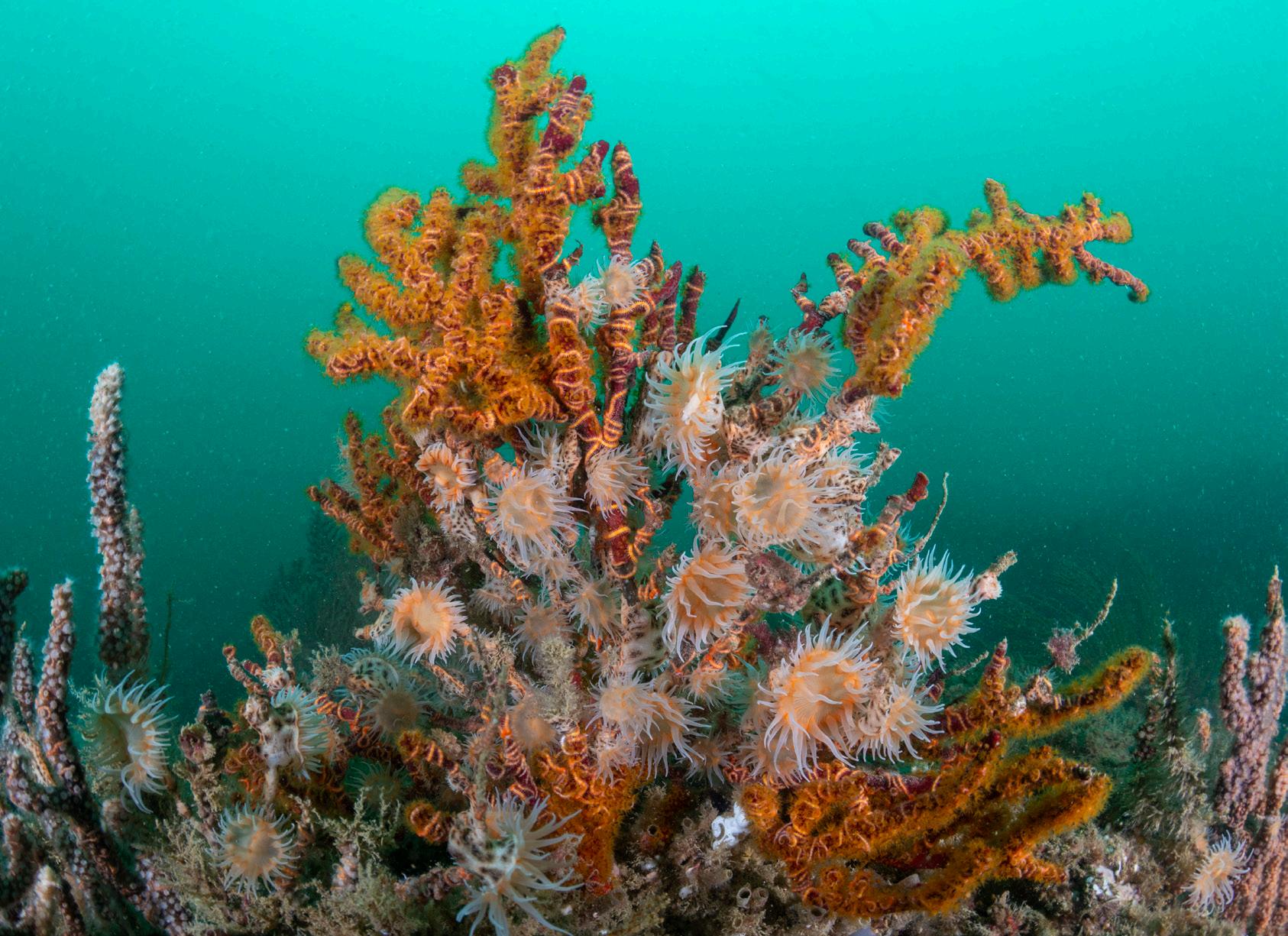
Leopard anemones seen on slime coral.
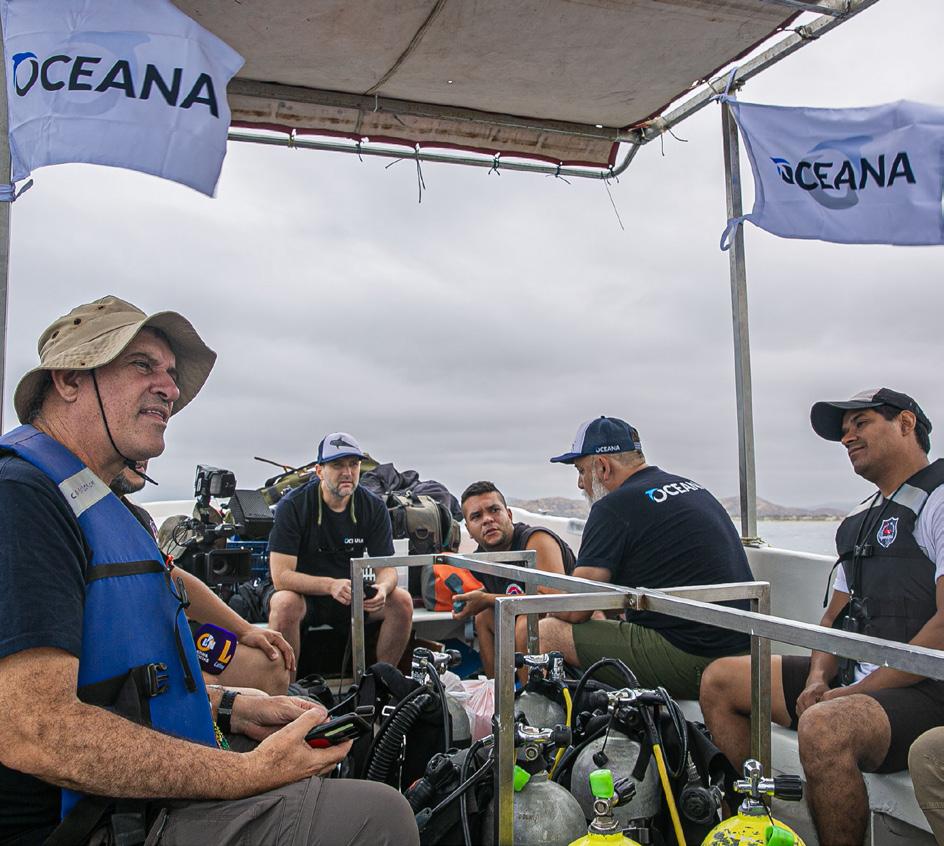
Oceana’s expedition team sets off for the first dive of the day.
A Haller’s round ray swims among the rocks of a reef.
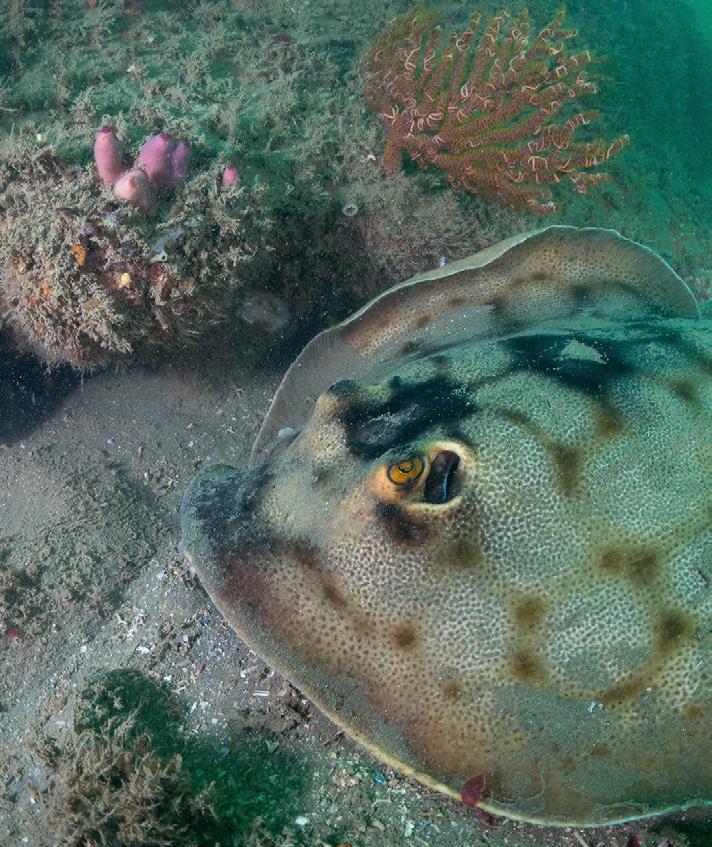
In October 2023, Oceana’s team led an expedition to the Tropical Pacific Sea, located off the coasts of Piura and Tumbes in northern Peru. Many of the expedition’s dives took place among the reefs of Punta Sal, an area characterized by impressive biodiversity including species found nowhere else on Earth. As with the July 2023 expedition in Peru, Oceana was accompanied by Latina Television to film footage for a documentary that aired nationally. This expedition also provided a rare opportunity to document the effects of El Niño, observing the influence of warmer waters on Peru’s typically cold marine ecosystems.
In September 2023, Oceana’s team in Europe launched an expedition to survey fishing activities in the Alboran Sea, the westernmost part of the Mediterranean, where many iconic migratory species pass through on their way to and from the Atlantic Ocean. These include fish of commercial interest, like tunas and swordfish, as well as threatened species like sea turtles, whales, and dolphins. Oceana explored sites impacted by destructive fishing activities, including bottom trawling, to document the damage done by this type of fishing gear. Using Oceana’s research catamaran, the Ranger, the team surveyed coastal and open-sea areas with a remotely operated vehicle that can travel up to 300 meters (nearly 1,000 feet) deep. During the expedition, Oceana scientists documented bottom trawling impacts inside Spanish marine protected areas where trawling is still allowed. The team also identified protected species in the area, such as calcareous algae and kelp.
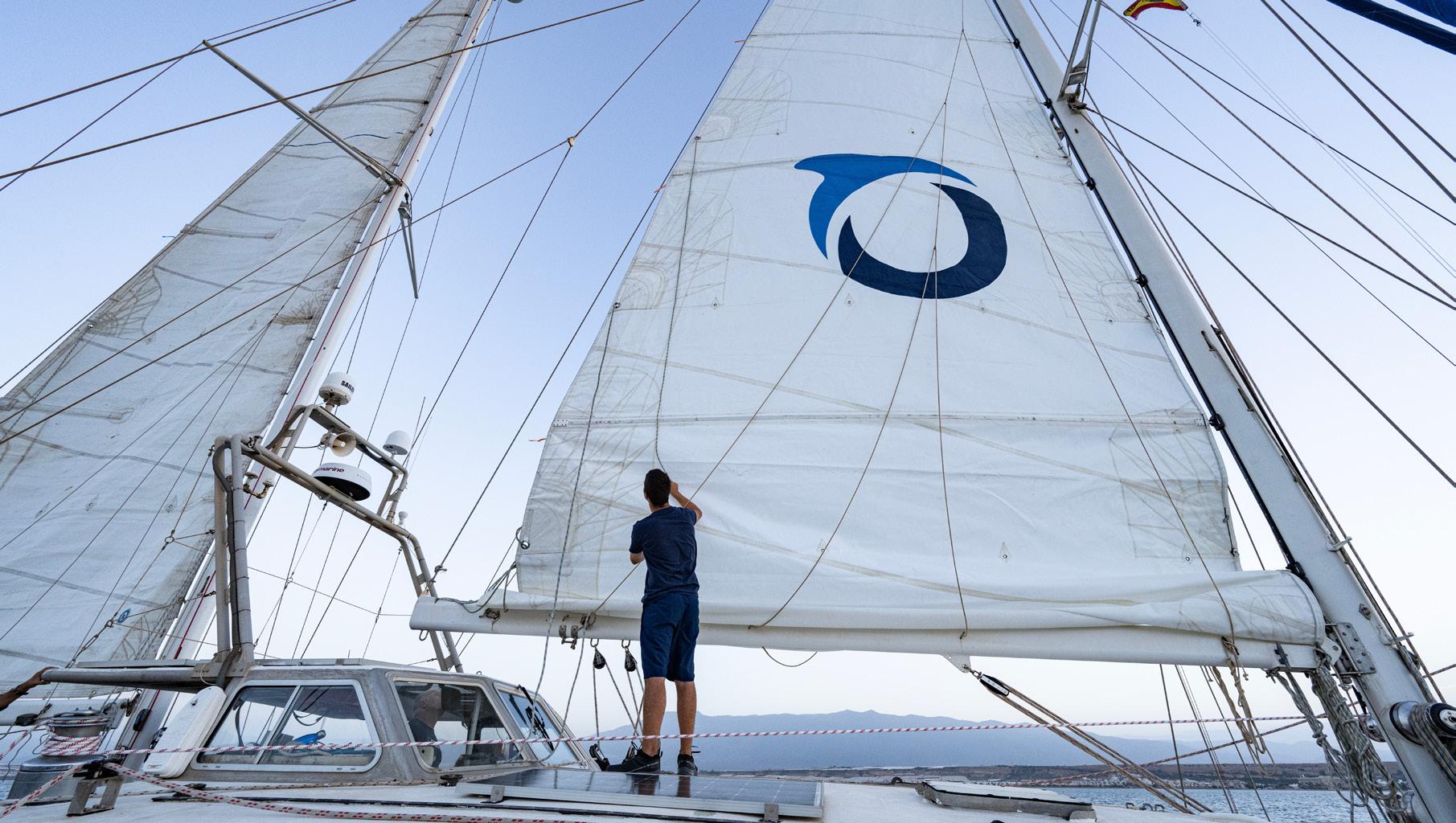
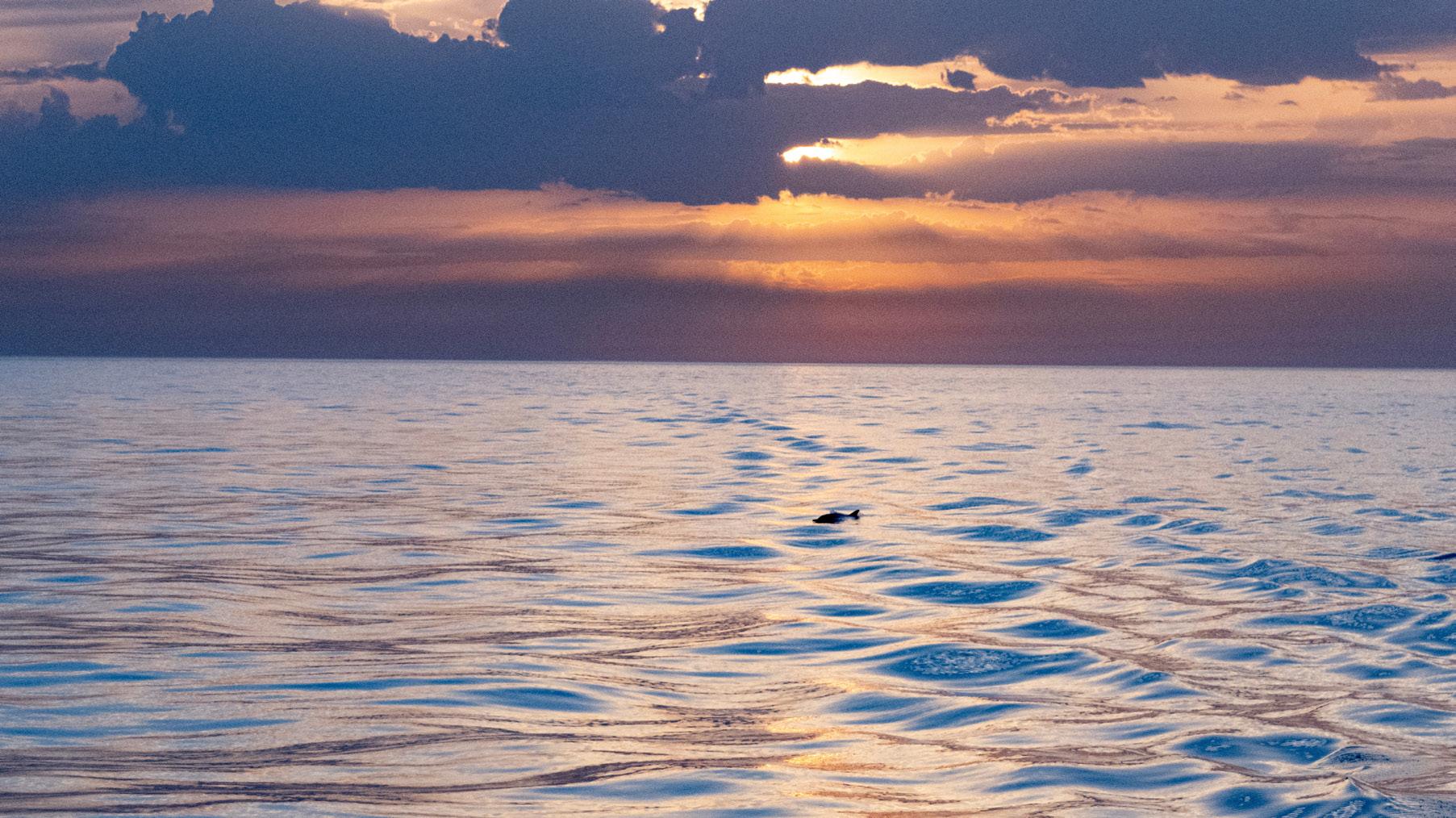
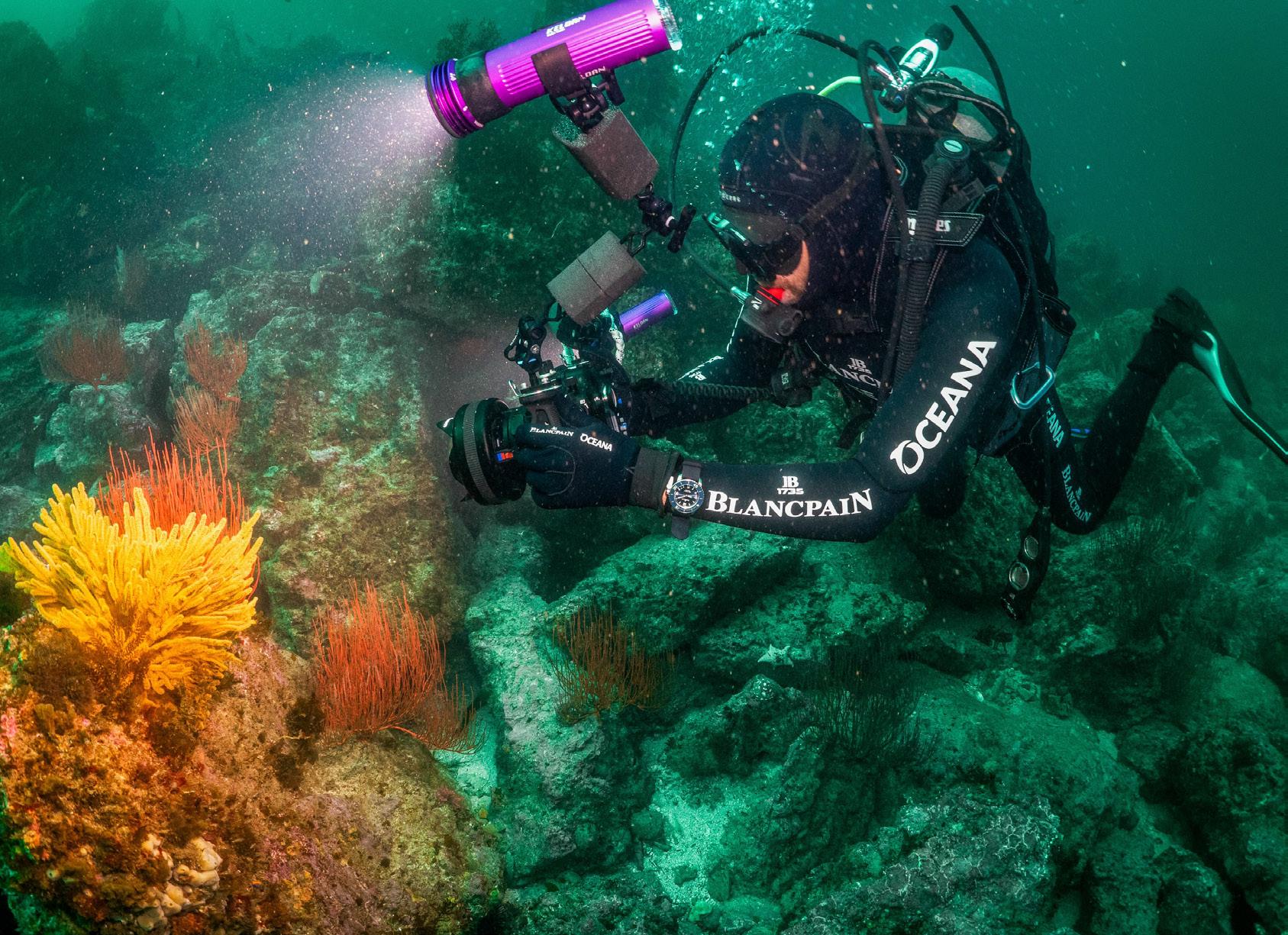
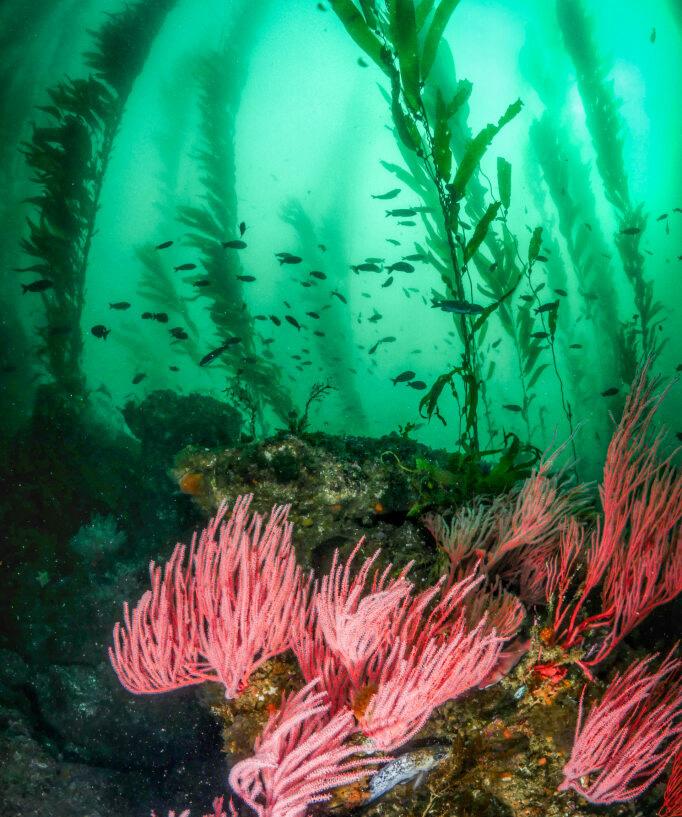
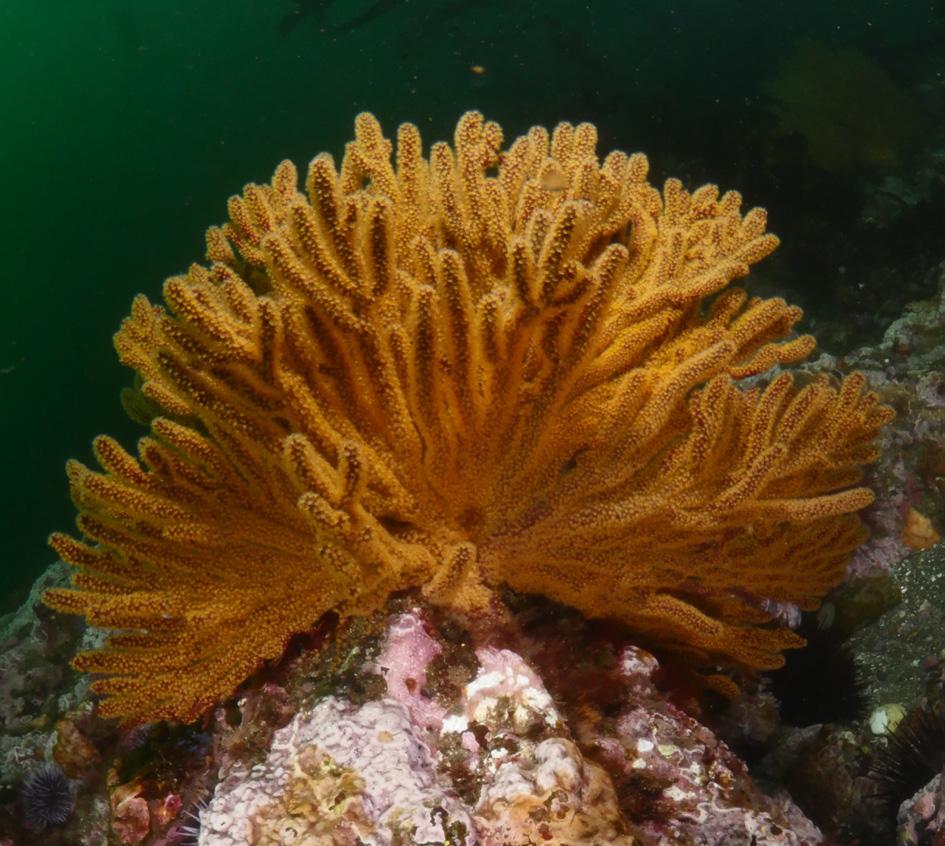
Oceana, in partnership with Swiss watchmaker Blancpain, completed the first of three ocean research expeditions around the Channel Islands off Southern California. From April 29 through May 3, 2024, the expedition team explored and documented the area’s diverse species and habitats — including thousands of fish, invertebrates, and habitatforming corals and kelp. They also collected water samples to be processed using environmental DNA sequencing that will identify virtually all ocean life inhabiting and traversing these waters. The images and research gathered on this expedition will support our campaign to reduce the entanglement of ocean animals — including whales, sea lions, sharks, and other fish — in set gillnet fishing gear. These long fishing nets, which target California halibut and white seabass, are known for high rates of discarded fish and entangled wildlife, called bycatch.
In June 2024, Oceana launched a scientific expedition to assess the health of coral reefs off the coast of Campeche, Mexico. Led in collaboration with the National Commission of Natural Protected Areas, National Autonomous University of Mexico, and the University of Arizona, the expedition revealed that despite signs of stress and disease in some coral colonies, the reefs are healthy overall. This provides hope for their recovery and underscores the importance of conservation efforts in the region. The Cayo Nuevo reef in particular featured flourishing elkhorn coral, some as large as a car, as well as young coral recruits, indicating the reef’s potential to overcome the impacts of climate change.
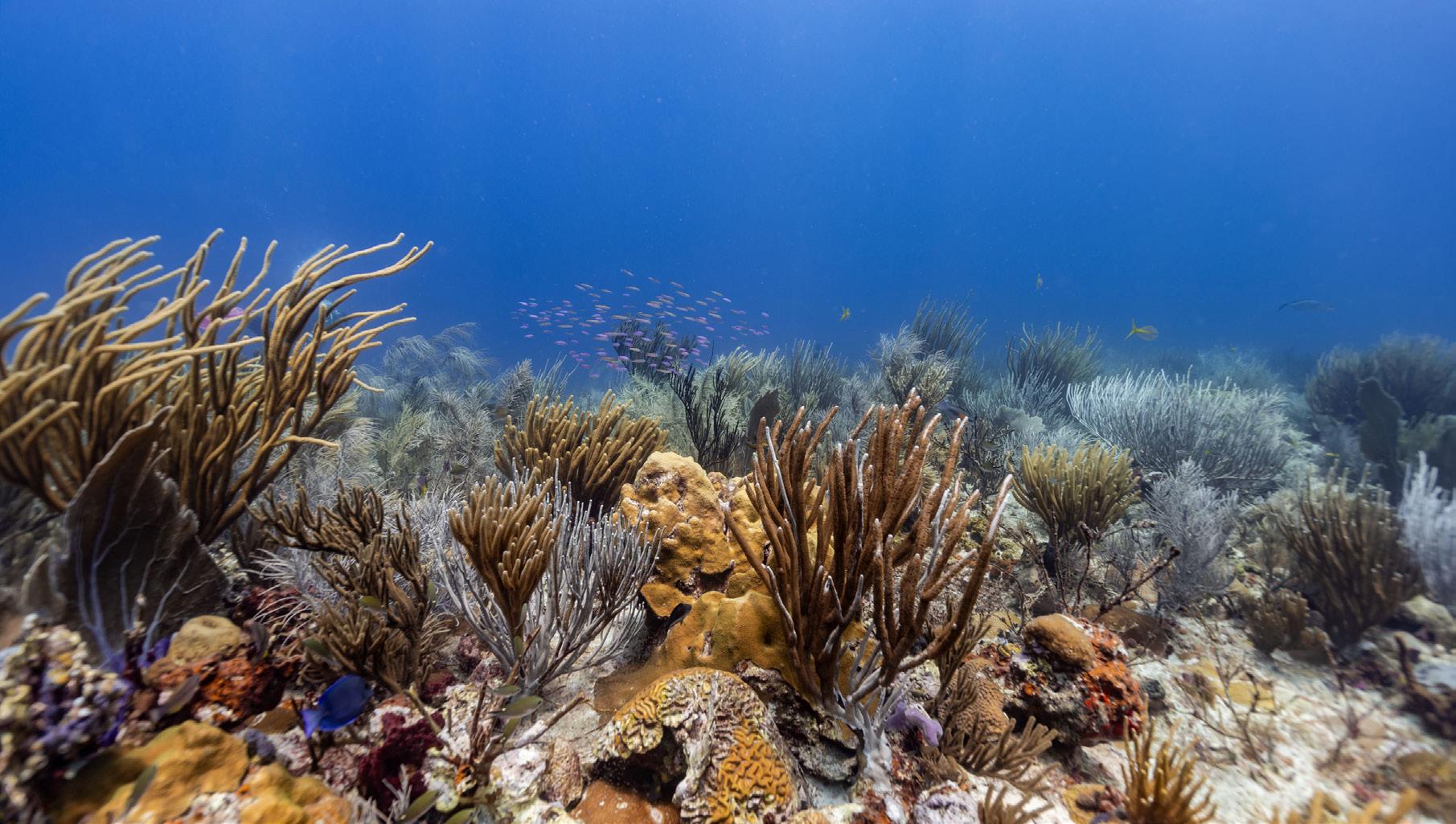
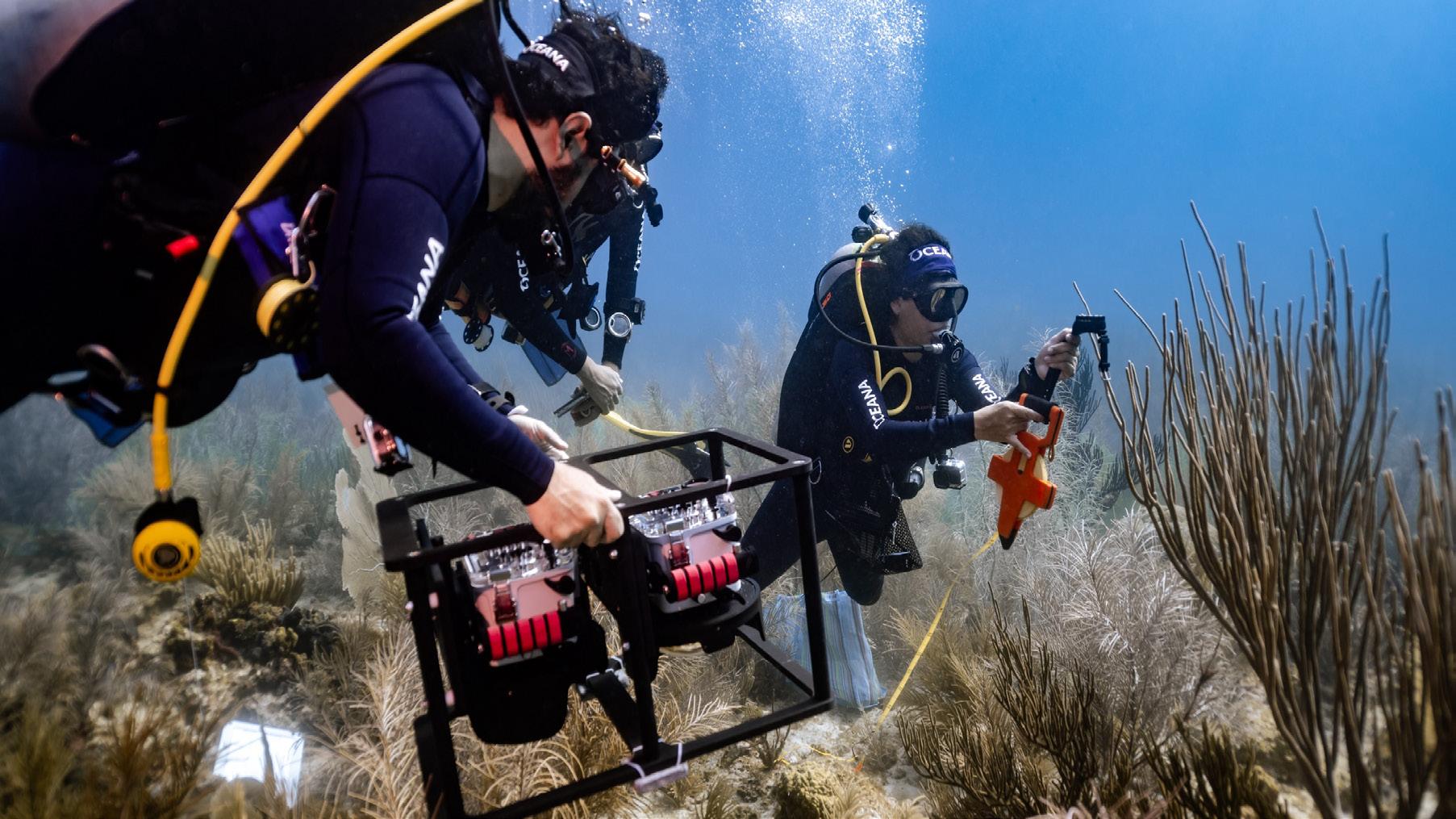
Researchers measure and record the reefs to produce 3D maps.

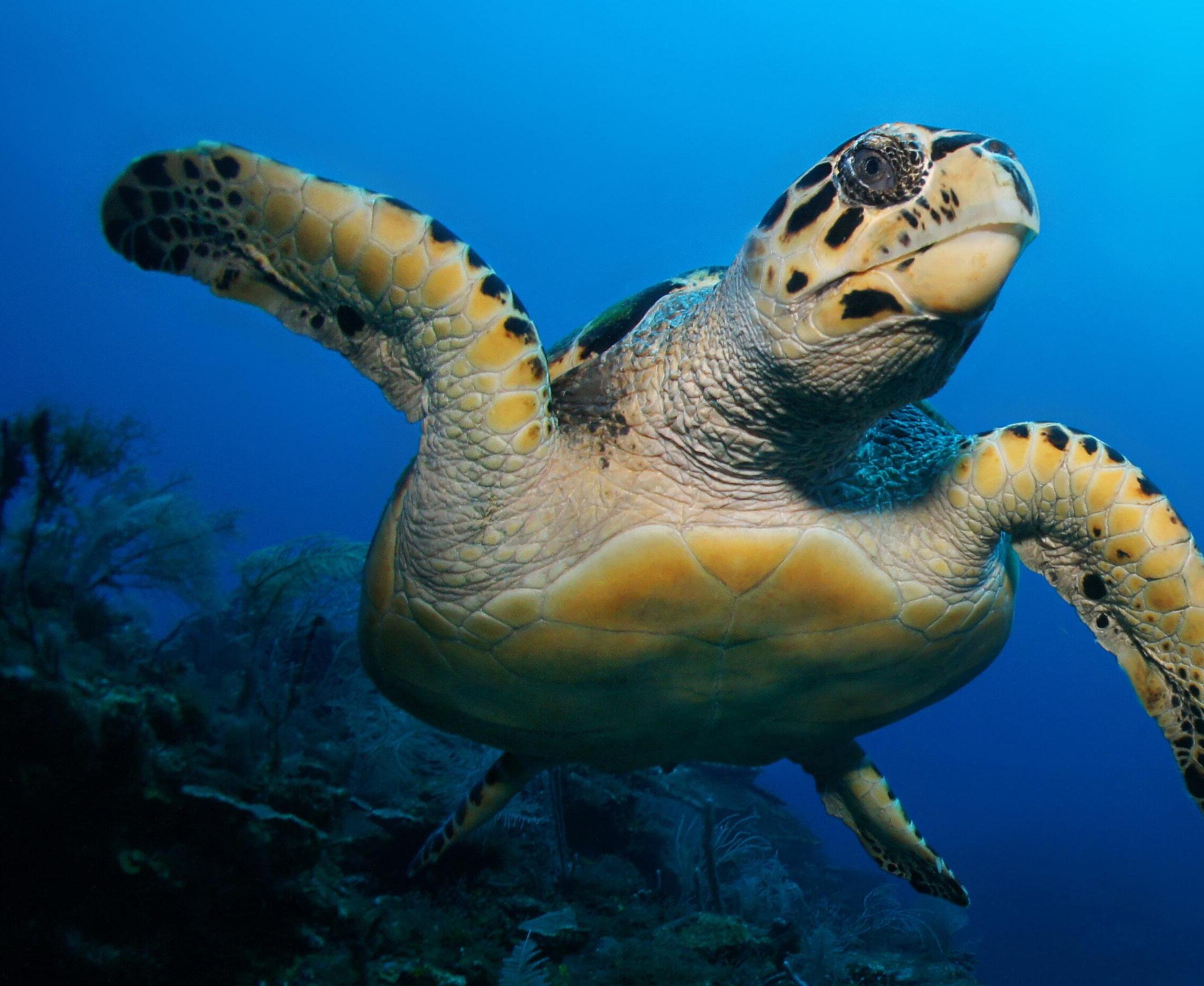
Science & Policy Reports

Law
Grassroots Organizing & Advocacy
Oceana Around The World
Strategic Communications
Oceana wins victories for the oceans through effective campaigns based in science and research. Reports published from July 2023 to June 2024 include:
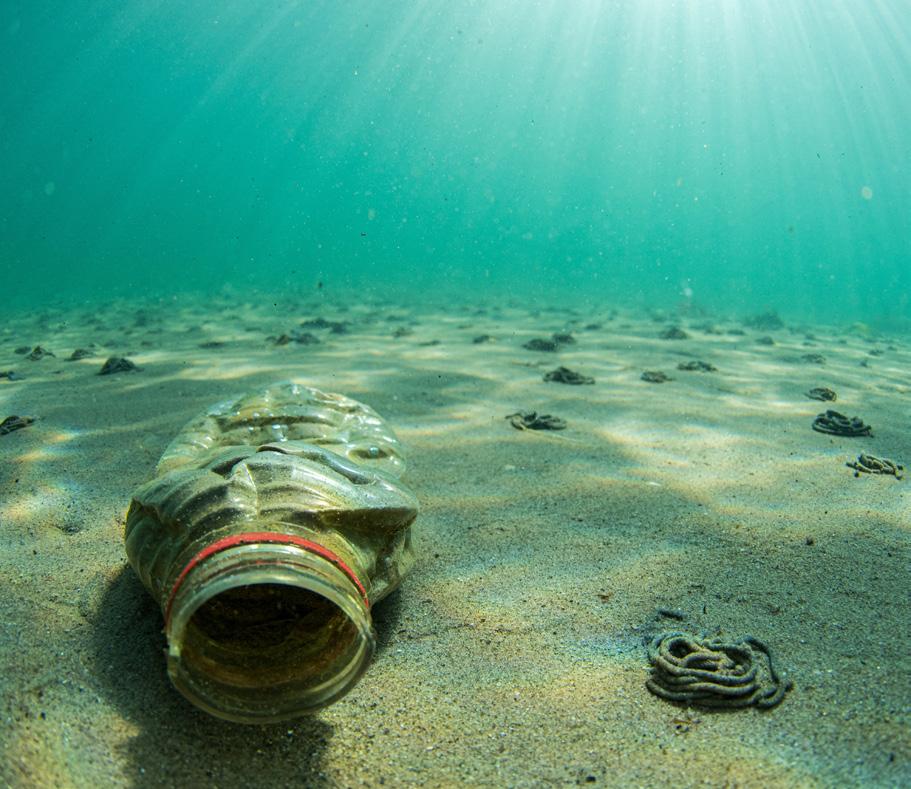
Global | How Increasing Reusable Beverage Packaging Can Help Save the Oceans
Reusable beverage packaging is a proven solution to the growing plastics crisis, according to a new report from Oceana. Refillable glass bottles can be sold, used, returned, washed, refilled, and sold again as many as 50 times. That means one refillable bottle can eliminate up to 49 singleuse plastic bottles. A 10% increase in reusable packaging by 2030 can eliminate over 1 trillion single-use plastic bottles and cups, preventing over 153 billion of them from entering oceans and waterways, Oceana’s analysis found. Oceana is campaigning for major beverage companies like Coca-Cola and Pepsi to increase their sale of refillable bottles.
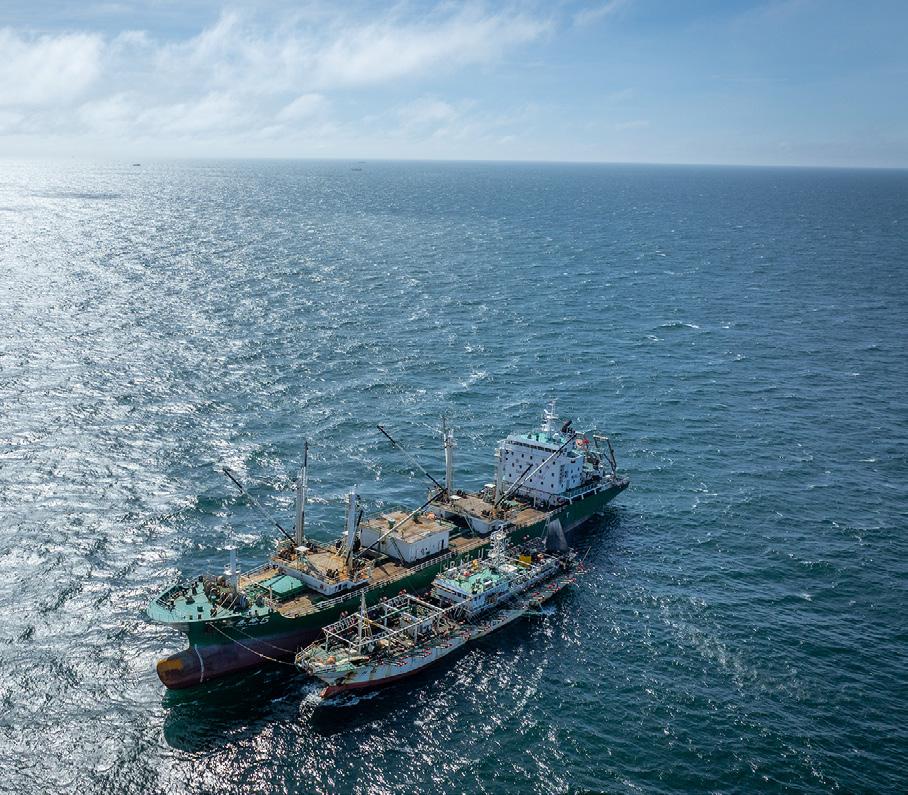
An Oceana analysis revealed that China’s massive distant-water fishing fleet flocks to the waters surrounding the Galápagos Islands, then frequently disappears from public view by appearing to disable public tracking devices. Oceana’s analysis found that vessels flagged to China stay at sea for long periods while engaging in events like transshipment, which can hide potential illicit activity.

The U.K.’s marine “protected” areas were subjected to over 33,000 hours of suspected bottom trawling in 2023, and over a quarter of it was done by just 10 fishing vessels, an analysis from Oceana in the U.K. revealed. This destructive form of fishing effectively bulldozes seafloor habitats and has an extremely high rate of bycatch — indiscriminately scooping up untargeted marine life. Despite this, it is permitted in almost all U.K. marine protected areas.
• United States | Scoping a California State Fishery Bycatch Monitoring Program
• United States | Underreporting of Marine Mammal Take: Self-Reporting in the California Set Gillnet Fishery Underscores the Need for Third-Party Fishery Observers
• Brazil | Fishery Audit Brazil 2022: The Contribution of Fisheries Science to Sustainable Fishing
• Brazil | Subsidies for the Implementation of Catch Limits for Red Snapper Fishing
• Canada | 2023 Fisheries Audit
• Europe | A Quantification of Bottom-Towed Fishing Activity in Marine Natura 2000 Sites
• Europe | Marine Agreement between Environmental Organizations for the Protection of 30% of the Spanish Mediterranean by 2030
• Chile | Traceability and Value Chains in the Artisanal Southern Hake Fishery, Aysén Region
• Europe | Identifying EU Nationals Who Profit from Foreign Illegal Fishing Activities: The Importance of Beneficial Ownership Transparency
• Mexico | “A Pig in a Poke”: Fraud in Frozen Seafood
• Mexico | “A Pig in a Poke” in Baja California Sur: Deception at the Tables, Danger in the Seas
• Peru | Analysis of the Non-Detrimental Finding for Porbeagle Shark Issued by the Peruvian Ministry of the Environment
• Transparent Oceans Initiative | Cutting the Lines to IUU Fishing
• United States | Never-Ending Voyages: Vessels Spending Years at Sea Increase Transparency
• Chile | Characterization and Identification of Sustainable Management Practices in the Brown Algae Fishery in the Northern Macrozone of Chile
• Europe | Rebuilding Western Mediterranean Fisheries
• Europe | Small but Mighty: Managing Northeast Atlantic Forage Fish to Sustain Marine Life
• Mexico | Illegal Fishing in Mexico: Solutions from Fisheries Policies
• Mexico | Legislate to Protect the Seas and Their People
• United Kingdom | Taking Stock: The State of UK Fish Populations 2023
• Peru | Effective Conservation for Peru’s Marine Ecosystems: The Case of the Nazca Ridge National Reserve
• United Kingdom | A Manifesto for UK Seas: Protecting the Future of Our Ocean Nation
• United Kingdom | From Coast to City, the UK is United Against Destructive Fishing in Marine Sanctuaries
• Canada | Breaking the Plastic Cycle: A Policy Roadmap to Eliminate One-Third of Canada’s Plastic Packaging Waste
• Europe | An Ocean of Change 2024
• Global | Amazon’s United States of Plastic
• United States | Go Slow, Whales Below: Vessel Strikes Continue to Threaten North Atlantic Right Whales Protect Species
• Mexico | E-commerce, Unnecessary Plastic, and Pollution. Legislate to Solve
Oceana leverages the law to ensure protections are enforced and policies are effectively implemented. Our legal efforts win victories by ensuring governments finalize new rules and protections, follow science-based management principles, and enforce key provisions of laws. Our efforts in court lead to real, in-the-water change.
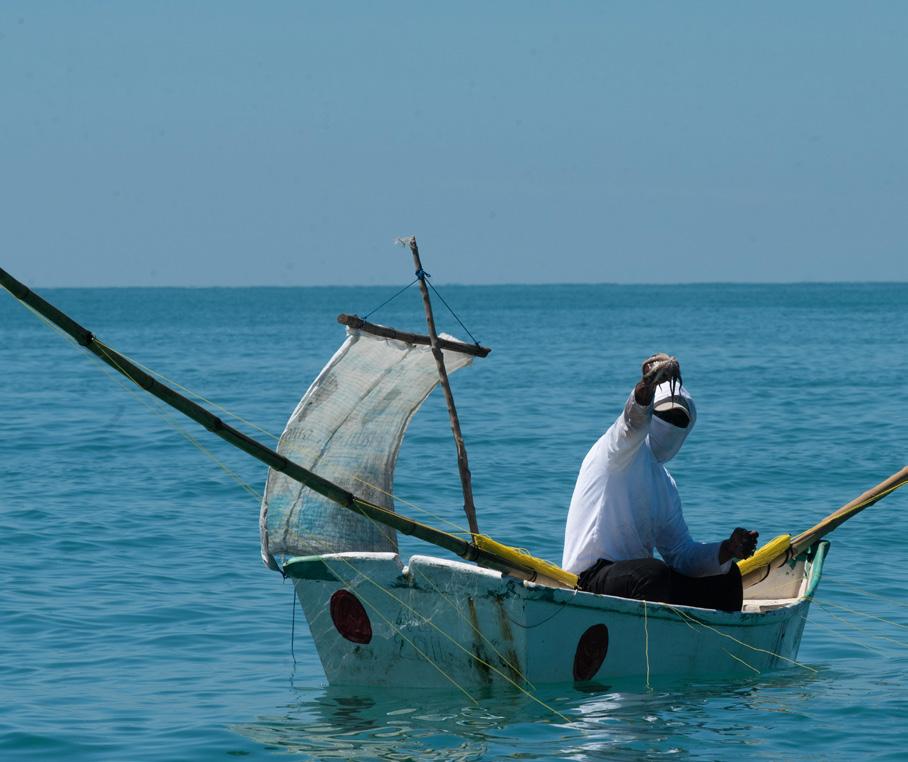
Oceana’s Rebuilding Fisheries Case Reaches Mexico’s Supreme Court of Justice
In Mexico, 34% of fisheries are in decline, with no sustainable management plans in place to help them recover. This affects local fishers who rely on these fisheries for food and income. Oceana filed a case arguing that the lack of sustainable fisheries management plans has led to human rights violations — unhealthy environments and a lack of decent work for fishers — and that a law to rebuild fisheries must be put in place. This case has reached Mexico’s Supreme Court of Justice. In 2024, the Supreme Court will resolve the strategic litigation presented by Oceana, which highlights the lack of legislation to allow fisheries to recover.
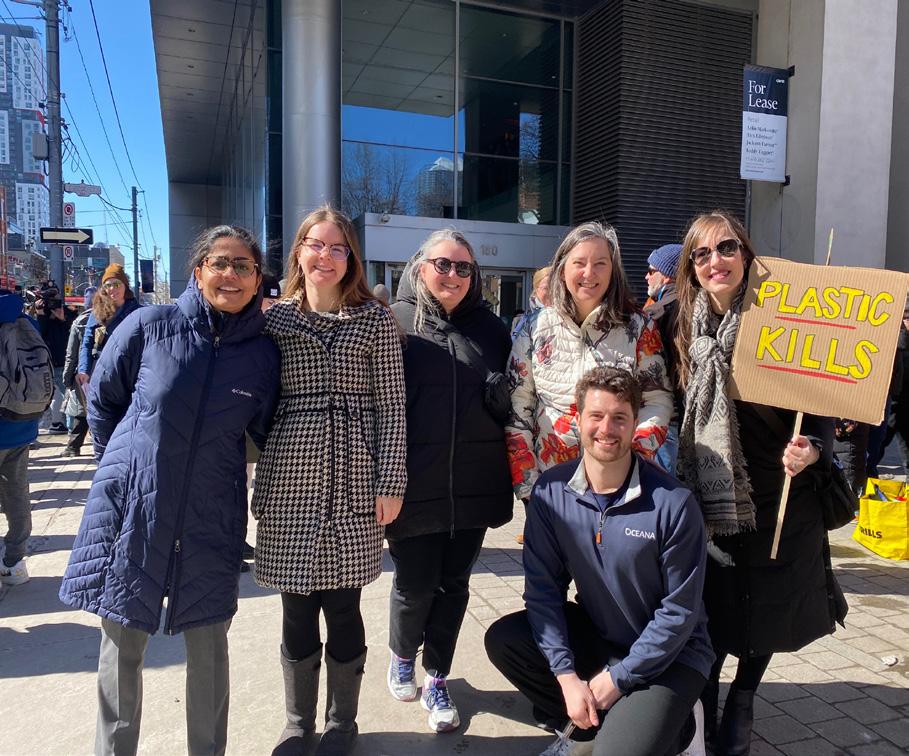
Oceana Appeals Federal Court Decision; Fights to Protect Federal Ban on Single-Use Plastic
Oceana, represented by the environmental law firm EcoJustice, and our allies went to court in early 2023 to support the Canadian federal government’s decision to list and regulate plastics under the Canadian Environmental Protection Act (CEPA), which the plastic industry was challenging. Unfortunately, the Federal Court overturned the government’s designation of “plastic manufactured items” as toxic substances under CEPA. As of 2024, Oceana is now working with the federal government to appeal this decision alongside a coalition of environmental and human health advocacy organizations.
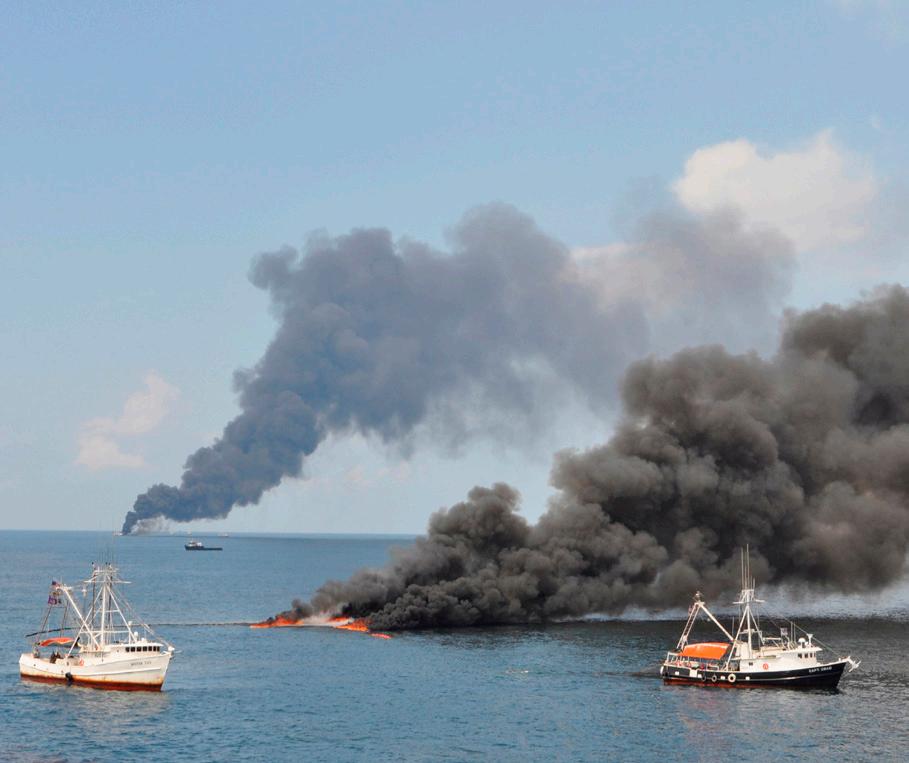
Oceana and Allies Sue US Federal Government Over Plan to Expand Offshore Oil and Gas Leasing
Oceana joined Gulf of Mexico-based organizations and environmental groups to challenge the United States federal government’s plan to hold three oil and gas lease sales in the Gulf of Mexico over the next five years, arguing that more leasing will continue to endanger the health and safety of Gulf communities and threaten vulnerable ecosystems and species. Oceana also joined allies to intervene in support of the federal government in a case brought by industry seeking to hold even more lease sales.
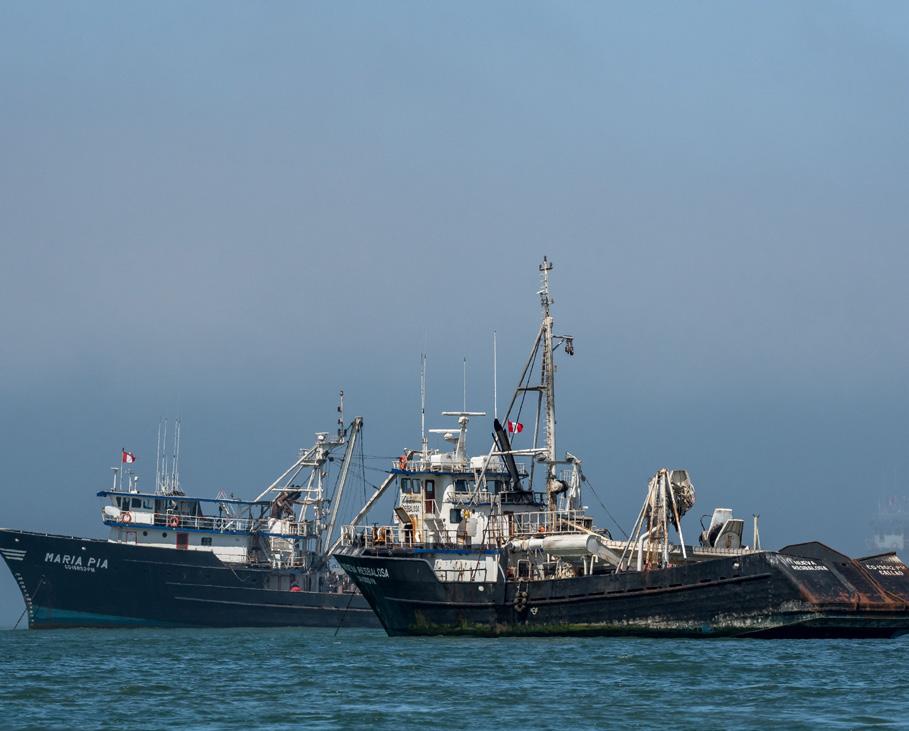
Oceana Files Lawsuit to Enforce Prohibition on Industrial Fishing within Marine Protected Areas
In December 2023, Oceana filed a lawsuit to repeal provisions that allow industrial fishing within the Nazca Ridge National Reserve, a marine protected area established by Peru in 2021. These provisions have allowed commercial fishers to increase their activity in an area home to more than 1,000 species, many of which are found nowhere else on Earth. Oceana will demonstrate that Peru’s Natural Protected Areas Law, which explicitly prohibits industrial fishing within natural protected areas, and an international protocol for marine conservation in the Southeastern Pacific, which has constitutional status in Peru, prevail over the challenged provision. The co-defendants of the case are the President of Peru, the Ministry of Environment of Peru, and the Ministry of Production of Peru. Oceana is now waiting for the First Constitutional Chamber of the Superior Court of Lima to admit the lawsuit and set a date for the hearing.
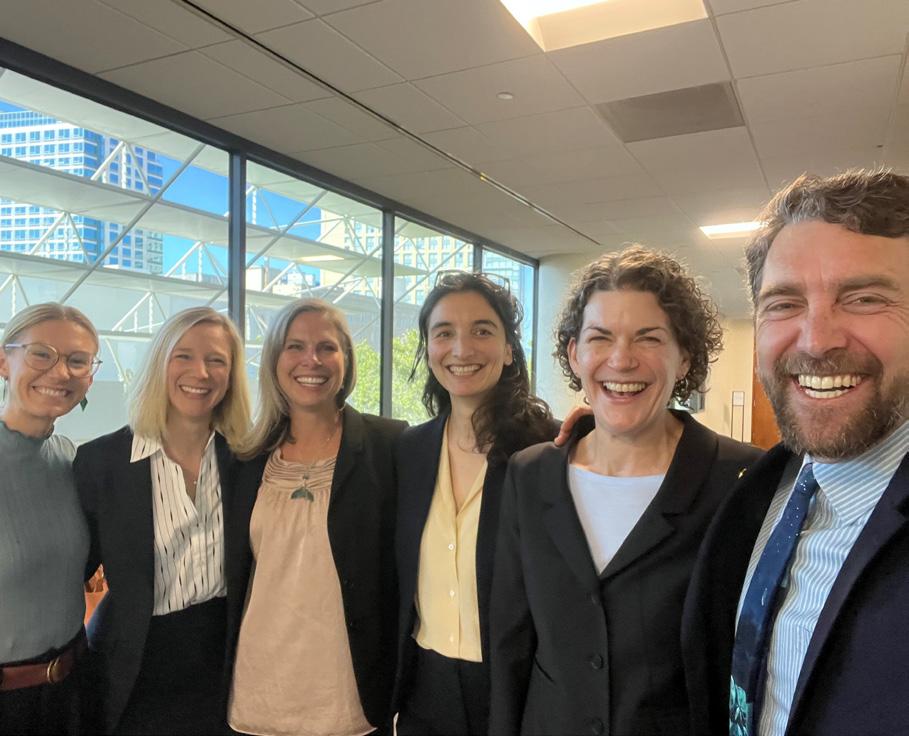
Oceana Wins Lawsuit to Rebuild US Pacific Sardine Fishery
In July 2023, the Northern District of California in San Jose heard Oceana’s case challenging the Fisheries Service’s rebuilding plan for Pacific sardines. Pacific sardines — small schooling fish that are essential food for species like humpback whales, sea lions, brown pelicans, and salmon — collapsed by more than 98% between 2006 and 2020. Oceana’s lawsuit drew upon the agency’s own science, which showed that the plan would not rebuild the sardine population in the required timeline. Oceana argued that adopting this inadequate rebuilding plan violated the law. This lawsuit was successful: In April 2024, the United States federal district court’s ruling found that the Fisheries Service used a faulty approach that would not prevent overfishing, failed to set catch limits to rebuild the sardine population, and failed to take a hard look at the environmental impacts of the plan. The Fisheries Service must now develop a new science-based plan to rebuild the Pacific sardine population.
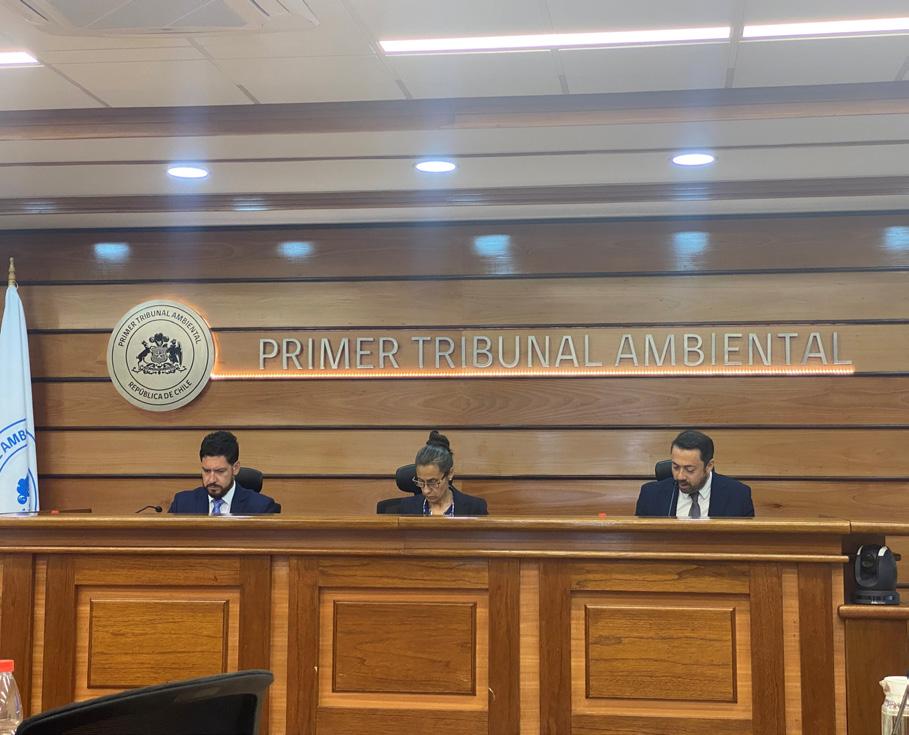
Oceana Asks Environmental Court to Confirm Rejection of Dominga Mining Project
After Oceana successfully campaigned for the rejection of the Dominga project — a mining project that threatened one of Chile’s most iconic ecosystems, the Humbolt Archipelago — the company behind the project, Andes Iron, appealed the decision. Oceana and our allies intervened in the hearing held in December 2023, when the Environmental Court heard allegations following the company’s appeal. This hearing occurred six months after a final written report was released by Chile’s Environmental Assessment Service, which showed that the Dominga project had omitted existing scientific information, did not provide a complete baseline in its documentation, underestimated the extent of the area affected by the mining project, and did not analyze how the project would impact specific species.
Nearly nine million supporters and advocates — ranging from local on-the-ground fishers to activists on social media — help Oceana and our allies win victories all over the world.
In July 2023, Oceana staff and volunteers collaborated with residents of Mexico City to create a whale sculpture containing messages to members of Congress. These messages urged Congress to pass legislation prohibiting unnecessary plastic pollution generated by e-commerce. The activity took place on the Barco Utopia, a cultural and recreational complex in Mexico City. In December 2023, Oceana delivered a petition with 16,000 signatures to the Congress of Mexico City, demanding the end of disposable and unnecessary plastics from e-commerce.

Oceana Highlights “Horror Show” of UK Fisheries Mismanagement
Oceana organized a stunt outside the Department for Environment, Food, and Rural Affairs in London to highlight the fact that U.K. seas are “ghosts” of their former selves on Halloween. Timed to coincide with catch limit negotiations for 2024, the protest also stressed that this alarming situation is being driven by the U.K. government setting catch limits too high exceeding scientific advice.

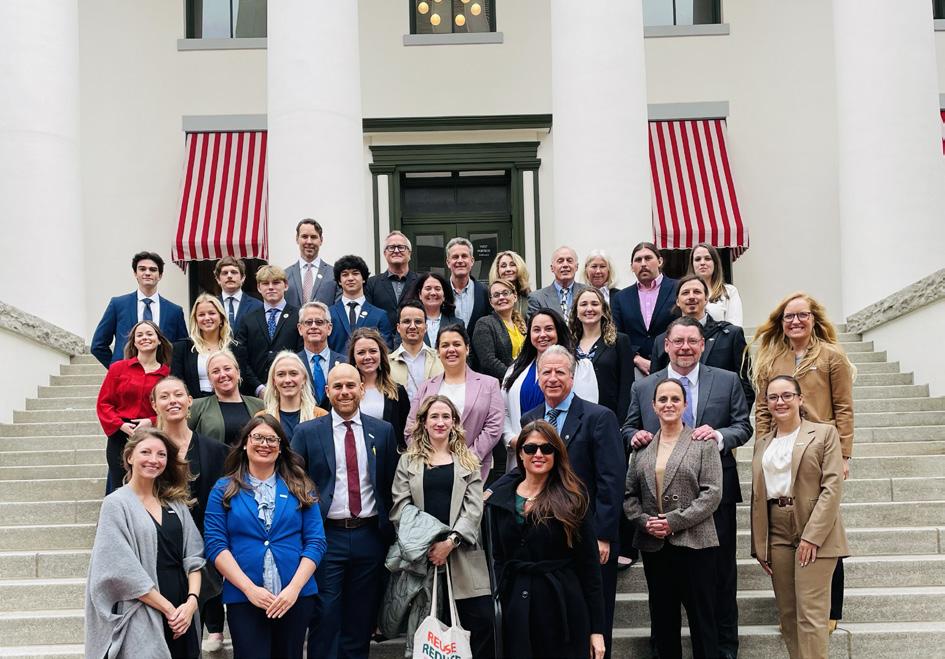
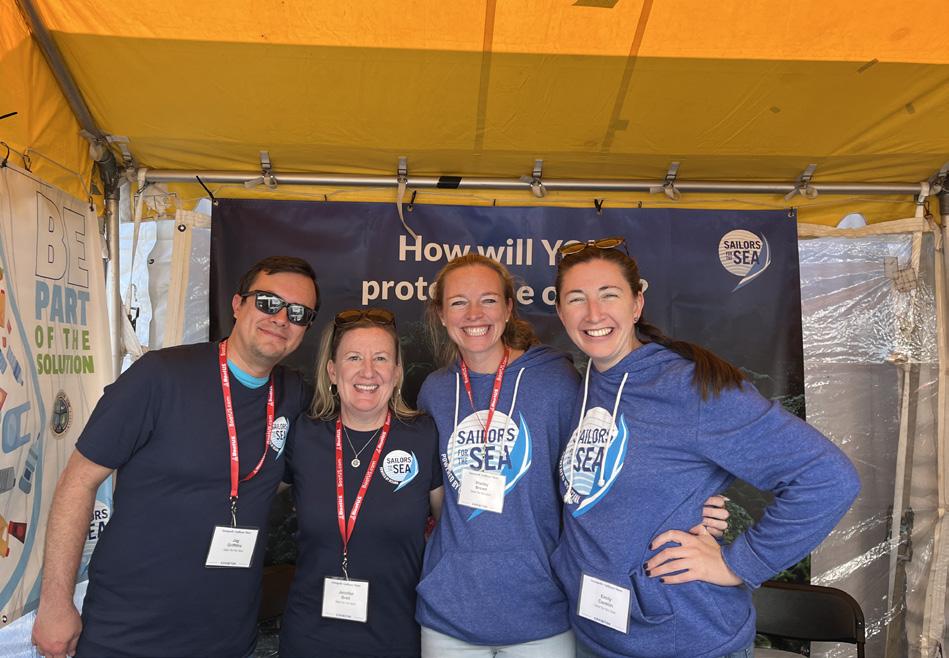
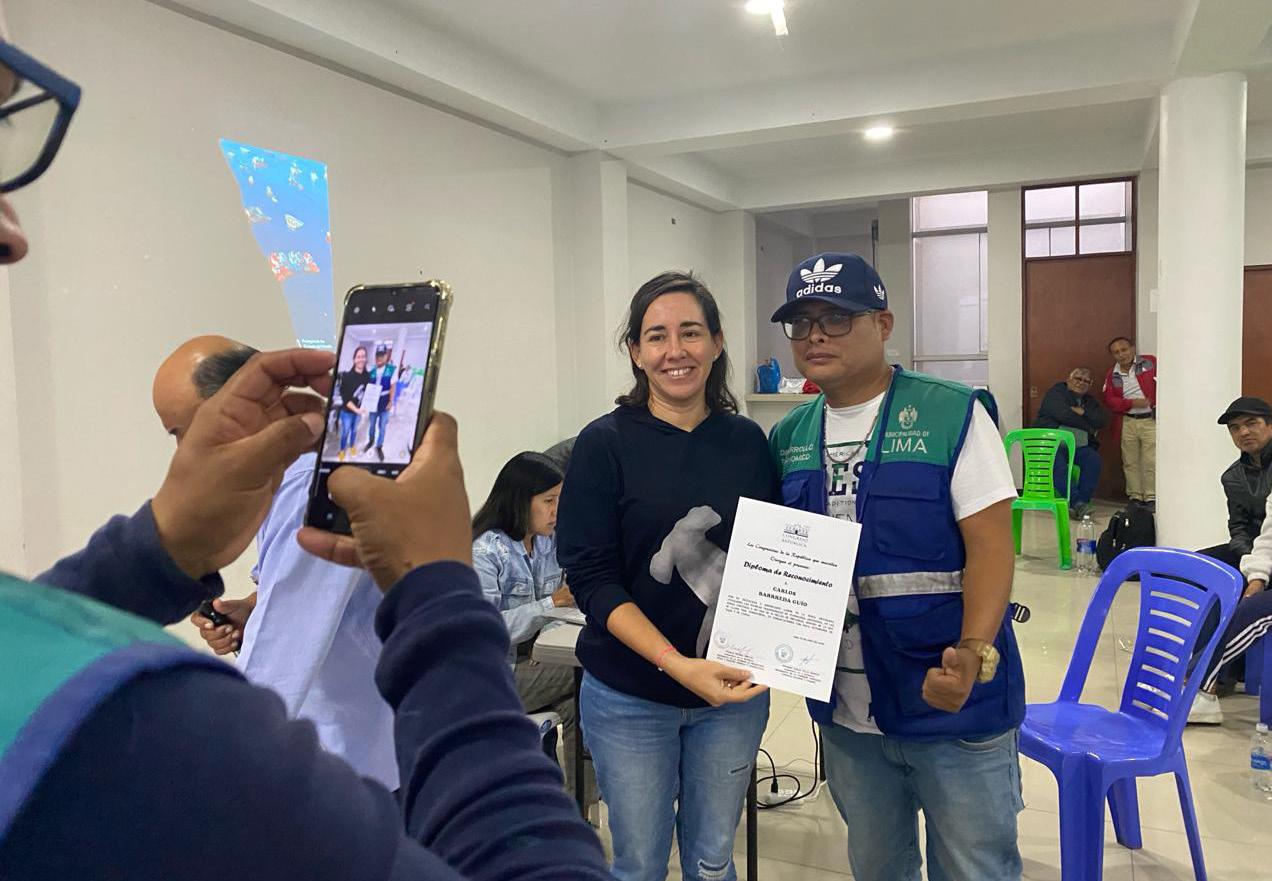
Oceana Organizes Groups to Lobby for Balloon Release Ban in US State of Florida
In February 2024, Oceana’s Senior U.S. Field Representative Catherine Uden and U.S. Field Campaign Manager Hunter Miller participated in the Healthy Beaches Lobby Day in Tallahassee, Florida. During the event, Uden and Miller trained and led regional lobby groups to meet with staff and legislators on Oceana’s priority legislation at the state level in Florida. The legislation included a ban on the intentional release of balloons, which poses a real and dangerous risk to marine life. This lobby day was critical to the successful passage of the Oceana-supported balloon release ban in Florida, which was signed into law in June 2024.
Sailors for the Sea Powered by Oceana worked with the Annapolis Sailboat Show, an annual event that attracts more than 50,000 sailors and boaters to the city of Annapolis in the U.S. state of Maryland, to improve the environmental sustainability of the event in October 2023. Through its Clean Regattas program, Sailors for the Sea collaborated with event organizers to help them achieve several Clean Regattas best practices, including adding water refill stations to help eliminate singleuse plastic bottles. Sailors for the Sea also hosted a booth at the four-day show, where the team engaged with visitors about Oceana’s campaigns, Sailors for the Sea, and marine conservation topics. In 2023, Sailors for the Sea helped facilitate a total of 464 Clean Regattas.
Oceana Strengthens Relationships with Fishers Guilds in Peru
Following the landmark approval of Law 31749 in Peru, which protects the first five nautical miles of the Peruvian sea and reserves them for artisanal fishing, Oceana Policy Director Carmen Heck, together with staff from the Instituto del Mar del Peru (IMARPE) and the Municipality of Lima, met with artisanal fisher associations. They participated in roundtable discussions with artisanal fishers and explained the scope of this legislative reform. At the event, the artisanal fishers guild awarded recognitions to attendees including Heck.
Over 200 Wavemakers from across Belize participated in Oceana’s Annual General Meeting held in Belize City in October 2023. During the meeting, Wavemakers Marvin Monterroso, Naomi Sylvania, Jiselle Awe, Seferina Miss, and Rinelva Ico were recognized for their support of Oceana’s campaigns and actions to protect the future of Belize’s ocean. Oceana also proudly recognized the Sarteneja Alliance for Conservation and Development with its second annual Partner of the Year Award, and Limairi Pott as the 2023 National Wavemaker of the Year. Guest speaker Glenfield Dennison emphasized the critical importance of youth participation in Belize’s ongoing constitutional reform process, and encouraged participants to actively engage in the dialogues that will decide how the constitution shapes the future of Belize.
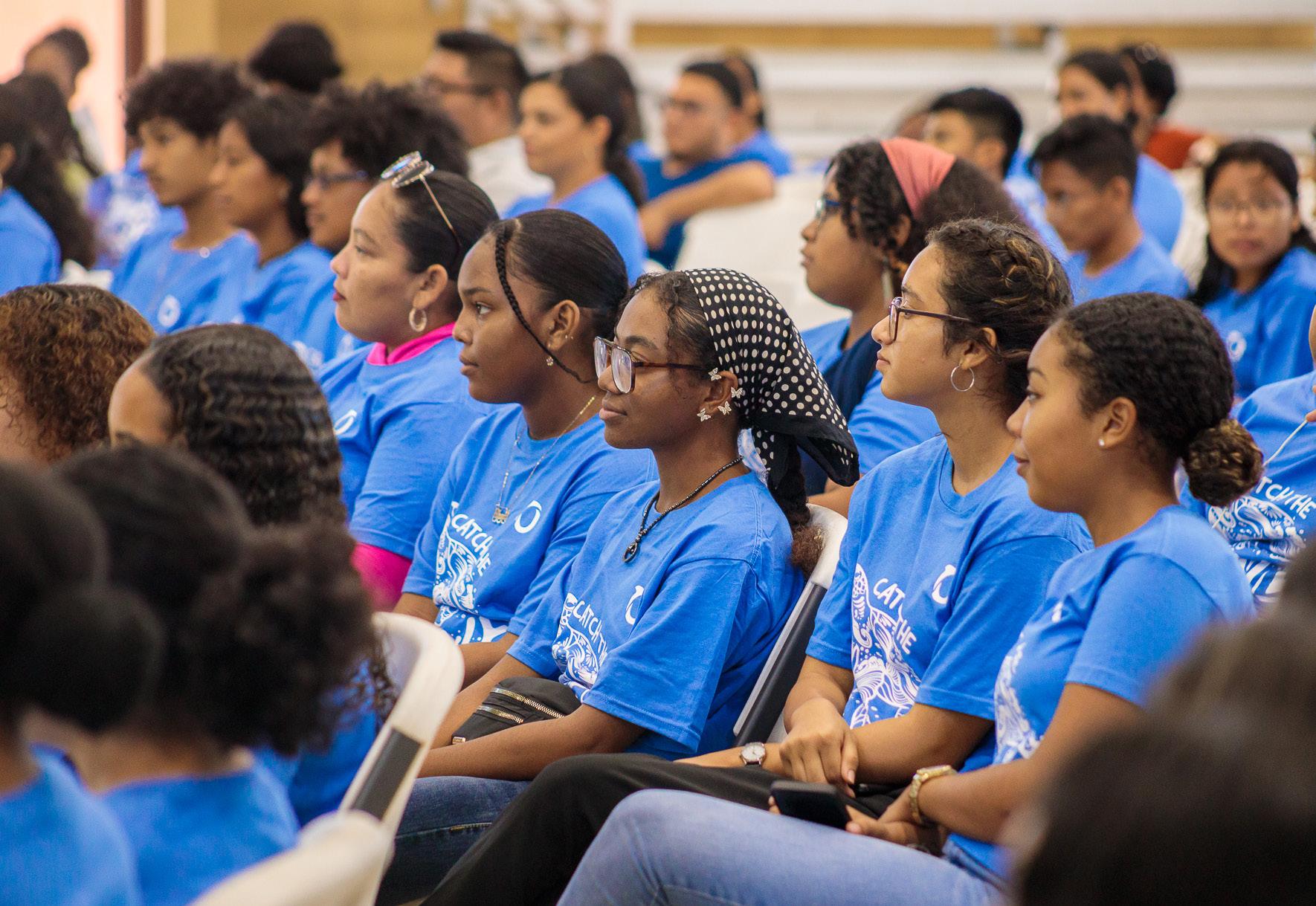
To commemorate National Fisherfolk Day in the Philippines, Oceana partnered with PANGISDA Pilipinas in May 2024 to organize a parade calling for the full implementation of the country’s Fisheries Code and other reforms for sustainable fisheries. Inspired by a traditional festivity in the Philippines known as a “fluvial parade,” the event galvanized communities to march in a boat-like formation and call for the halt of destructive fishing and other activities that damage fishing grounds. This message was brought all the way to the office of the President in Malacañang. The parade’s call to action elevated awareness about the dangers threatening the livelihoods of artisanal fishers, urging powers at the national level to take action and put a stop to destructive fishing activities.

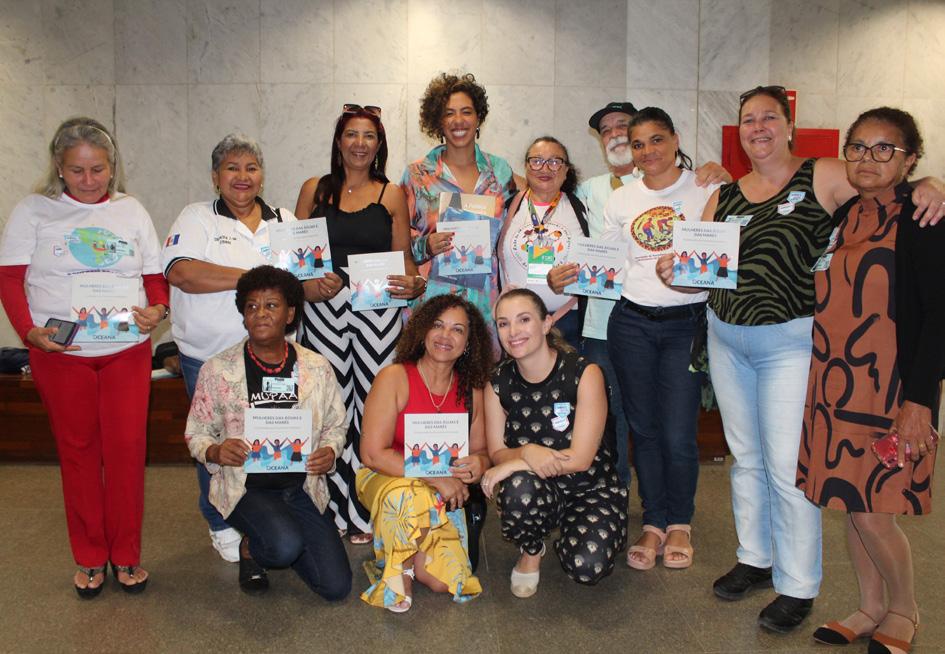
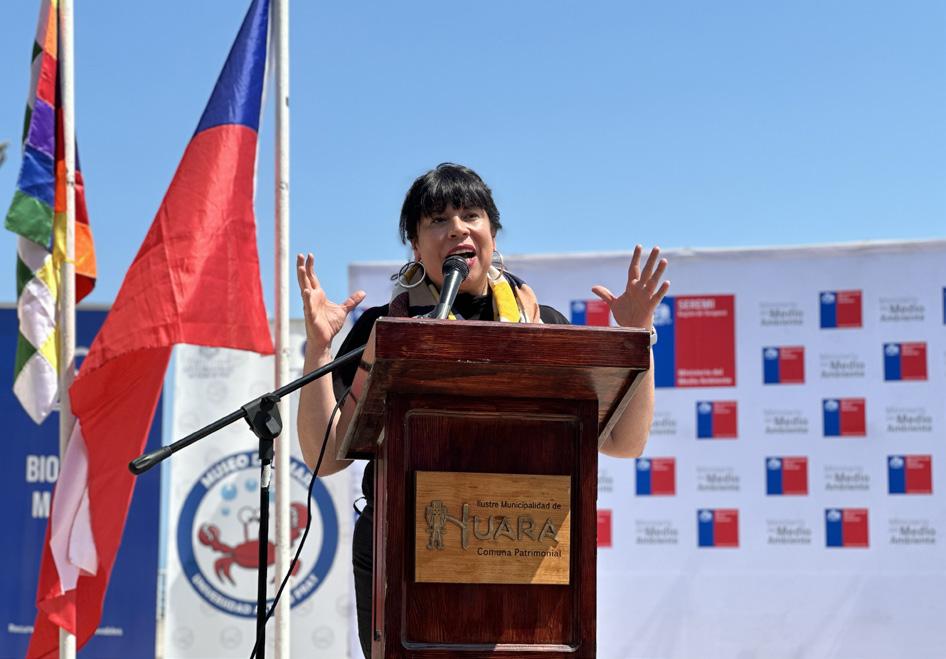
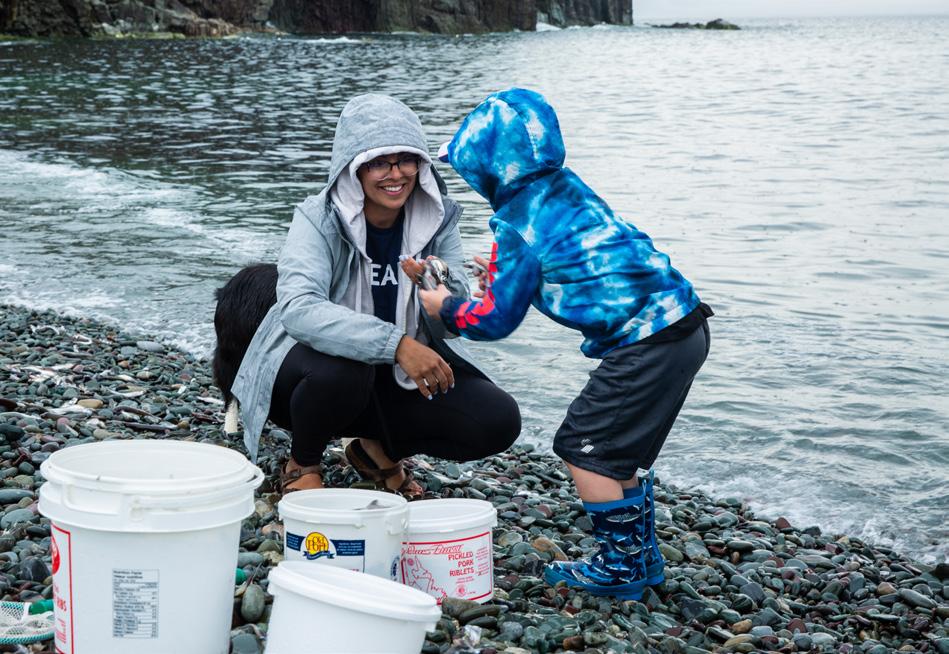
Oceana Launches Booklet Featuring Priorities of Artisanal Fisherwomen
In celebration of International Women’s Day, Oceana launched the booklet “Women of the Waters and Tides: 20 Demands of Artisanal Fisherwomen” in Brazil in March 2024. The project was the result of 11 meetings held among artisanal fishers from across Brazil to discuss and propose a new national fishing policy. The dialogues strengthened relationships among fishers and led a group of fisherwomen to collectively create 20 priority demands for Brazil’s government. These demands include increasing visibility and respect for the fisherwoman identity, ending institutional violence, establishing specialized care programs, and recognizing traditional culture and knowledge.
Oceana Helps Inaugurate New Marine Protected Area in Chile
Oceana collaborated with the community of Pisagua and local authorities to inaugurate the new “Mar de Pisagua” (Pisagua Sea) marine protected area (MPA). A reception commemorated the creation of this important MPA in 2023 with an educational plaque — the first of five plaques that will describe the species and habitats protected by the MPA. Pisagua Sea, which measures 735 square kilometers (284 square miles), and boasts abundant macroalgae forests, and smaller organisms like krill and crustaceans, attracting a vast variety of fish, mammals, and birds. The new MPA, established following Oceana’s campaigning, is the first in the country to protect not only marine habitat and species, but also the livelihoods of artisanal fishers, who rely on this richly biodiverse area to support their community and local economy.
In July 2023, Oceana spent two weeks in St. John’s and on the Avalon Peninsula in the Canadian province of Newfoundland and Labrador during the capelin roll, where this small forage fish comes to shore to spawn. A four-person team of scientists, communicators, and videographers spoke with community members, documented capelin habitat, and met with government officials. This effort helped highlight the value of healthy fish populations for communities and the ocean by featuring local perspectives. The resulting videos called attention to the importance of rebuilding wild fisheries and putting an end to the commercial overfishing of capelin.
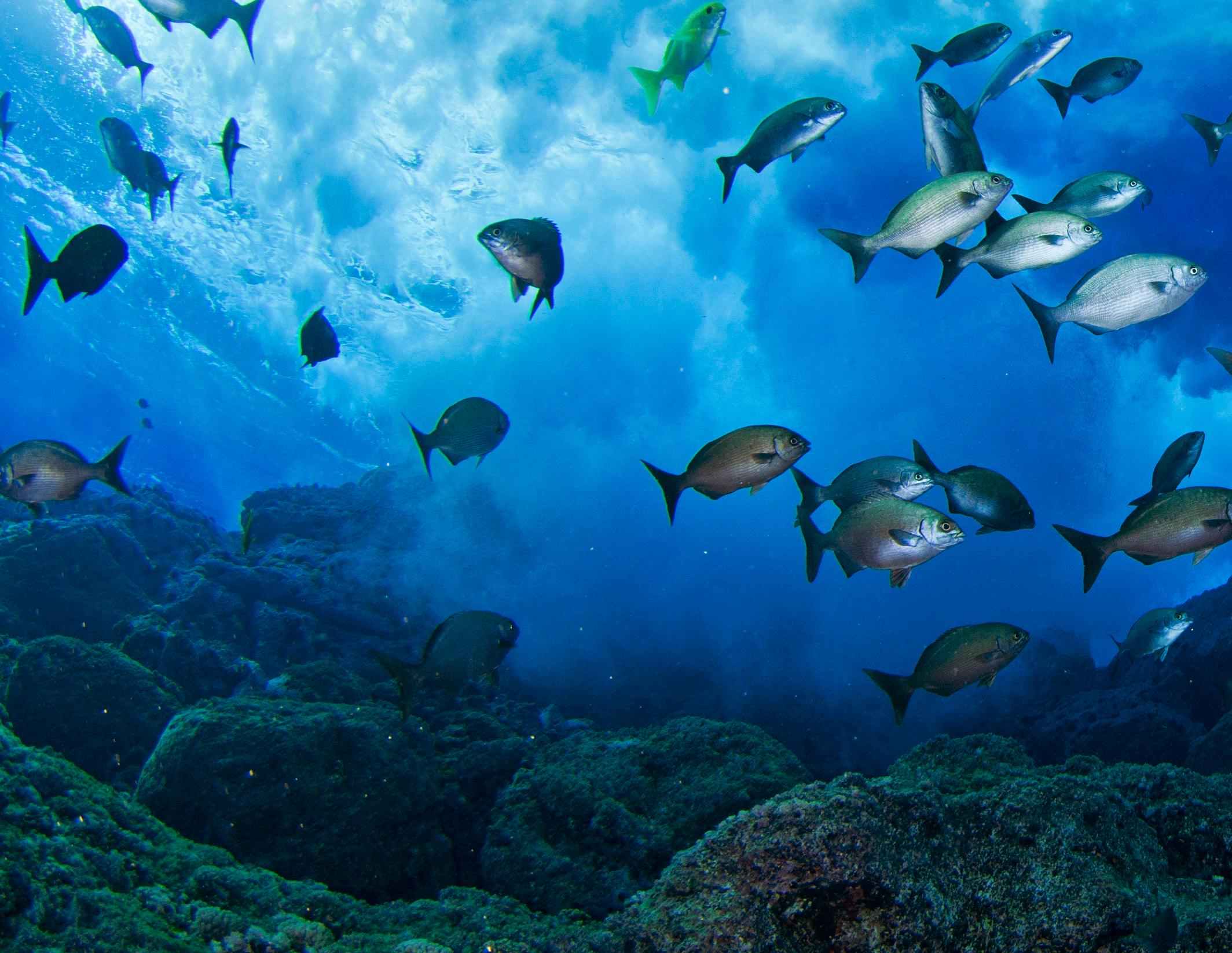
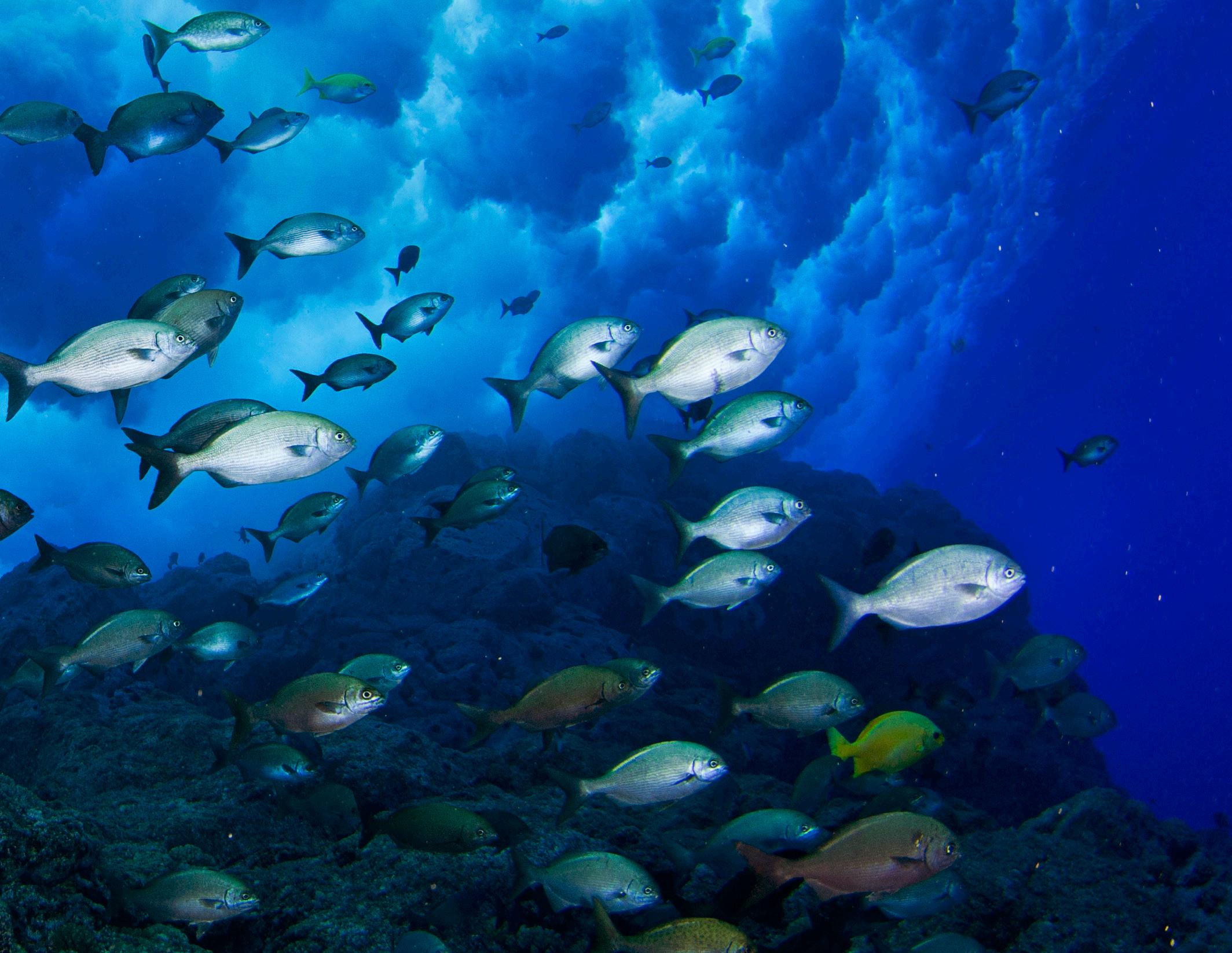
Oceana sponsors and participates in important events with our supporters around the world. These events range from government hearings to international symposiums on the oceans to media appearances and more.
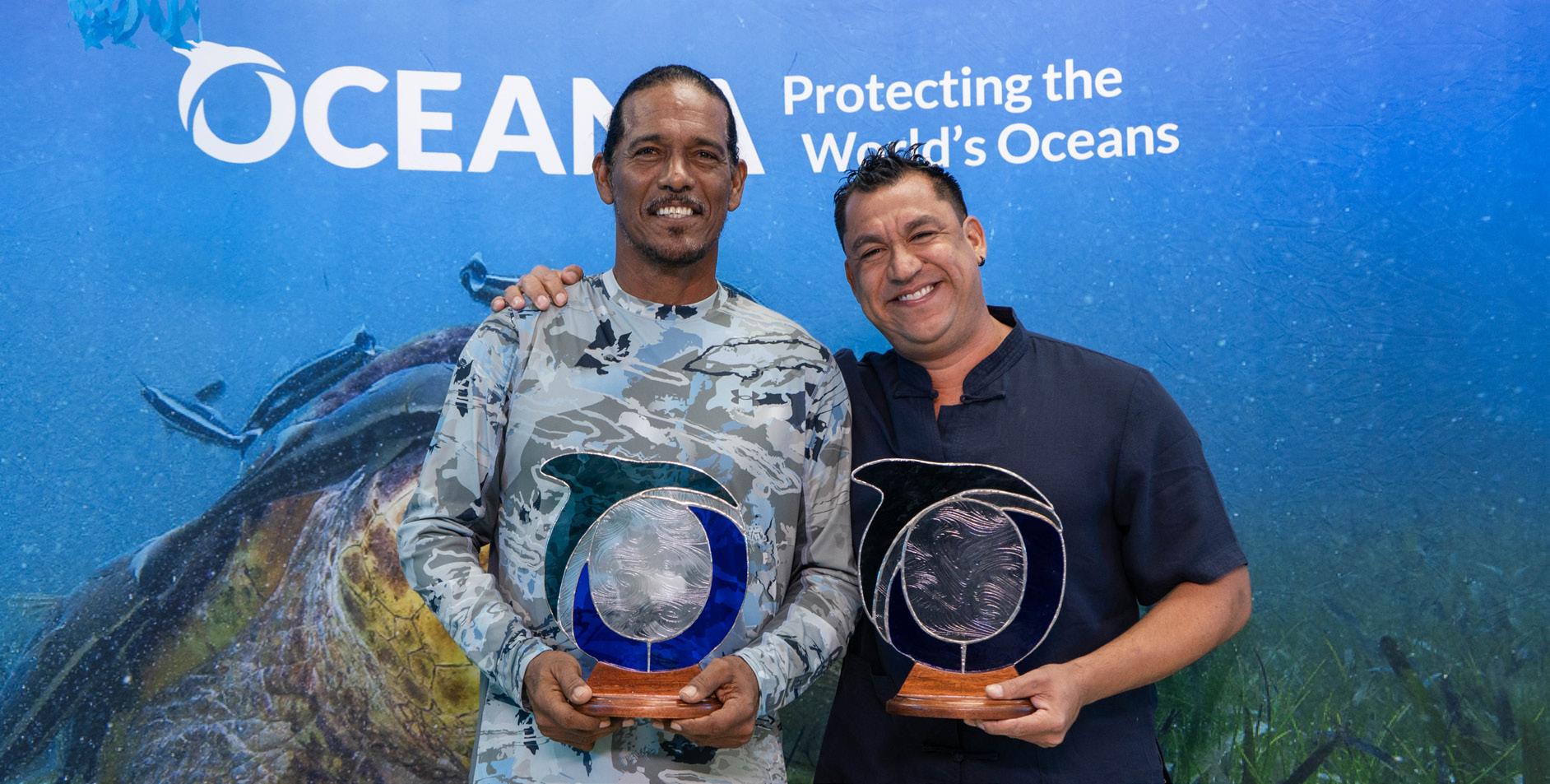
our 13th annual Ocean
award
in November
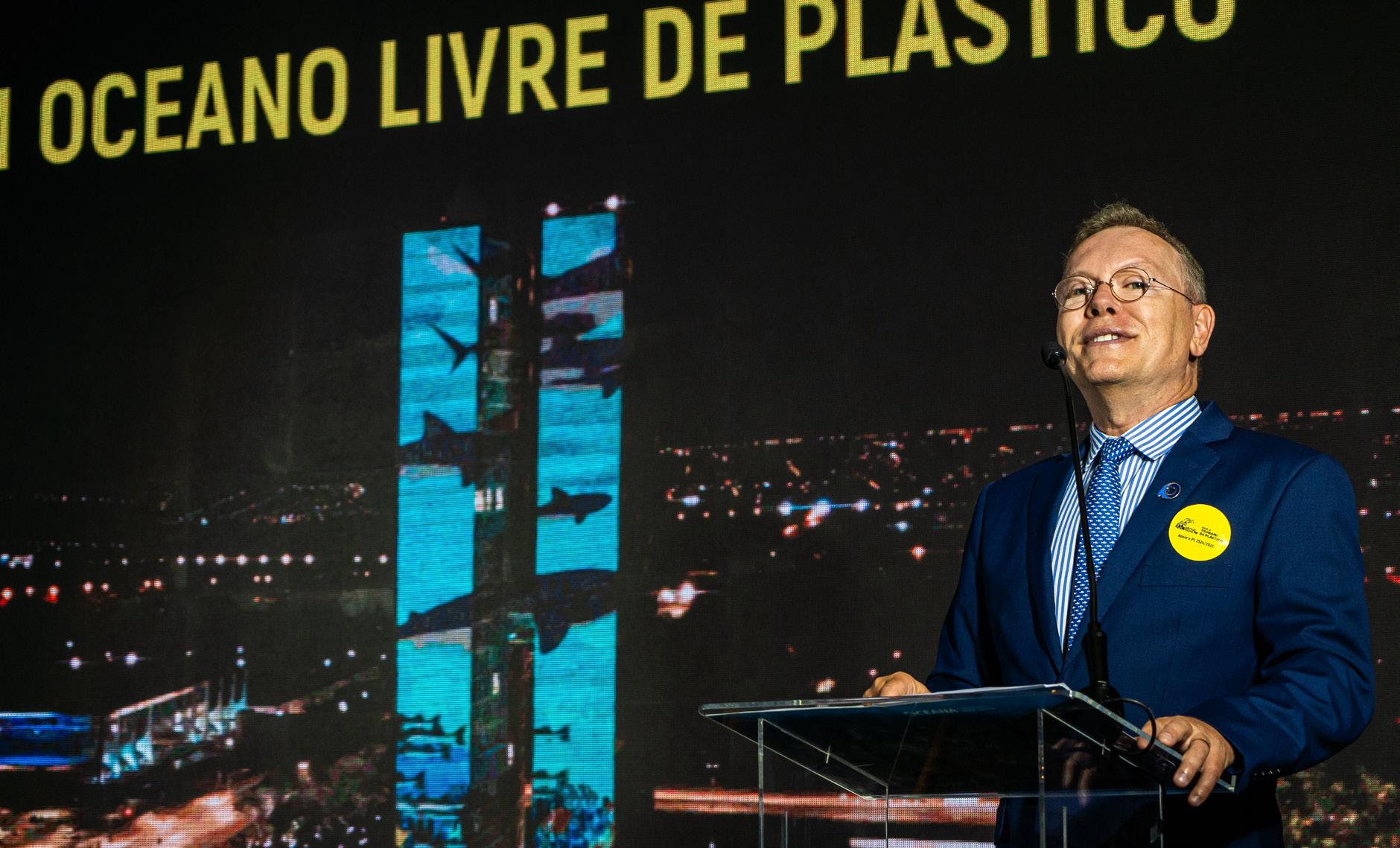
Ademilson Zamboni, Vice President of Oceana in Brazil, delivered an opening speech at the launch of the Stop the Plastic Tsunami campaign, which has garnered the support of 80 Brazilian organizations, advocating for Oceana’s plastic-free bill. Hosted at the House of Representatives’ Noble Hall, the event promoted an important debate, included speeches by key senators, and secured high profile attendance.
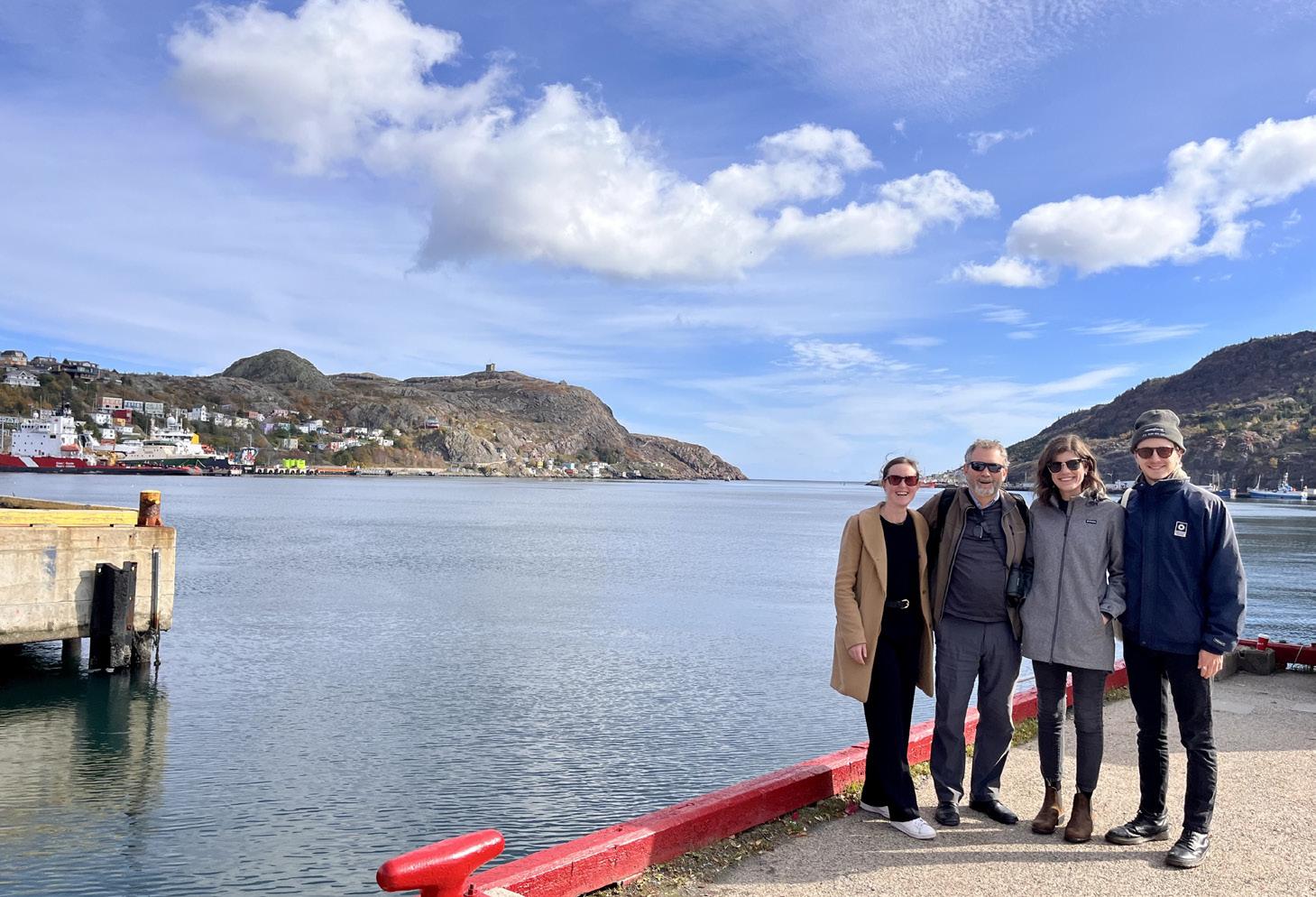
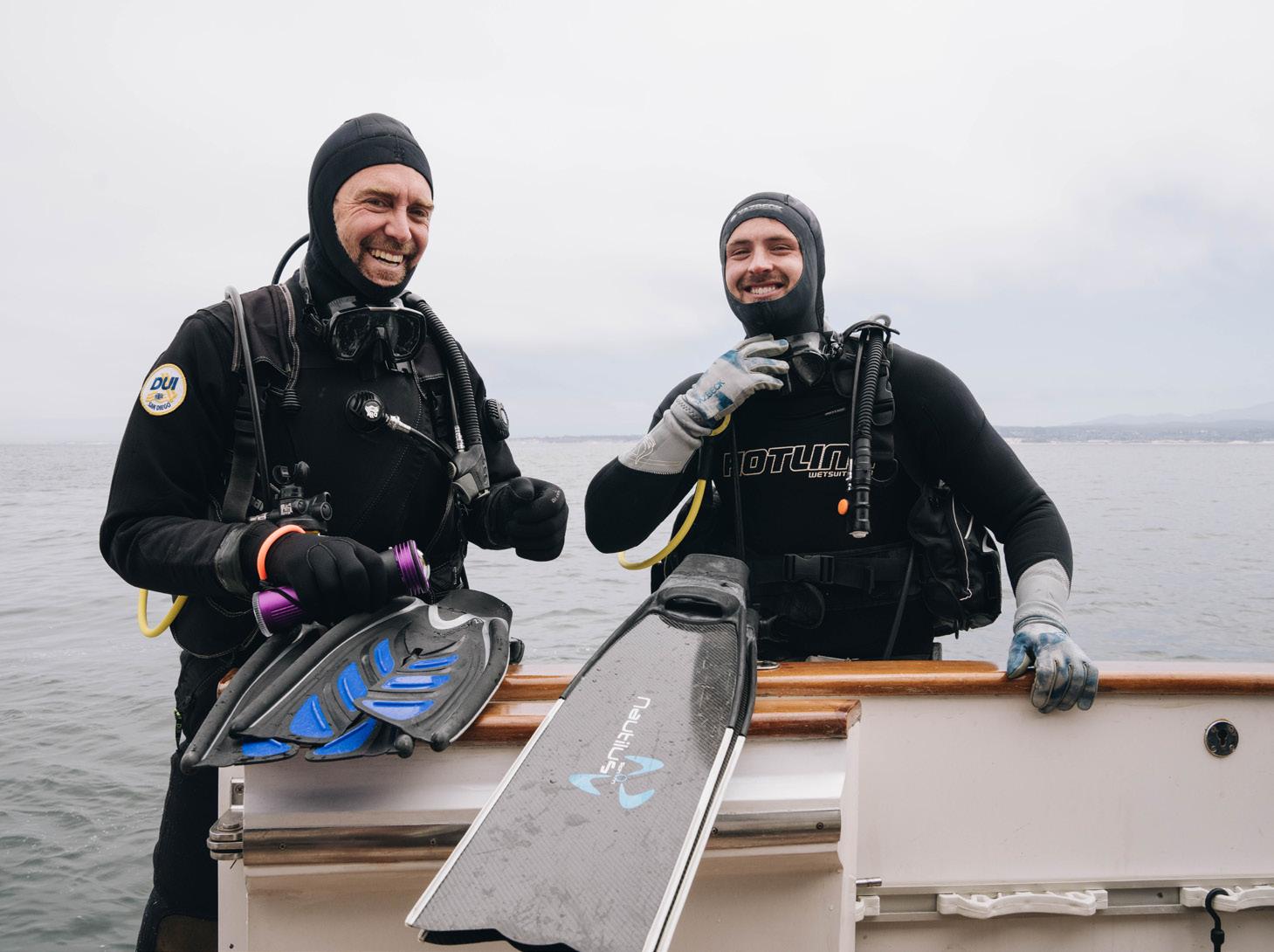


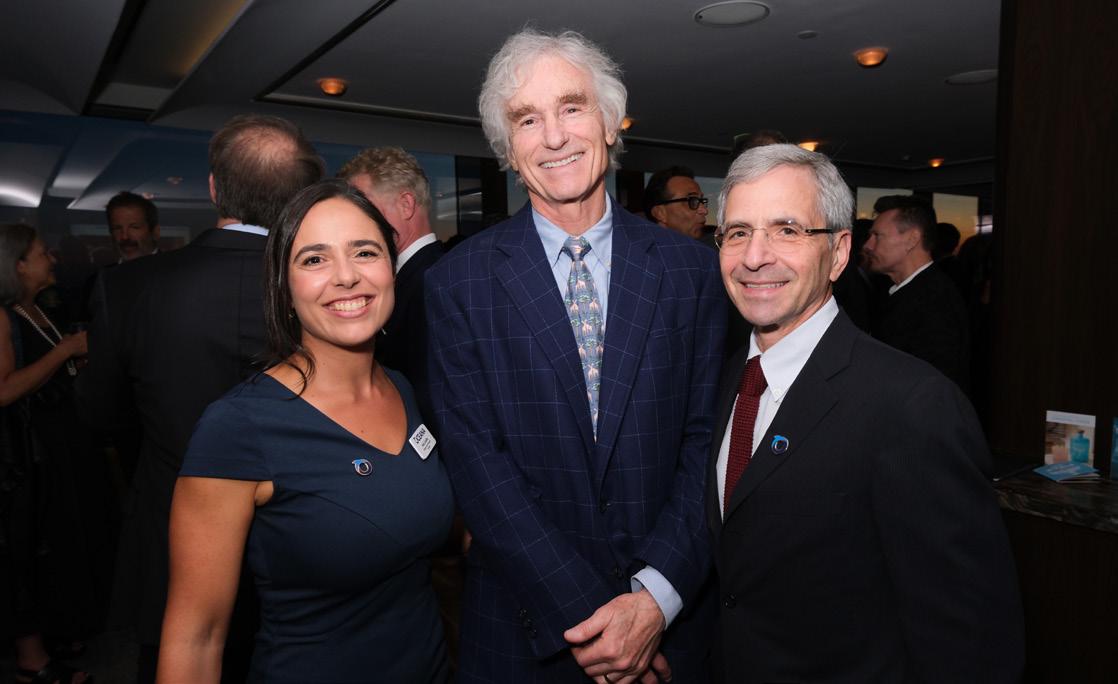

Oceana communications staff Ricardo Sarria and Ximena Chavez, together with representatives from the Municipality of Lima, Peru, participated in an event held at the Huaca Pucllana, where they discussed Peru’s long-standing fishing culture
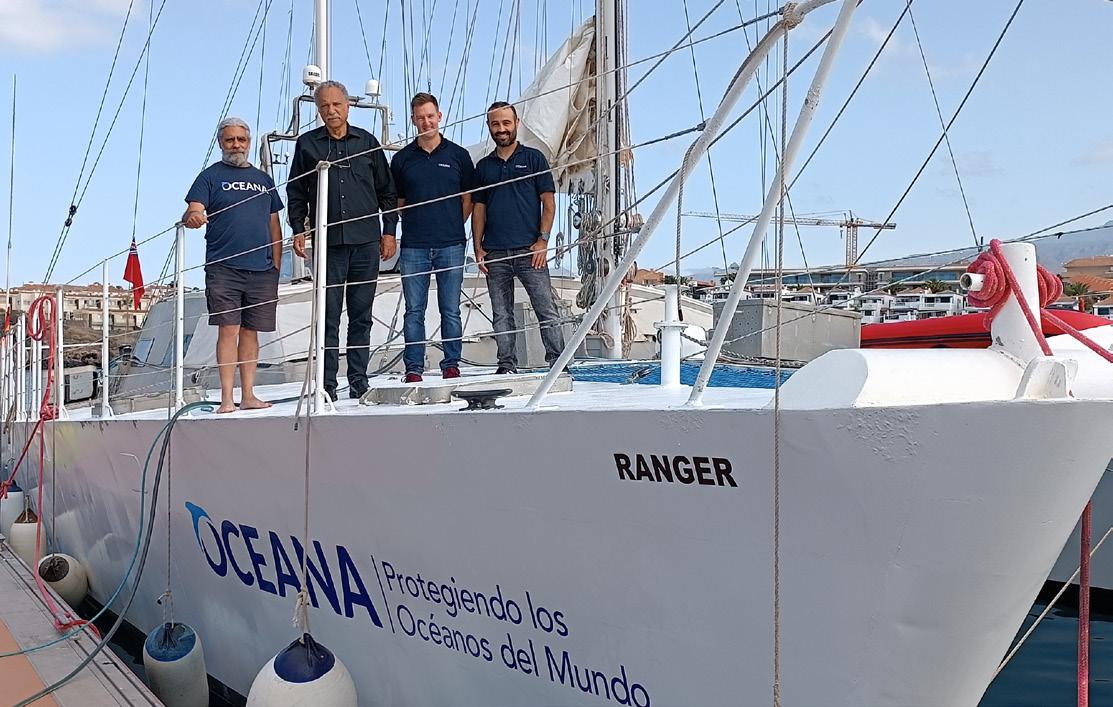

Oceana’s 11th Annual Ride to Reef event took place in March 2024, as part of Reef Week. Over 50 cyclists from across Belize braved fog, humidity, and heat during the 50-mile journey from the steps of the National Assembly to Memorial Park in Belize City in a symbolic tribute to Belizeans’ ongoing commitment to meaningfully participate in marine conservation.

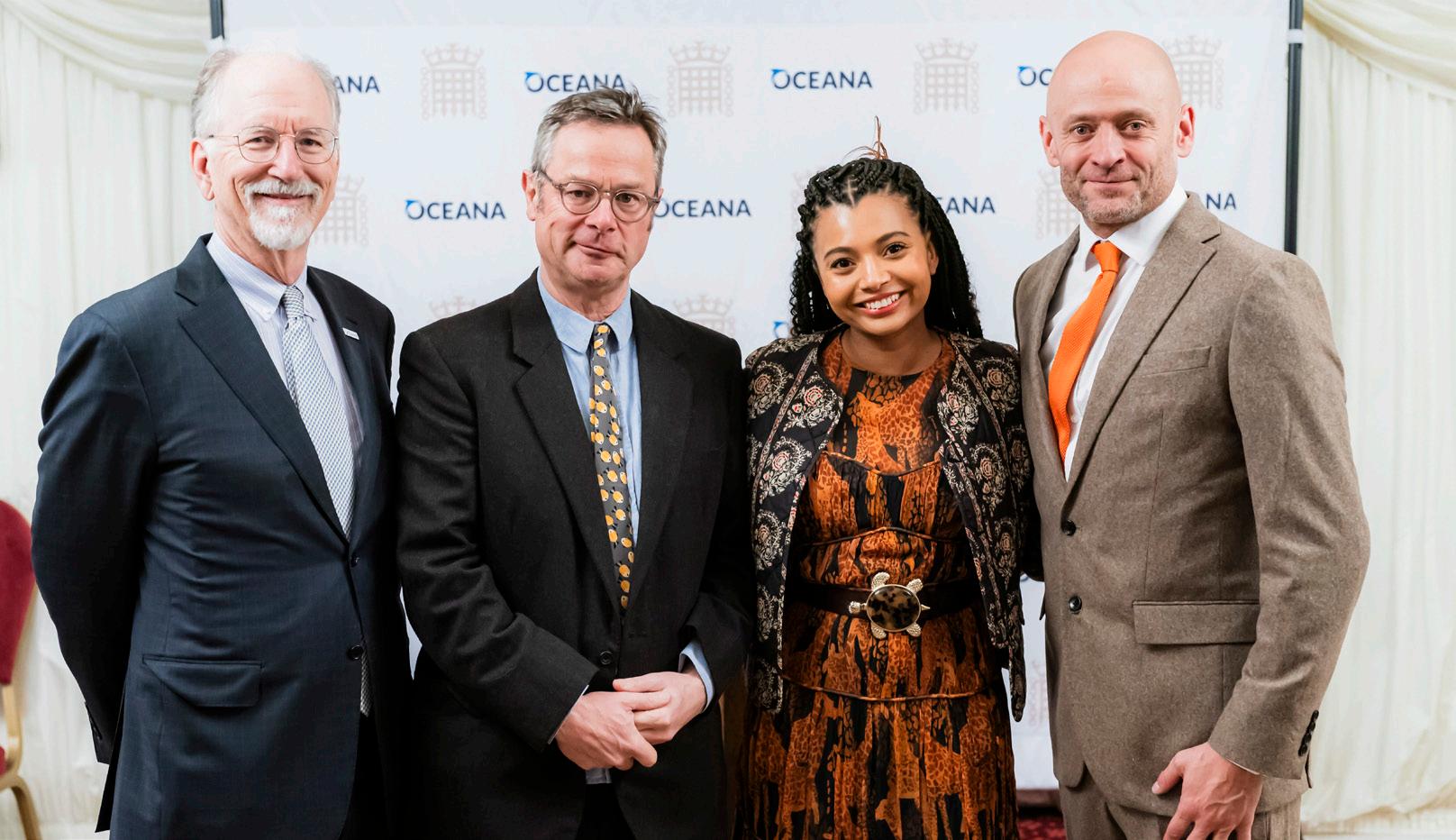
Former Oceana CEO Andrew Sharpless; celebrity chef, writer, and broadcaster Hugh FearnleyWhittingstall; wildlife filmmaker Inka Cresswell; and Executive Director and Vice President of Oceana in the U.K. Hugo Tagholm participated in an event with Oceana’s international Board of Directors at the House of Lords, U.K. Parliament.

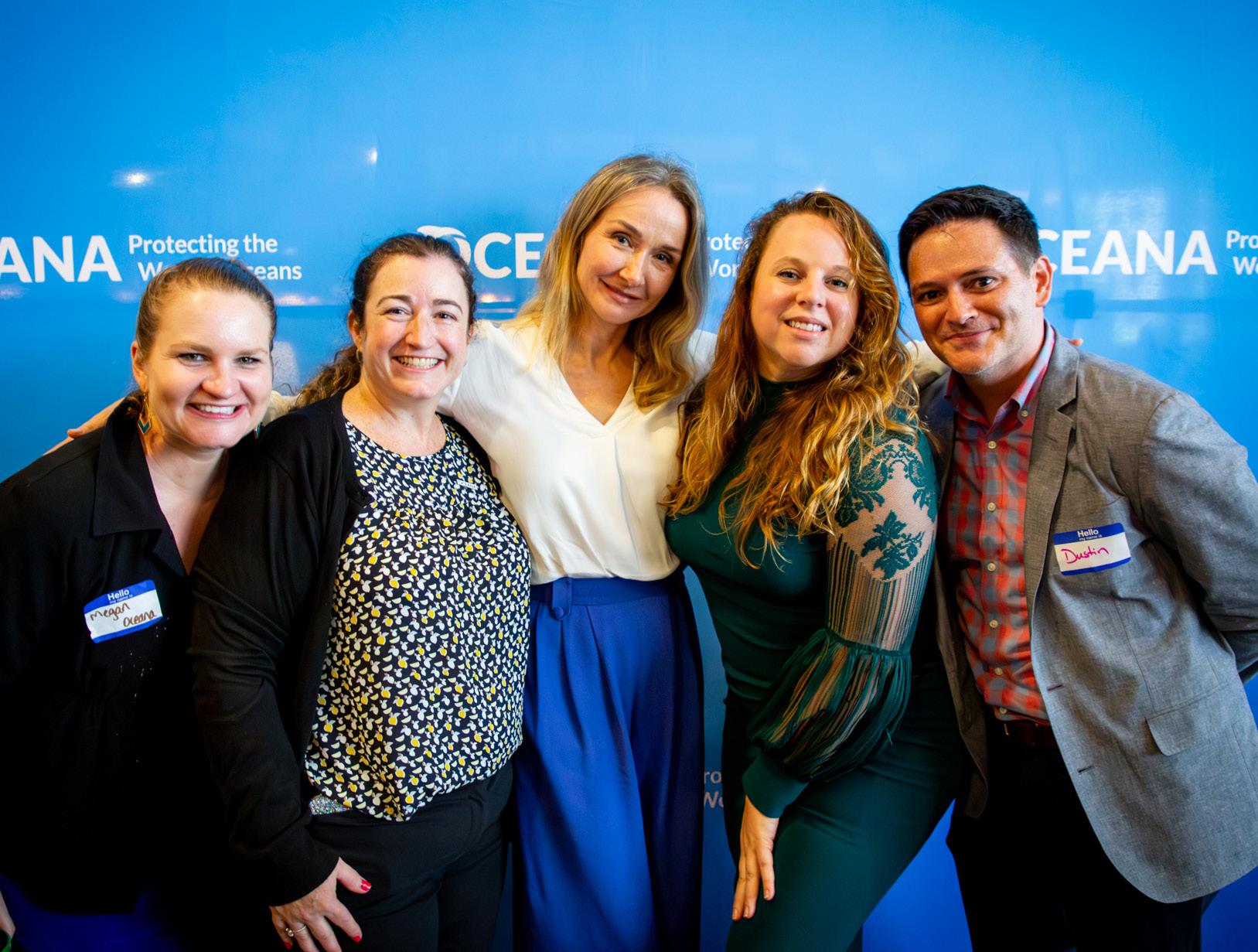
Oceana Director of Communications Megan Jordan, Oceana Vice President for the U.S. Beth Lowell, Oceana Senior Advisor Alexandra Cousteau, Oceana Campaign Director Max Valentine, and Oceana Vice President for Global Marketing and Communications Dustin Cranor attended Oceana’s reception to celebrate international efforts in the fight against illegal, unreported, and unregulated fishing in June 2024.
Sailors for the Sea team members Emily Conklin and Jennifer Brett visited the St. Francis Yacht Club in San Francisco, California, to attend the Rolex Big Boat Series, a Platinum Level Clean Regatta. Over this five-day event, the team spread awareness about Sailors for the Sea and Oceana’s campaigns with competing sailors and spectators.
© Oceana/Jennifer Brett
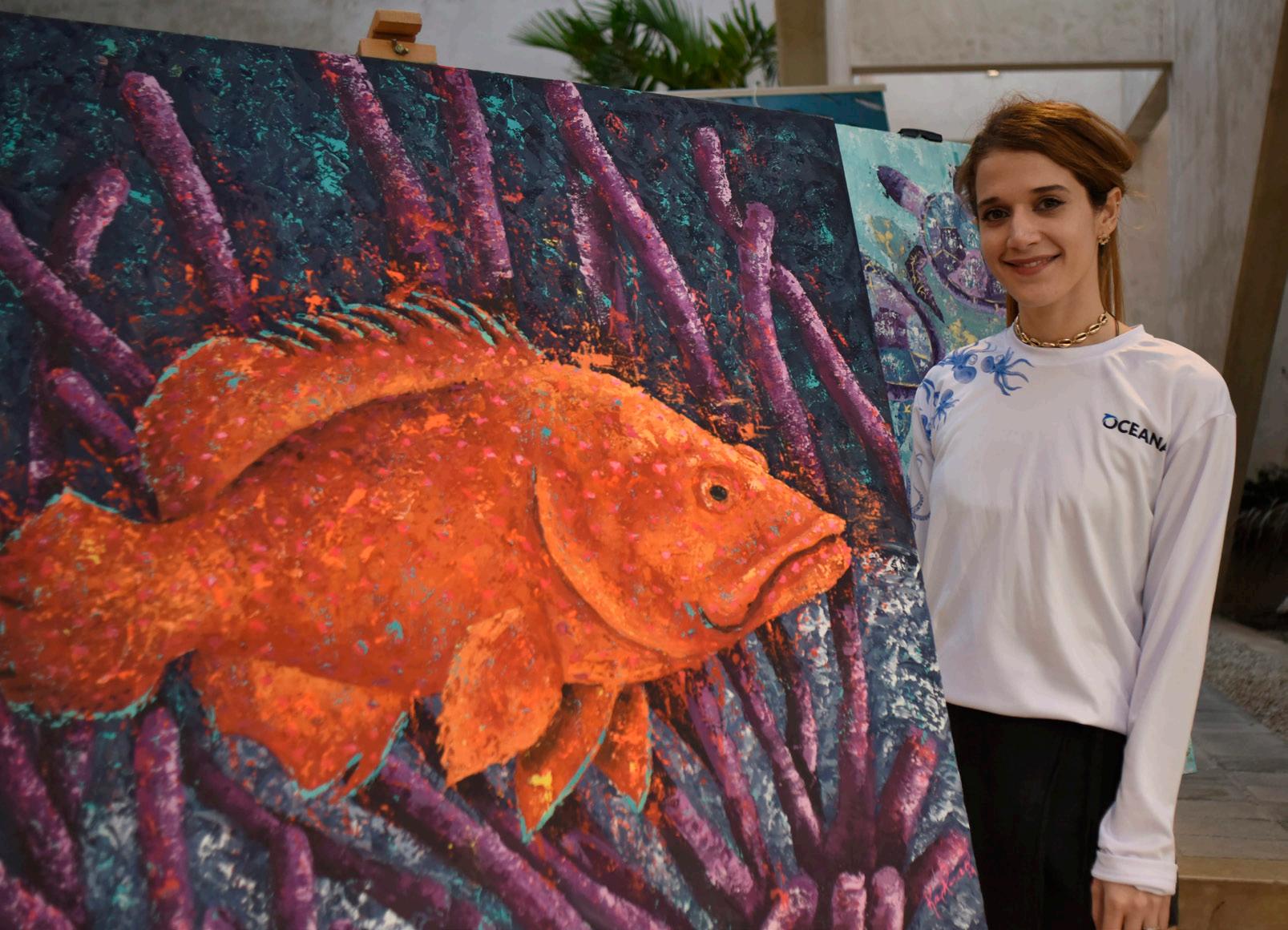
Karina Arceo, an artist from Yucatán, Mexico, joined a celebration of the creation of Bajos del Norte National Park in March 2024, creating a live painting inspired by the area’s coral reefs.
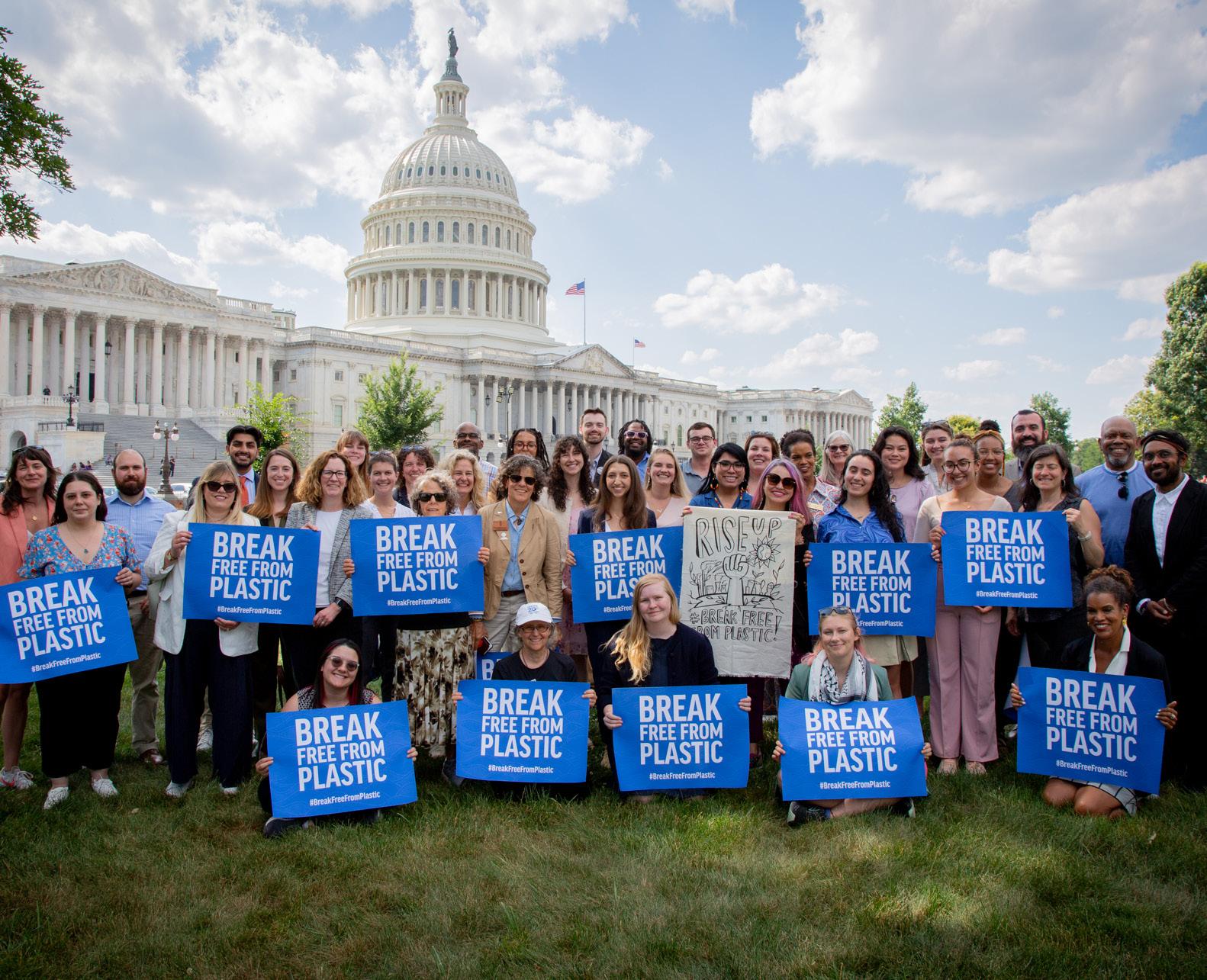
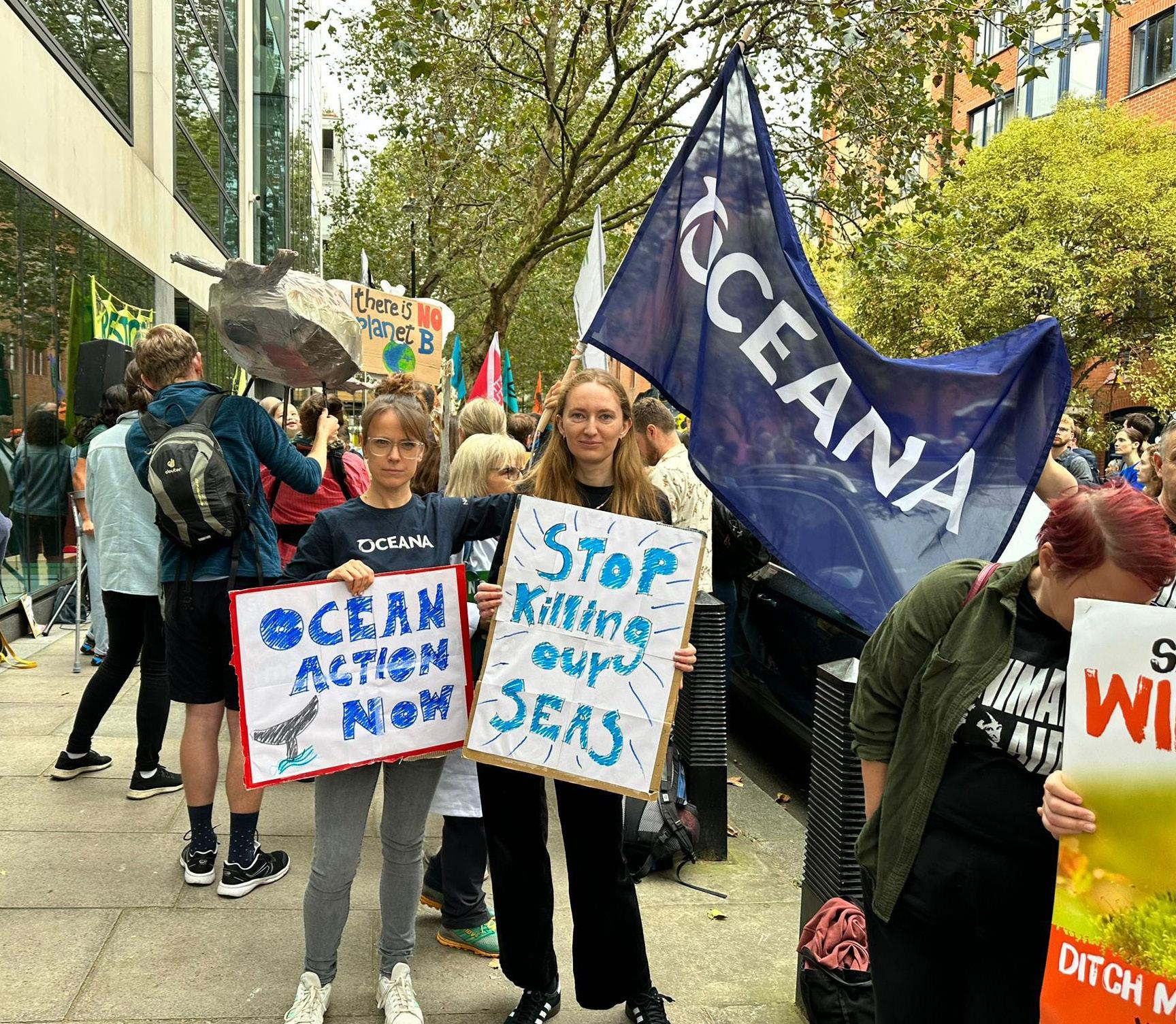
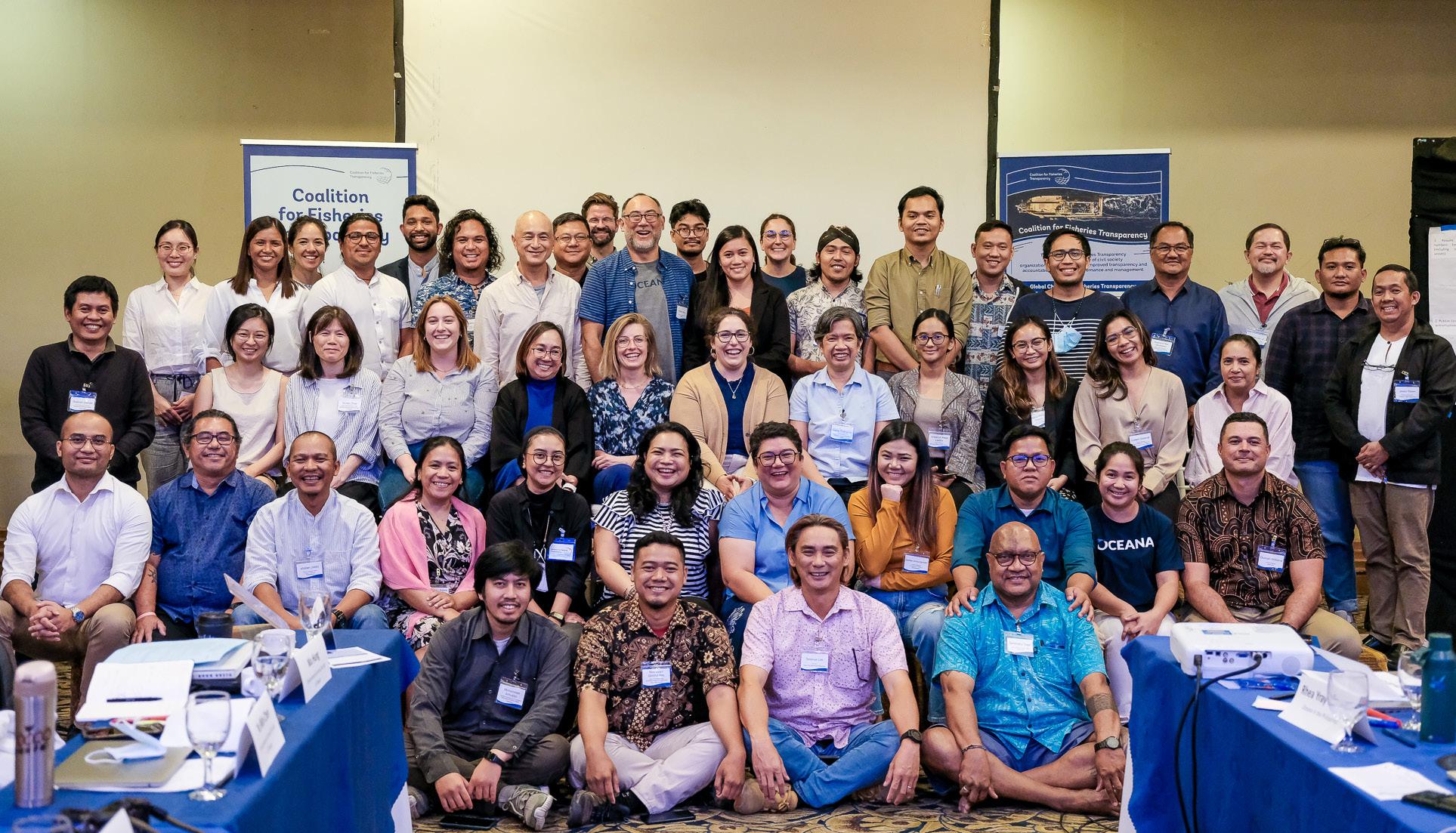
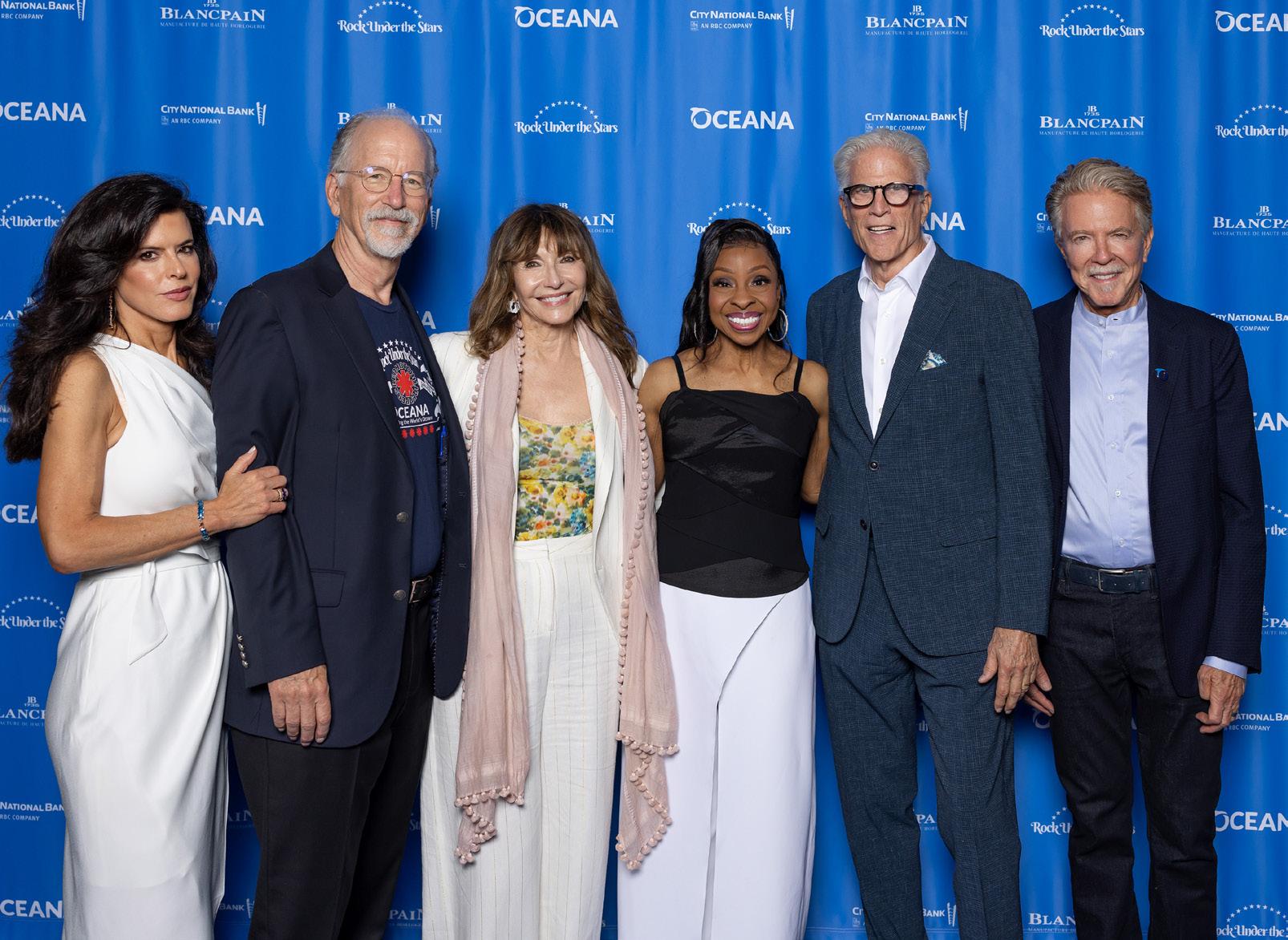
Chief Scientist and Senior Vice President Dr.
launching a
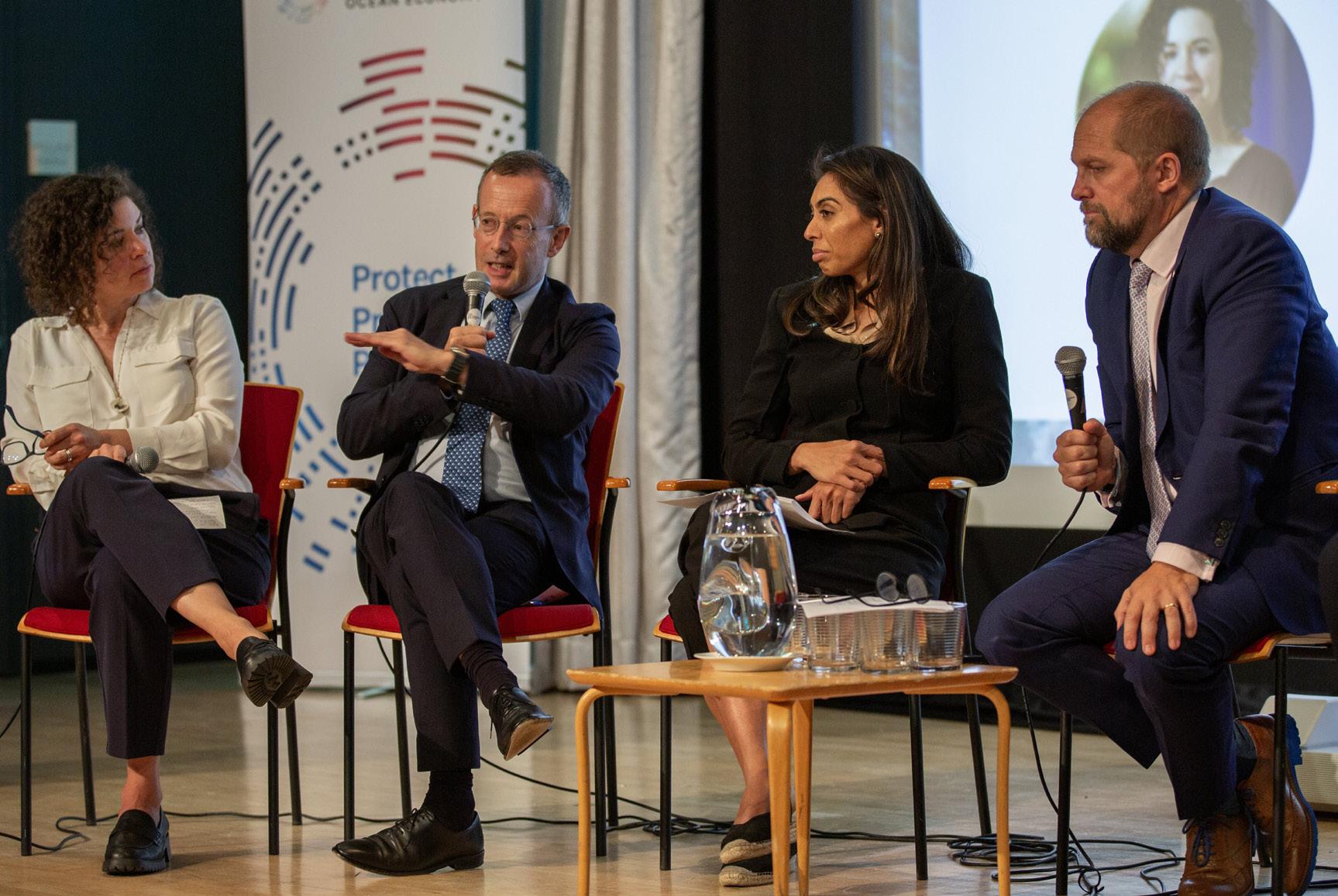
in a
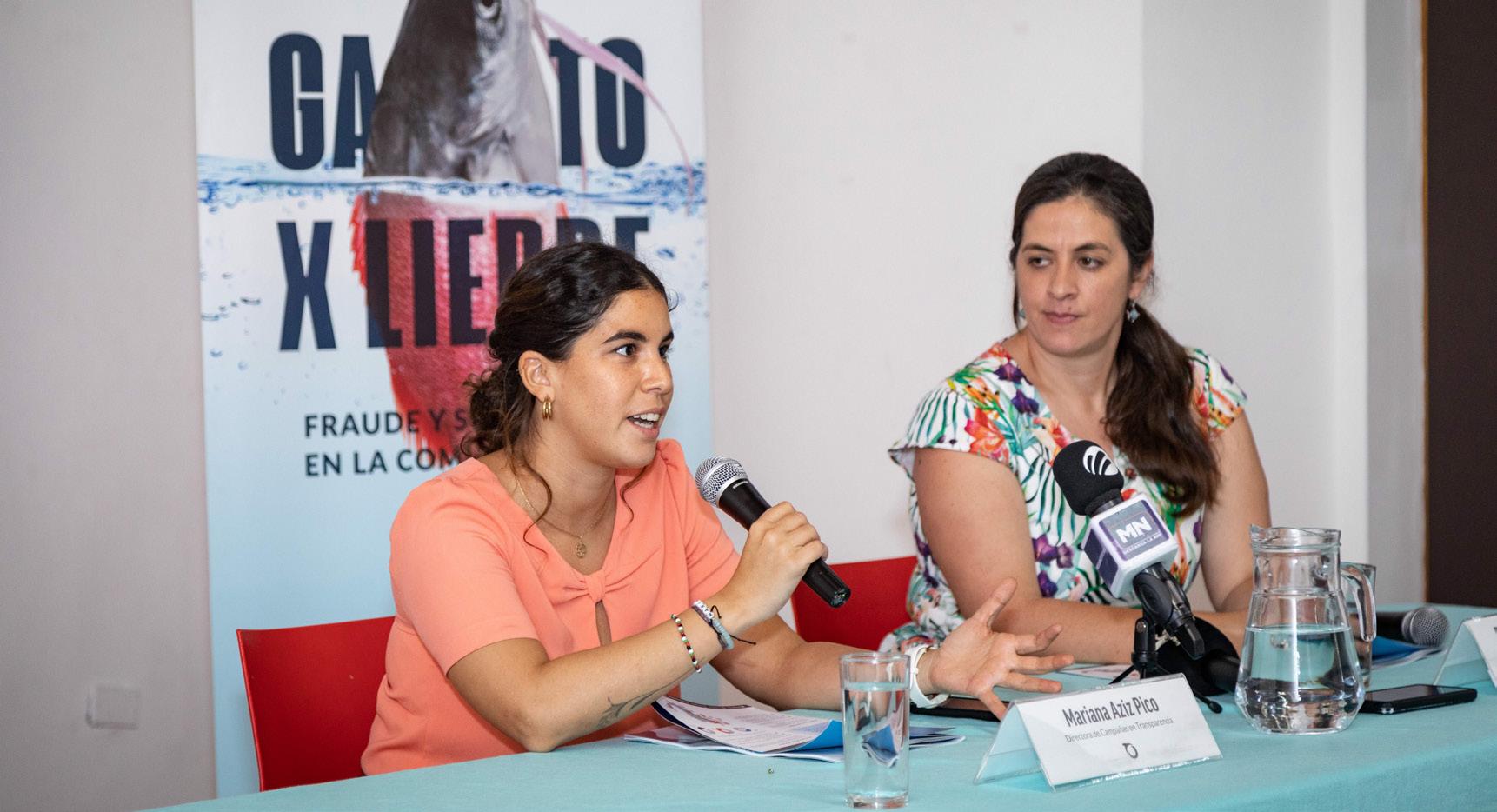
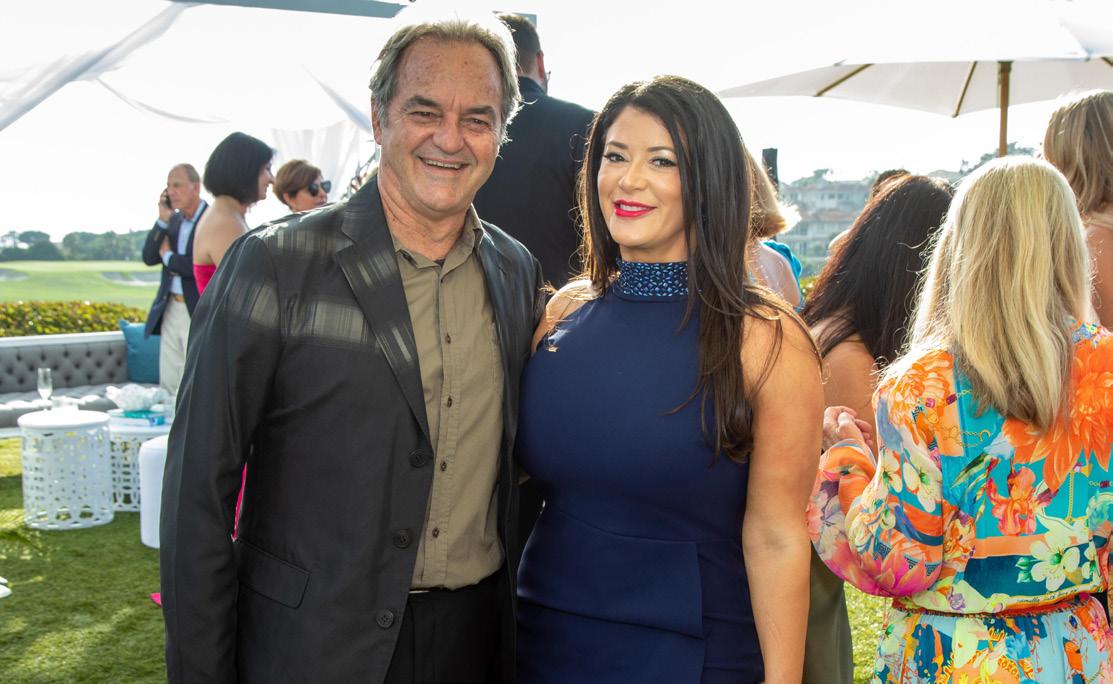
Paul Naudé and Oceana Board Member and SeaChange Co-Chair Elizabeth Wahler attended Oceana’s SeaChange Summer Party in Dana Point, California, where Naudé was honored as “Ocean Champion.”


Oceana’s campaigners design media and communications strategies that target key decision-makers, inform the public, and help achieve victories. Oceana and our scientists and policy experts are quoted in top media outlets every year, from The New York Times, to El País, to the Associated Press. Here are some of our press highlights from July 2023 to June 2024:
Biden Administration Offers Fewest Offshore Oil and Gas Leases in History

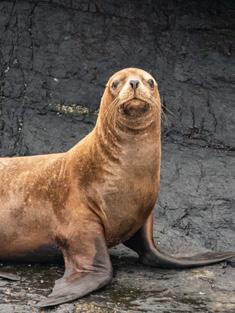
Consejo de Ministros aprobó área costera protegida en el Archipiélago de Humboldt

Iniciativas bem-sucedidas no Brasil e no mundo que promovem a qualidade de vida e o uso inteligente dos recursos naturais

Reel returns: the economic mandate for rebuilding fisheries

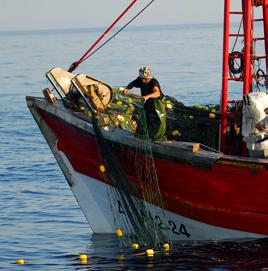
The fisherman from Senegal keeping Spain’s vessels afloat

Belize’s Democratic Test: The People’s Verdict on Offshore Oil Exploration

What kind of seafood is morally ethical to eat?
So long plastic air pillows: Amazon shifting to recycled paper filling for packages in North America

Miguel Rivas, environmentalist: “Mexico has one of the most avant-garde environmental laws, but it fails to comply”

“A well-managed and abundant ocean could feed a billion people a healthful seafood meal every day, forever.”
- Andrew Sharpless, former CEO of Oceana
México suma 20 nuevas áreas naturales protegidas; destaca Bajos del Norte, Yucatán

Daniel Olivares, VP of Oceana Perú, on the Artisanal Fishing Law


Oceana wants Philippine government to end all reclamation activities in Manila Bay

© Oceana
Boaters are first line of defense to protect endangered right whales


Oceana to Celebrate Morgan Freeman and a Win for Shark Protections at Annual SeaChange Summer Party

Oceana: Turn AUU fishponds to mangroves

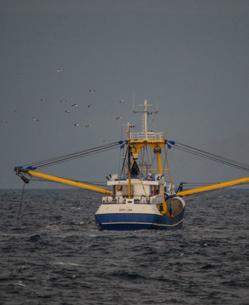
Hoovered up from the deep: 33,000 hours of seabed trawling revealed in protected UK waters

Government ‘allowing overfishing by ignoring scientific advice’

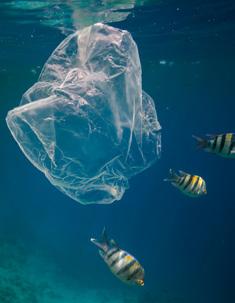
How single use plastics are hurting our oceans and warming our planet

Squid games on the high seas as U.S. Coast Guard monitors Chinese fishing vessels
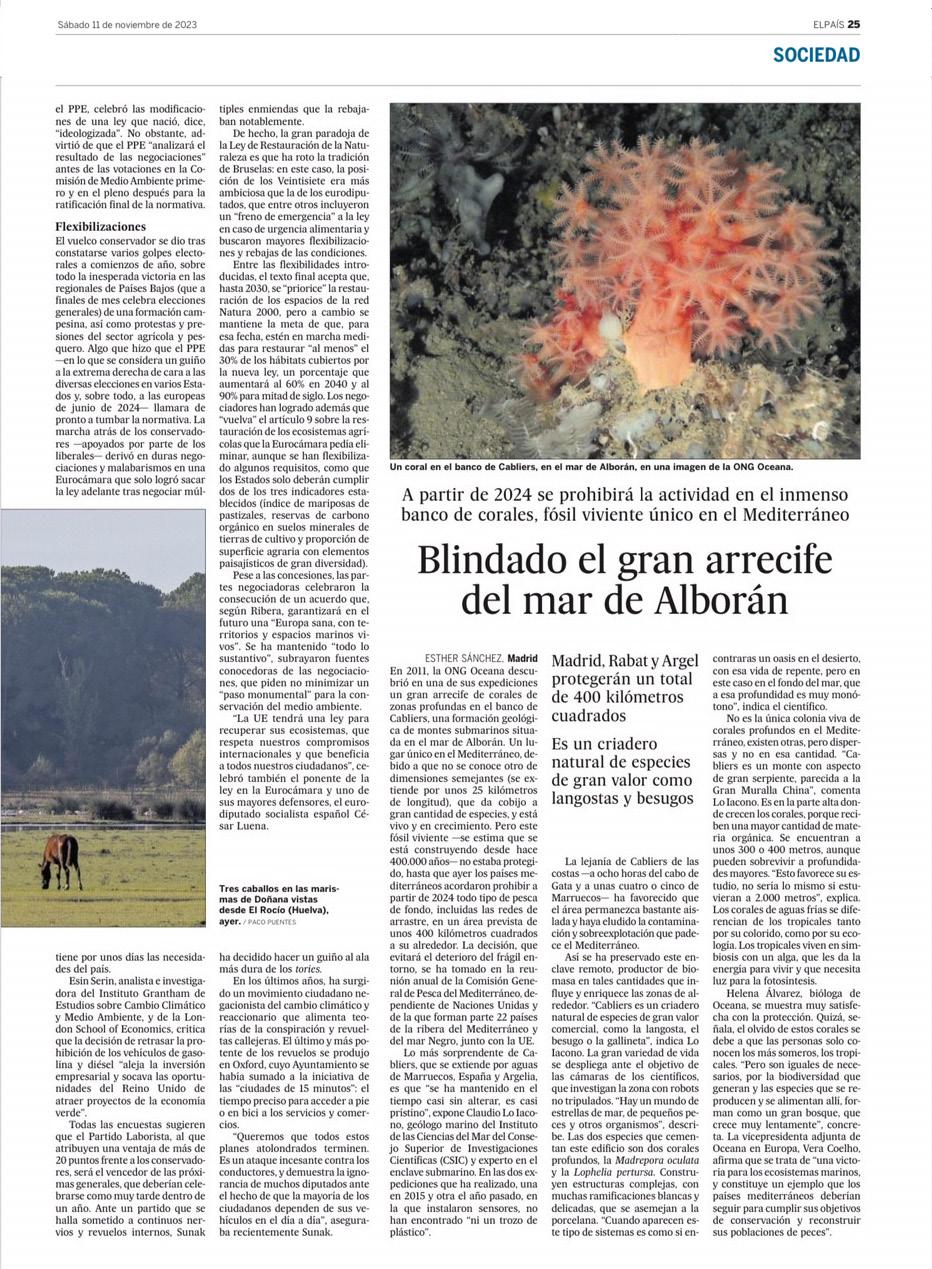

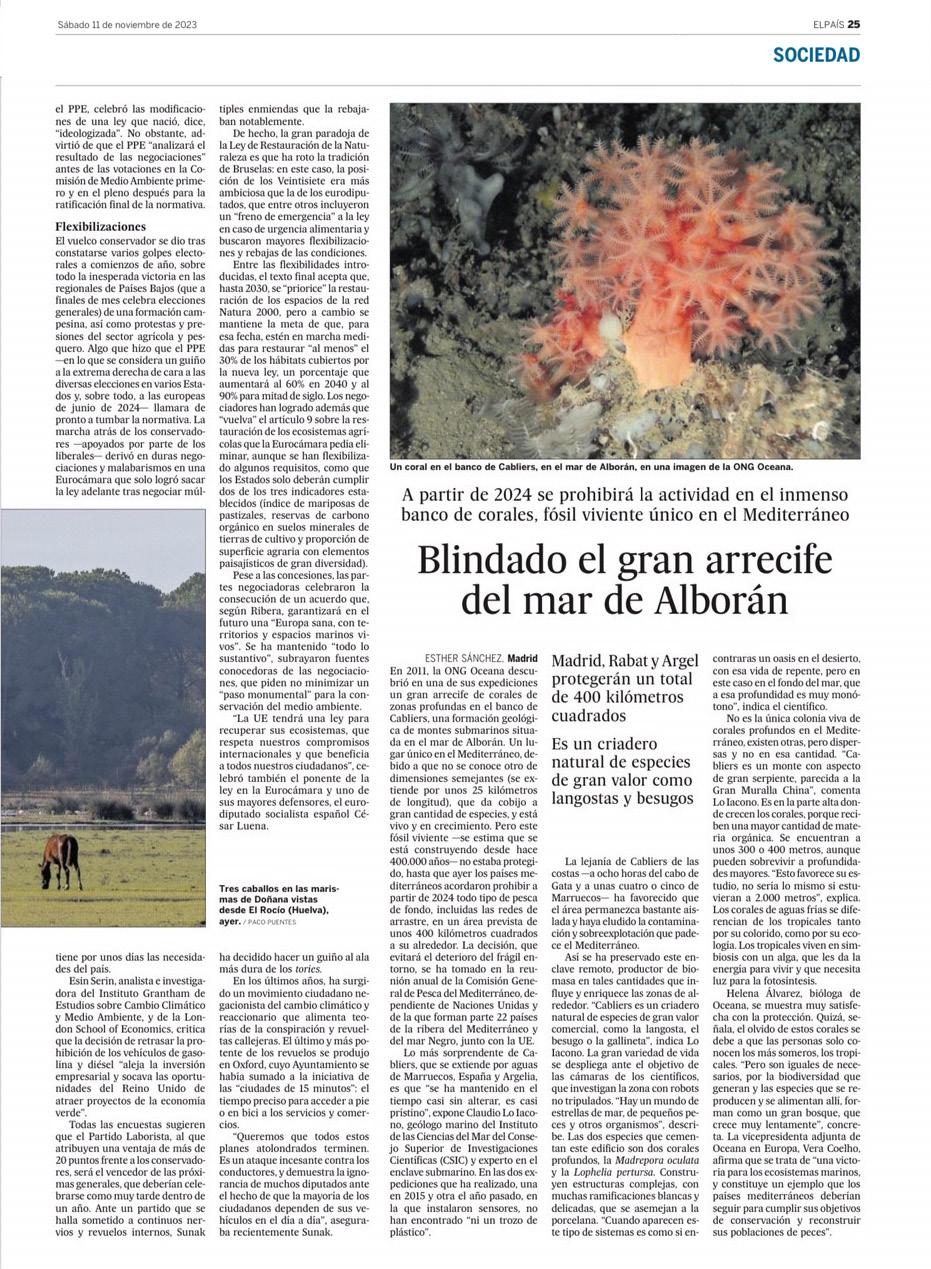
Each of us has the power to help save the oceans and feed the world. Your support allows Oceana to carry out targeted campaigns to protect the climate, end overfishing, limit bycatch, protect habitats and species, curb ocean pollution, and increase transparency at sea. Oceana wins victories that restore ocean abundance and biodiversity for generations to come. Become part of a growing base of ocean advocates by joining Oceana today.
You can provide financial contributions to Oceana via web, phone, or mail. Credit card donations may be made on a sustaining basis by designating a monthly, quarterly, or annual contribution. Checks may be mailed to our headquarters at the address below. Supporters who give $1,000 or more annually receive a variety of benefits, including Oceana Magazine, invitations to special events, and updates throughout the year.
Visit us at Oceana.org/donate.

Oceana, Inc.
1025 Connecticut Ave. NW, Suite 200 Washington, DC 20036 USA
Choose to leave a gift to Oceana through your will or living trust. You may also designate Oceana as the beneficiary of your life insurance policy or retirement plans.
Contact Oceana at plannedgiving@oceana.org or +1 (202) 833-3900 to learn more about ways to give and become a LegaSea Circle member.
Use a Donor Advised Fund to make a one-time or recurring gift, or to make Oceana the beneficiary of your fund for a future gift.
The charitable IRA rollover or qualified charitable distribution is a simple and financially smart way to support Oceana and may include some financial advantages for you if you are 70 and ½ or over. If you are 73 or over, the rollover may count toward your required minimum distribution for the year, which could reduce your taxable income, and is a tax-free gift to Oceana.
Stocks and mutual funds held for more than one year may be itemized for a tax deduction for their full market value. Save by paying no capital gains taxes and pass those savings on to Oceana.
Many of the world’s most iconic animals rely on healthy oceans for their habitat and food. Adopting an ocean animal is the perfect gift for friends and family and supports Oceana’s campaigns. Show your support for ocean conservation with an animal plush, t-shirt, or other item from our online store at gift.oceana.org.
@Oceana Take Action
Become a Wavemaker and join supporters from around the world who have signed up with Oceana to protect our oceans. Being a Wavemaker means you will advocate for safer fishing gear to protect whales from entanglements and stopping ocean plastic pollution at the source to prevent harm to marine life. With you by our side, we can fight these and other important threats. Every day, more irreplaceable ocean habitats are threatened by destructive fishing and pollution. Take action to help protect our oceans by visiting oceana.org/ take-action.
Oceana is a member of EarthShare, a federation representing the nation’s most respected environmental and conservation charities in hundreds of workplace giving campaigns. To find out how you and your workplace can support Oceana through an EarthShare campaign, email wavemaker@oceana.org.
Follow Oceana on social media for breaking news from all around the world and insights into our research and campaigns.

@Oceana
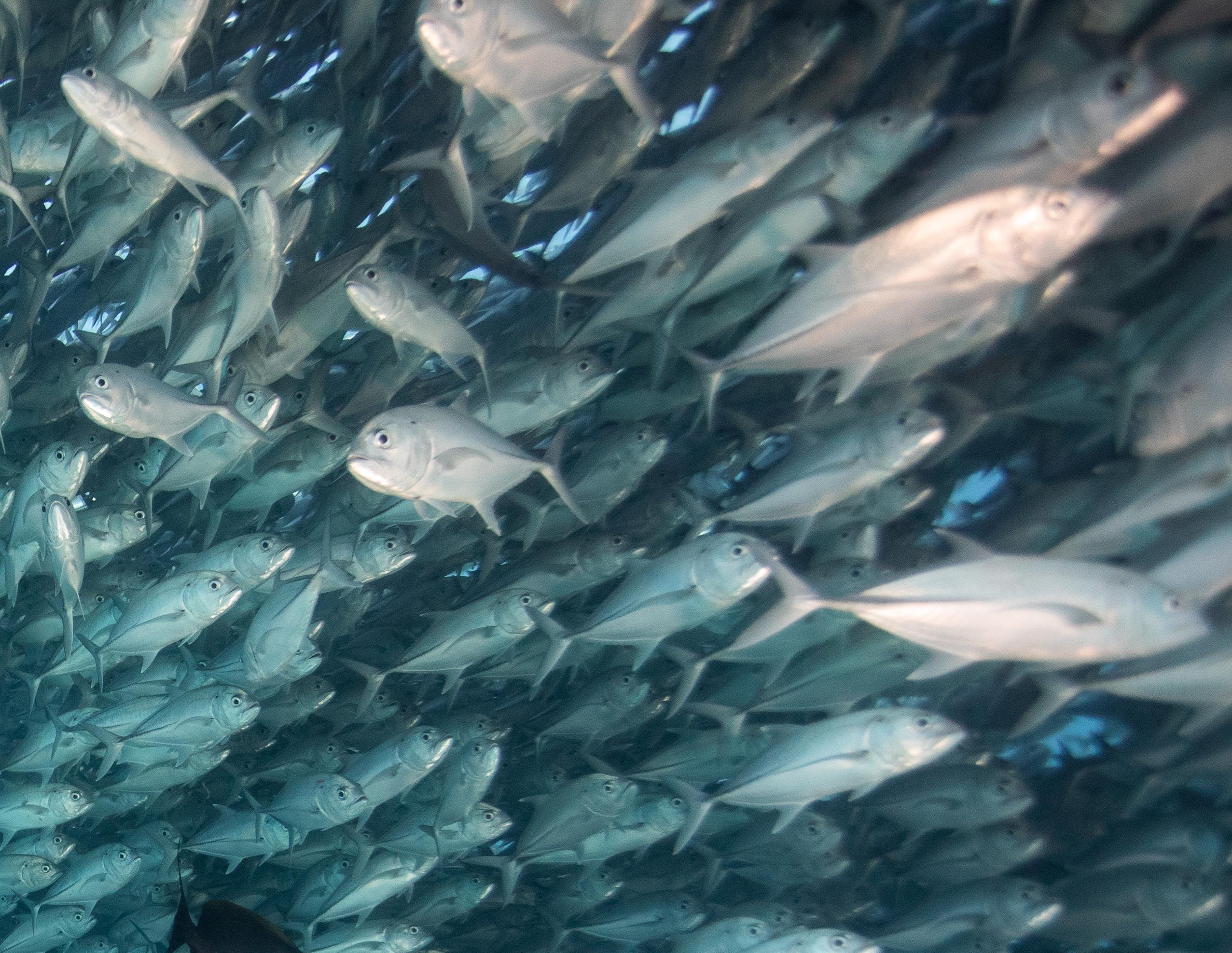
@Oceana
X (Formerly Twitter) Followers: 496,000
Other Social Media Followers: 3 Million
Wavemakers: 1.5 Million
Total Supporters Worldwide: 9 Million
Oceana’s contributors provide the support that is essential to our campaigns to preserve and rebuild ocean life. In 2023, Oceana received cash and commitments from our generous donors totaling nearly $49 million, of which approximately $30 million was time- or program-restricted support and approximately $19 million was unrestricted.
Expenses totaled $49 million in 2023, of which $28 million was paid from restricted funds and $21 million was paid from unrestricted funds. Of every dollar of expenses, approximately 72 cents were spent directly on Oceana’s programs. The remainder was spent on general and administrative costs (about 17 cents) and raising funds (about 11 cents).
Including cash received and commitments for additional contributions in future years, Oceana ended 2023 with $62.5 million in net assets available for use in 2024 and beyond.
Financial data was derived from audited financial statements, copies of which are available upon request, and are posted on the websites for the following Oceana entities: Oceana, Inc.; Fundación Oceana; Oceana Belize; Oceana Brasil; Oceana Philippines; and Oceana Canada. Donations to the various Oceana entities may be tax deductible.
$49,009,711
Unrestricted
Temporarily restricted for 2021
Temporarily restricted for 2022
Temporarily restricted for 2023
Temporarily restricted for 2024
Temporarily restricted for 2025
Temporarily restricted for 2026
Temporarily restricted for 2027
Temporarily restricted for 2028
Revenue and Support
Grants and Contributions
Special Events
Investment Income
In-Kind Revenue
Loan Forgiveness
Employee Retention Tax Credit
Miscellaneous
Foreign Currency Transaction (Gains) Losses
Net Assets Released from Restrictions:
of Time Restrictions
Satisfaction of Program Restrictions Total Revenue and Support Expenses
Services
States Oceans
General and Administrative
Fundraising - Cost of Direct Benefit to Donors
Fundraising - Other
(130,333) 4,048,763 26,128,104
48,983,467 10,347,631 17,297,666 3,615,481 1,349,522 2,532,980 128,733 35,272,013 8,119,699 772,667 4,845,332 13,737,698 49,009,711 (26,244) $62,609,733 $62,583,489 $12,617,094 4,736,691 616,396 837,468
10,347,631 17,297,666 3,615,481 1,349,522 2,532,980 128,733 35,272,013 8,119,699 772,667 4,845,332 13,737,698 49,009,711 (126,745) $32,733,394 $32,606,649
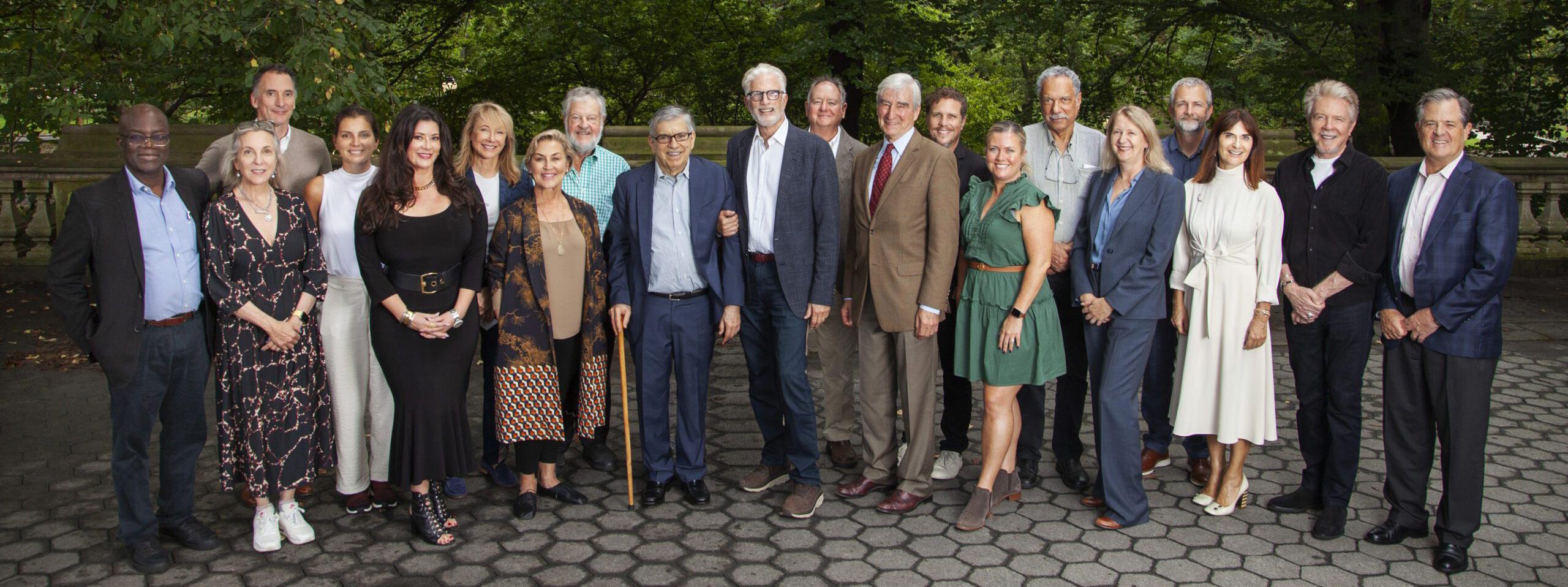
Sam Waterston, Chair
As the Chair of Oceana’s Board of Directors, Waterston brings to the organization a wealth of talent and resources in support of Oceana’s programming and mission. As an actor, his trophy case includes television awards such as the Emmy, Golden Globe, and Screen Actors Guild and theater awards like the OBIE and Drama Desk. Other accolades include an Academy
Award nomination for his role as journalist Sydney Schanberg in 1984’s The Killing Fields and six Emmy Award nominations for his roles in I’ll Fly Away and Law & Order. Waterston grew up in New England, where he saw the effects of fisheries collapses on the life of seaside towns.
María Eugenia Girón, Vice Chair
Girón is Vice Chair of Oceana’s Board of Directors, Chair of the Board of Fundación Diversidad, a member of the Board of IC-A, and co-founder of the Women Corporate Directors Chapter in Spain, as well as a jury member at the European Innovation Council for Horizon Europe and the “Green Deal,” and an ESG expert at ECODA (Institute of Directors in Europe). Girón
is an associate professor for entrepreneurship at IE Business School and INCAE and an angel investor. Previously, she served as CEO of Carrera y Carrera jewelry company and VP at Loewe. Girón holds an industrial engineering degree from ICAI and an MBA from Harvard Business School.
Diana Thomson, Treasurer
Thomson is Chair of The Nikita Foundation, a Toronto-based charity she co-founded in 2012. The Nikita Foundation supports charitable initiatives in the areas of health, education, and environmental protection.
James Sandler, Secretary
Sandler was a member of Oceana’s founding Board of Directors and is in charge of the Sandler Foundation’s environmental giving.
Keith Addis, President
Addis is the co-founder of Industry Entertainment, a leading management and production company, and recently launched his new venture Constellation Media Group. He is also a longtime environmentalist. Prior to joining Oceana’s Board, Addis was the Chairman of the American Oceans Campaign (AOC). Under his leadership, AOC — founded by Addis’s longtime friend and client Ted Danson — achieved victories on key marine issues including bottom trawling and offshore oil drilling. AOC merged with Oceana in 2001.
Gaz Alazraki
Alazraki is the director of HBO Max’s Father of the Bride (2022), writer and director of Mexico’s record-breaking comedy Nosotros los Nobles (2013), and the co-creator, executive producer, and director of Club de Cuervos (2015) — Netflix’s first original series in Spanish. He heads Alazraki Entertainment, a Mexico City-based production company focused on high-quality entertainment for general audiences in Latin America and Hispanic USA.
Herbert M. Bedolfe, III
Bedolfe, the Executive Director of the Marisla Foundation, was one of Oceana’s founders and was Chair of the Board from 2002-2008. During that time, Oceana’s victories included the protection of over 1.8 million square kilometers (700,000 square miles) of ocean habitat from
destructive trawling, the commitment of a large cruise line to stop dumping inadequately treated sewage and wastewater into the ocean, and a decision by the European Union to shut down illegal driftnetters.
Ted Danson
To most, Danson is known for TV and movie acting roles, but for those in the conservation movement, he is much more famous for his work as a passionate ocean advocate and Oceana spokesperson. Danson helped create the American Oceans Campaign in 1987, which eventually became Oceana in 2001. In the last two decades, Danson’s stellar acting career has been complemented by his staunch ocean advocacy. He has appeared in public service announcements, appealed to donors, and testified before the government on the condition of our oceans.
Nicholas Davis
Davis currently serves as the President of EuroAmerica, a Chilean insurance and financial services group. Davis is the founder of Fundación Punta de Lobos, a non-profit organization aiming to protect and preserve the Chilean coastline and its ecosystems. This organization seeks to educate, create awareness, and become a national example by implementing scalable models of conservation, focused on coastline public access, marine protected areas, and zoning tools and regulations.
Patrice Etlin
Etlin joined Advent International in 1997 and started the firm’s investment activities in Brazil. As one of Advent’s global Managing Partners
and member of the Executive Committee, he helps oversee the firm’s strategic direction and investment activities, with a particular focus on Latin America. Etlin has 30 years of private equity experience and has led, co-led, or participated in over 30 investments in the region. He received an undergraduate degree in electronic engineering from the University of São Paulo, a master’s in industrial engineering from École Centrale de Paris, and an MBA from INSEAD.
Maya Gabeira
Gabeira is a Brazilian big wave surfer, best known for setting 2020 World Record for surfing a 73.3 foot wave — the biggest ever surfed by a woman, and the biggest wave surfed by anyone — male or female — that year. As an ESPY award winner and 7x Big Wave Award champion, Gabeira is one of the most influential female surfers of all time. She is also passionately committed to, and a fierce advocate for, restoring the world’s oceans.
César Gaviria
Gaviria served as the President of Colombia from 1990 to 1994 and facilitated the country’s entrance into the international economy. Colombia’s Constitution of 1991 strengthened democracy and defended human rights and justice. Gaviria served as Secretary General of the Organization of American States from 1994 to 2004. Since 2009, he has served as a founding member of the Global Commission on Drug Policy. Gaviria has served as director of the Colombian Liberal Party since 2017, playing a pivotal role in the pursuit of peace and defending democracy.
Loic Gouzer
Joining Oceana’s Board of Directors in 2013, Gouzer — most recently Chairman for the Post-War & Contemporary Art Department at Christie’s Auction House — uses his position in the art world to raise money and draw attention to ocean conservation. He is also an avid freediver.
Christina Hicks, Ph.D.
Hicks is a Professor at Lancaster University, U.K., and an interdisciplinary social scientist and marine conservationist. Hicks works on fisheries governance and conservation, food justice and nutrition, and the politics of finance and investment in fisheries and food systems. Hicks is a Pew Fellow in Marine Conservation, an ISI Highly Cited Researcher, and has won several awards for her work, including the Phillip Leverhulme Prize in Geography and the Royal Geographical Society’s Gill Memorial award.
Jena King
King founded the Jena and Michael King Foundation with her late husband in 1999. The foundation has supported the efforts of 78 environmental and humanitarian nonprofits. As an advocate for the environment and human health, King is also a founding member of C.O.A.C.H. for Kids, an organization that provides medical assistance to underserved children.
Sara Lowell
Lowell is a long-time ocean philanthropist and board member of the Marisla Foundation. She is also the Foundation’s Marine Conservation Program Director and oversees efforts to create marine protected areas, advance sustainable fisheries, and protect coastal lands in California, Hawaii, Baja California, Chile, and the broader Pacific.
Kristian Parker, Ph.D.
Parker is Vice-Chair of the Board of Trustees of Oak Foundation. The foundation commits its resources to address issues of global, social, and environmental concern, particularly those that have a major impact on the lives of the disadvantaged. Through its grant-making, the foundation supports others to make the world a safer, fairer, and more sustainable place to live. The foundation’s environment program funds ambitious initiatives to safeguard our future by restoring our connection to nature and changing the ways we feed and fuel our world.
Daniel Pauly, Ph.D.
Pauly is a world-renowned fisheries scientist and co-recipient of the 2023 Tyler Prize for Environmental Achievement. He currently serves as the Principal Investigator of the Sea Around Us initiative at the University of British Columbia’s Institute for the Oceans and Fisheries. His global, multi-year analyses of fisheries catches and marine ecosystems have allowed him to reach startling and important conclusions — most critical among them that fish populations are declining rapidly all over the world.
David Rockefeller, Jr.
David Rockefeller, Jr. is a lifelong sailor and conservationist and was a founder of Sailors for the Sea, now a component of Oceana. He served on the Pew Oceans Commission and was previously the Citizen Chair of the National Park Foundation. He and his wife Susan are active in overseeing an organic and biodynamic farm in upstate New York, and they like to use the phrase “Healthy Seas, Healthy Soils” to describe their collaborative work.
Susan Rockefeller
Susan Rockefeller is a documentary filmmaker whose award-winning films have appeared on HBO and PBS. Rockefeller also authored the groundbreaking guide Green At Work (Island Press) that helped usher environmentally-friendly jobs into nontraditional arenas. She is also a designer of inspirational jewelry. She sits on the Program Committee of The Stone Barns for Sustainable Agriculture, the Global Leadership Council for NRDC, the Audubon’s Women in Conservation, and is Chair of Oceana’s Ocean Council. Rockefeller holds a BA from Hampshire College and a MA in education from NYU.
Lex Sant
Lex Sant is president of The Summit Foundation in Washington, DC. He has extensive nonprofit board experience, including serving on the executive committee of the board at The Trust for Public Land and, previously, at The Chesapeake Bay Foundation. He is past chair of Island Press.
Simon Sidamon-Eristoff
Sidamon-Eristoff leads the tax-exempt organizations group at Kalbian Hagerty LLP in Washington, DC. He has deep experience working with national and international nonprofit organizations, both as a board member and as a staff member. His nonprofit experience includes chairing the boards of both the Chesapeake Bay Foundation and American Friends of Georgia. He has also served as General Counsel for American Farmland Trust, and as a staff attorney for the Trust for Public Land and the Rails-toTrails Conservancy.
Rashid Sumaila, Ph.D.
Sumaila is a professor and Director of the Fisheries Economics Research Unit and the OceanCanada Partnership at the University of British Columbia, as well as the co-recipient of the 2023 Tyler Prize for Environmental Achievement. He specializes in bioeconomics, marine ecosystem valuation, and the analysis of global issues such as fisheries subsidies, illegal fishing, climate change, and oil spills.
Valarie Van Cleave
Van Cleave’s business career encompasses work in mergers and acquisitions, sales and marketing, and new business development. She has spearheaded successful fundraising efforts for political campaigns and conservation advocacy. She is the founder and Chair Emeritus of the SeaChange Summer Party, Oceana’s longstanding and successful benefit in Orange County, California.
Elizabeth Wahler
Wahler is a long-time ocean advocate and philanthropist. Growing up on the California Coast, and having a father who pioneered carbon capture, she has a deep love and interest in protecting our oceans. Her business career is technology-centric, specializing in working on the tools of tomorrow and creating strategic solutions to simplify complex problems. She serves as an advisor to tech start-ups, is an angel investor, and is proficient in fundraising. She currently serves as event chair for Oceana’s highly successful SeaChange Summer Party.
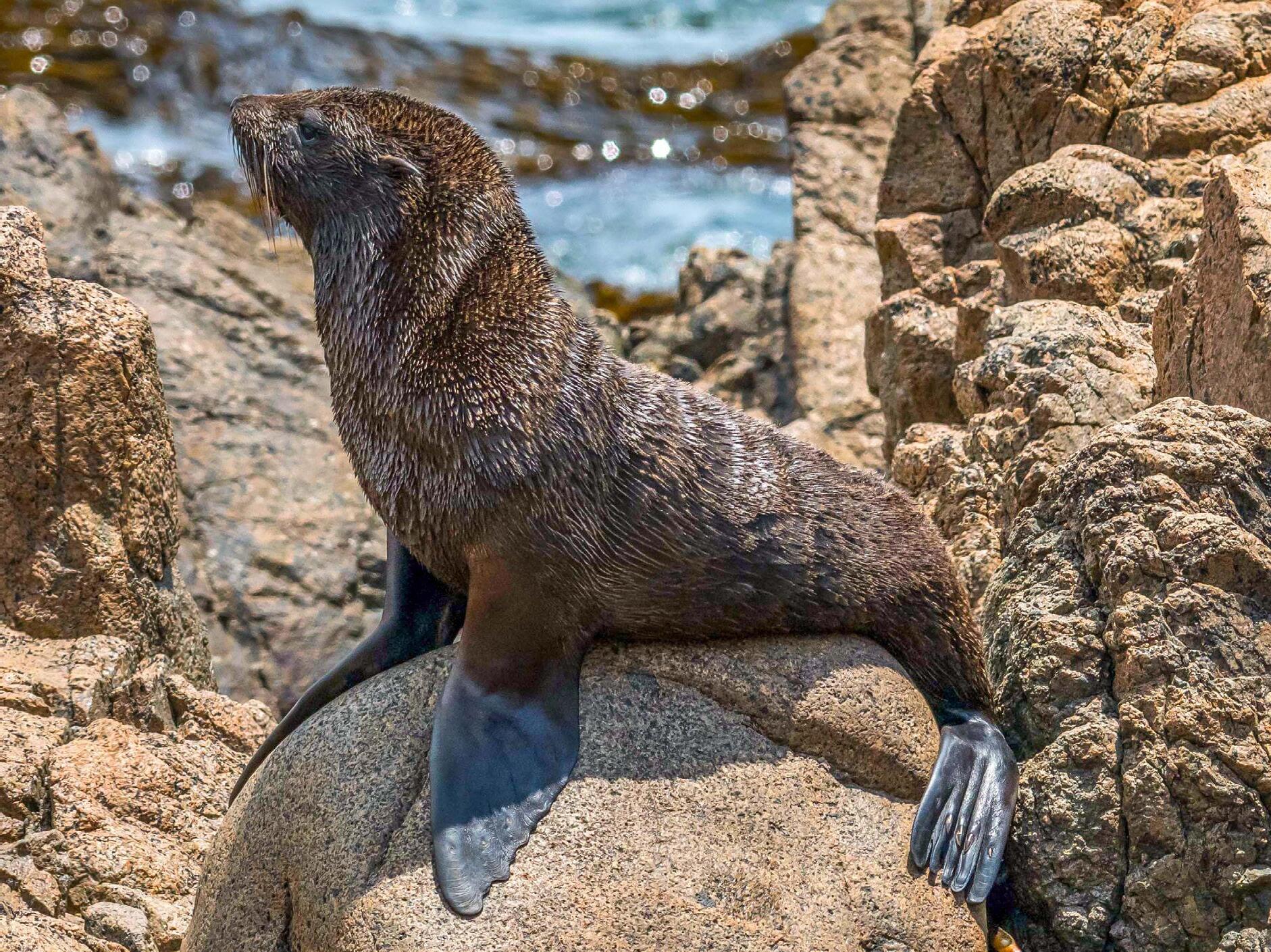
Weiss is a philanthropist with a business background in training and development. She worked for The American Funds, a member of The Capital Groups Companies. Weiss’s connection to Oceana began the day the BP Deepwater Horizon oil rig blew up and destroyed the marine life, fishing industries, and way of life in her hometown on the Louisiana Gulf Coast.
Antha Williams
Williams leads the Environment program at Bloomberg Philanthropies. Under Williams’ direction, Bloomberg Philanthropies supports environmental initiatives to improve the sustainability of cities around the world, accelerate the transition to clean energy, and combat overfishing and protect coral reefs.
James F. Simon
Chief Executive Officer
Kathryn Matthews, Ph.D.
Chief Scientist and Senior Vice President
Liesbeth van der Meer, DVM Senior Vice President
Daniel Olivares Senior Vice President
Joshua Laughren Senior Vice President
Matthew Littlejohn Senior Vice President, Strategic Initiatives
Christopher Sharkey Chief Financial Officer
Janelle Chanona Vice President, Belize
Dustin Cranor Vice President, Global Marketing and Communications
Nancy Golden Vice President, Global Development
Beth Lowell Vice President, United States
Pascale Moehrle
Executive Director and Vice President, Europe
Gloria Estenzo Ramos, J.D. Vice President, Philippines
Hugo Tagholm
Executive Director and Vice President, United Kingdom
Renata Terrazas Vice President, Mexico
Ademilson Zamboni, Ph.D. Vice President, Brazil
Susan Murray Deputy Vice President, U.S. Pacific
Vera Coelho Deputy Vice President, Europe
Kathy A. Whelpley Chief of Staff
Michael Hirshfield, Ph.D. Senior Advisor
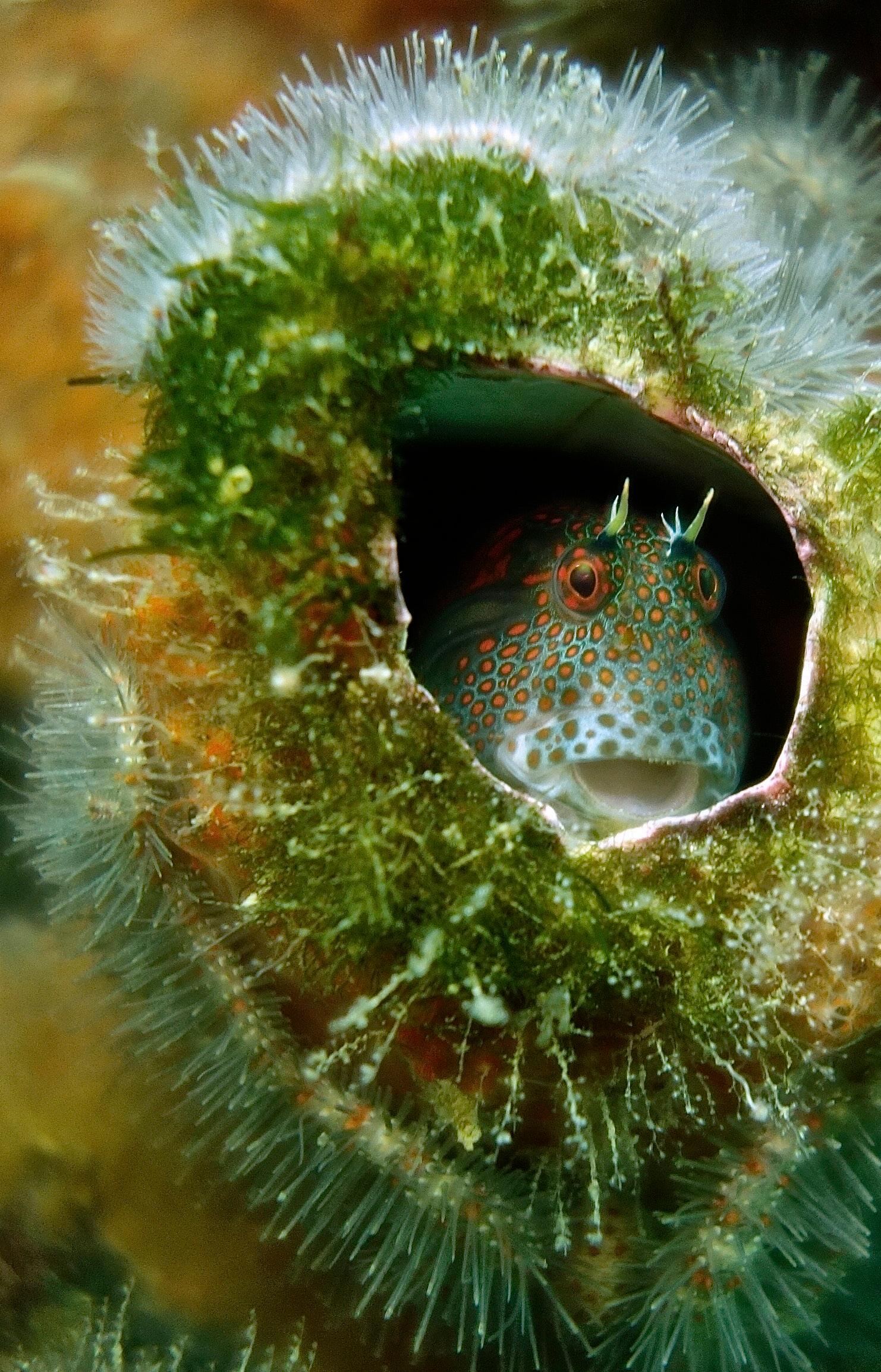
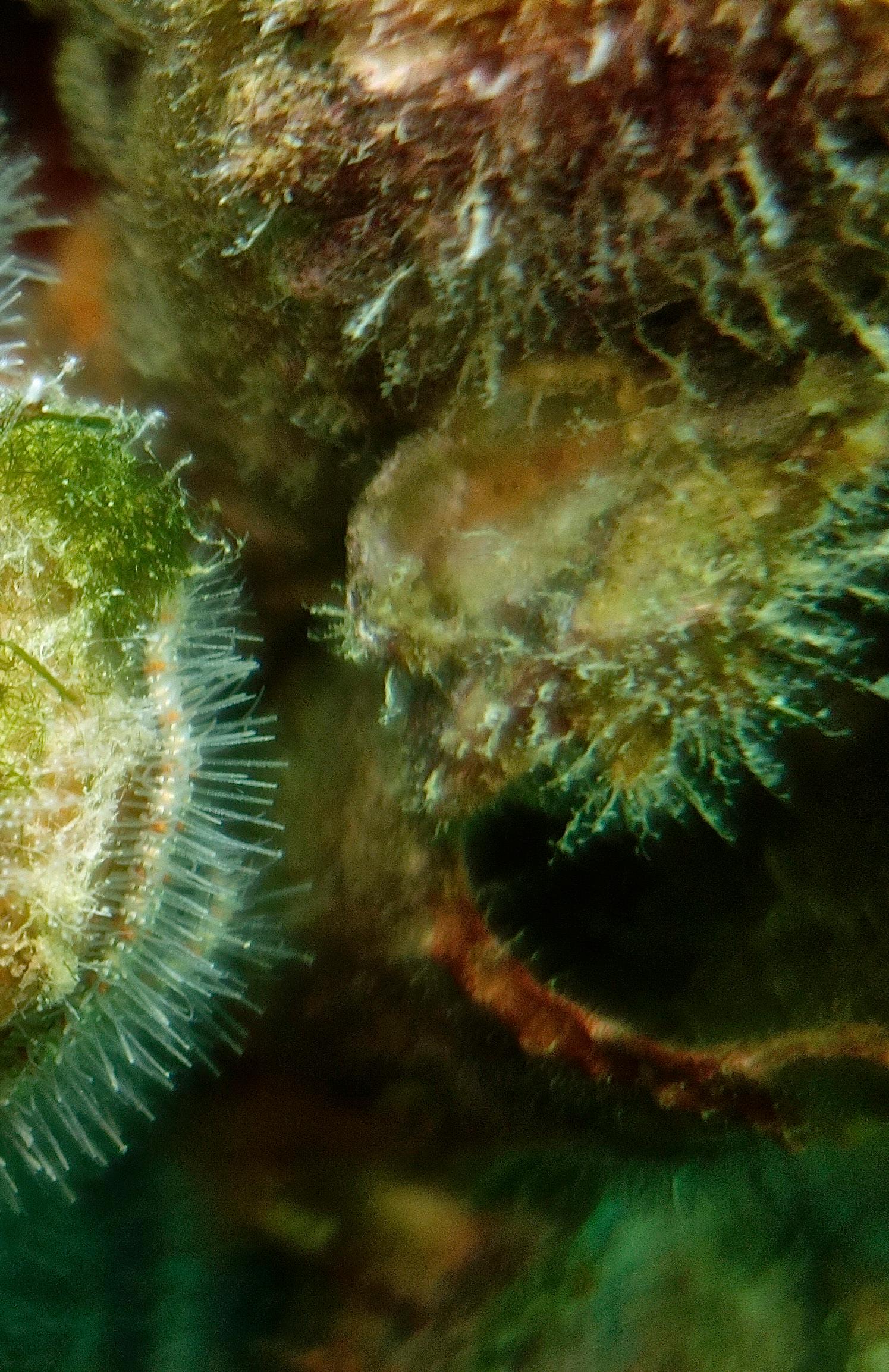
Susan Rockefeller Founder
Kelly T. Hallman Vice Chair
Dede McMahon Vice Chair
Anonymous
Samantha Bass
Violaine and John Bernbach
Rick Burnes
Vin Cipolla
Barbara Cohn
Ann Colley
Edward Dolman
Kay and Frank Fernandez
Carolyn and Chris Groobey
J. Stephen and Angela Kilcullen
Ann Luskey
Peter Neumeier
Carl and Janet Nolet
Ellie Phipps Price
David Rockefeller, Jr.
Andrew Sabin
Elias Sacal
Regina K. and John Scully
Maria Jose Peréz Simón
Sutton Stracke
Mia M. Thompson
David Treadway, Ph.D.
Edgar and Sue Wachenheim III
Valaree Wahler
David Max Williamson
Raoul Witteveen
Leslie Zemeckis
Global Headquarters
Washington, DC, USA
1025 Connecticut Ave., NW Suite 200
Washington, DC 20036 USA
Phone: +1 (202) 833-3900
Fax: +1 (202) 833-2070
Email: info@oceana.org
North America
Juneau, AK, USA
175 South Franklin Street, Suite 418
Juneau, Alaska 99801 USA
Phone: +1 (907) 586-4050
Email: pacific@oceana.org
Monterey, CA, USA
99 Pacific Street, Suite 155C
Monterey, CA 93940 USA
Phone: +1 (907) 586-4050
Email: pacific@oceana.org
Fort Lauderdale, FL, USA
P.O. Box 24361
Fort Lauderdale, FL 33307 USA
New York City, NY, USA
845 3rd Avenue, 6th Floor
New York, NY 10022 USA
Phone:+1 (202) 833-3900
Fax: +1 (212) 371-9388
Email: info@oceana.org
Portland, OR, USA
205 SE Spokane Street, Suite 304B
Portland, OR 97202 USA
Phone: +1 (907) 586-4050
Email: pacific@oceana.org
Toronto, Canada
18 King Street East, Suite 505
Toronto, Ontario, Canada M5C 1C4
Phone: +1 (416) 583-2350
Email: info@oceana.ca
Ottawa, Canada
176 Gloucester Street, Suite 310
Ottawa, Ontario, Canada K2P 0A6
Halifax, Canada
1701 Hollis Street, Suite 800
Halifax, Nova Scotia, Canada B3J 3M8
Mexico City, Mexico
Poseidon 39
Col. Credito Constructor
Ciudad de México
México CP 03940
Phone: +52 (55) 4435 9792
Email: mexico@oceana.org
Belmopan, Belize
2358 Hibiscus Street
P.O. Box 731
City of Belmopan, Belize
Phone: +501-822-2792
Fax: +501-822-2797
Email: info@oceana.org
Madrid, Spain
Fundación Oceana
Gran Via, 62, 7 Izda.
28013 Madrid, Spain
Phone: + 34 911 440 880
Email: europe@oceana.org
Brussels, Belgium
Rue Montoyer 39
1000 Brussels, Belgium
Phone: +32 (0)2 513 22 42
Fax: +32 (0)2 513 22 46
Copenhagen, Denmark
C/O Beiherholm
Knud Højgaards Vej 9
2860 Søborg, Denmark
Email: copenhagen@oceana.org
Geneva, Switzerland
Friends of Oceana
Walder Wyss AG – Rue d’Italie 10 1211 Geneva 3, Switzerland
Email: oceana-geneva@oceana.org
London, United Kingdom
c/o Bates Wells & Braithwaite
10 Queen Street Place
London EC4R 1BE, United Kingdom
Email: oceanauk@oceana.org
Cornwall, United Kingdom
House 5, Pentire
9 Beach Rd, Newquay
Cornwall, TR7 1ES, United Kingdom
Email: oceanauk@oceana.org
Manila, Philippines
P.O. Box 255, UP Post Office, University of the Philippines Campus
Diliman, Quezon City 1101
South America
Brasília, Brazil
SIG Quadra 1, lote 985, sala 251
Centro Empresarial Parque Brasilia
CEP 70610-410
Brasilia – DF, Brasil/Brazil
Phone: +55 61 3247-1800
Email: brazil@oceana.org
Santiago, Chile
Av Suecia 0155, Off. 1001
Providencia, Santiago, Chile
Postal code: 7510114
Phone: +56 2-27128696
Email: oceanachile@oceana.org
Lima, Peru
Av. del Ejército 250 Oficina 302 Lima 15074, Peru
Phone: +51 (1) 500-8190
Email: peru@oceana.org
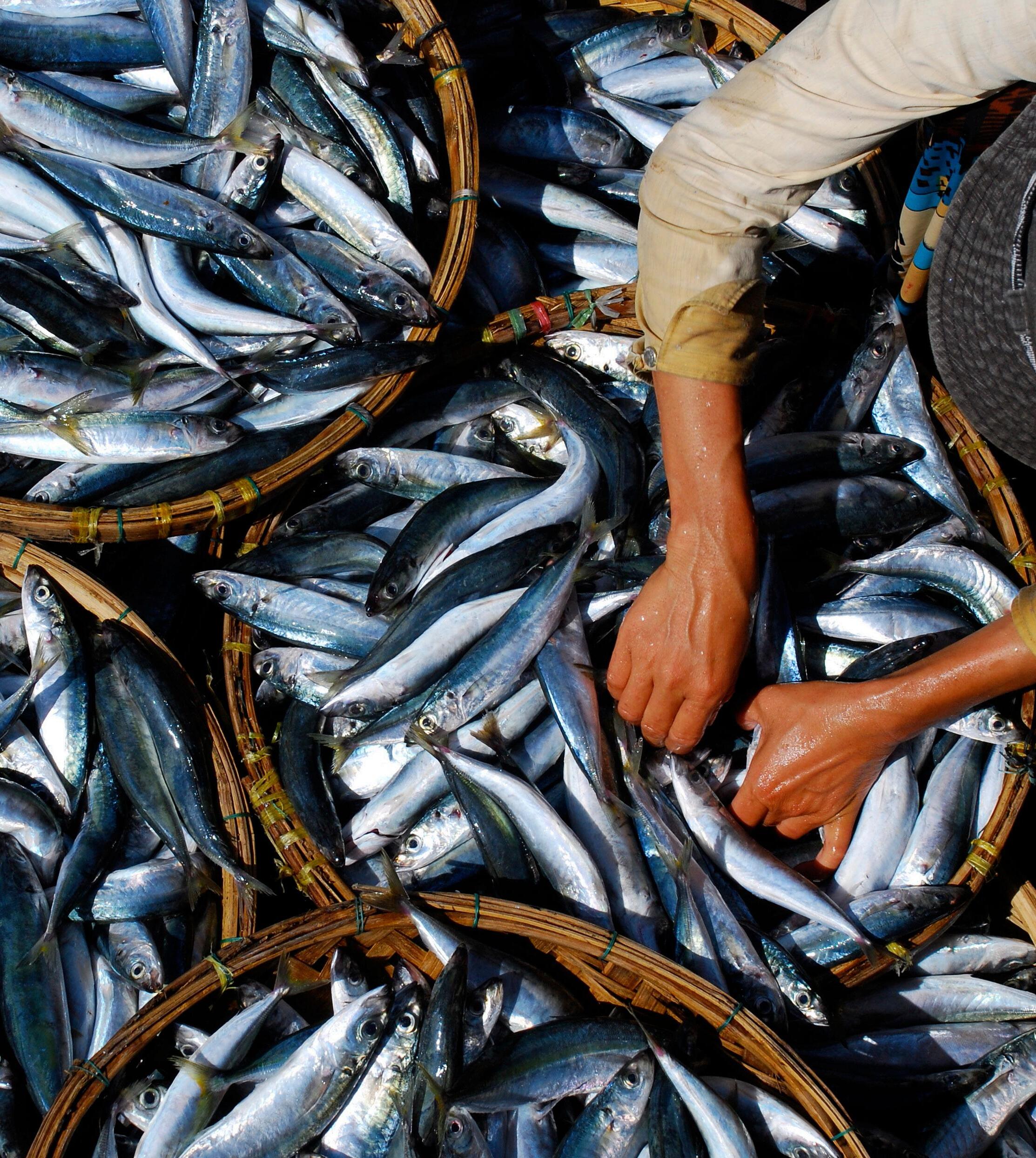

Oceana is the largest international advocacy organization dedicated solely to ocean conservation. Oceana is rebuilding abundant and biodiverse oceans by winning science-based policies in countries that control one-quarter of the world’s wild fish catch. With more than 300 victories that stop overfishing, habitat destruction, oil and plastic pollution, and the killing of threatened species like turtles, whales, and sharks, Oceana’s campaigns are delivering results. A restored ocean means that 1 billion people can enjoy a healthy seafood meal every day, forever. Together, we can save the oceans and help feed the world. Visit Oceana.org to learn more.
Editor